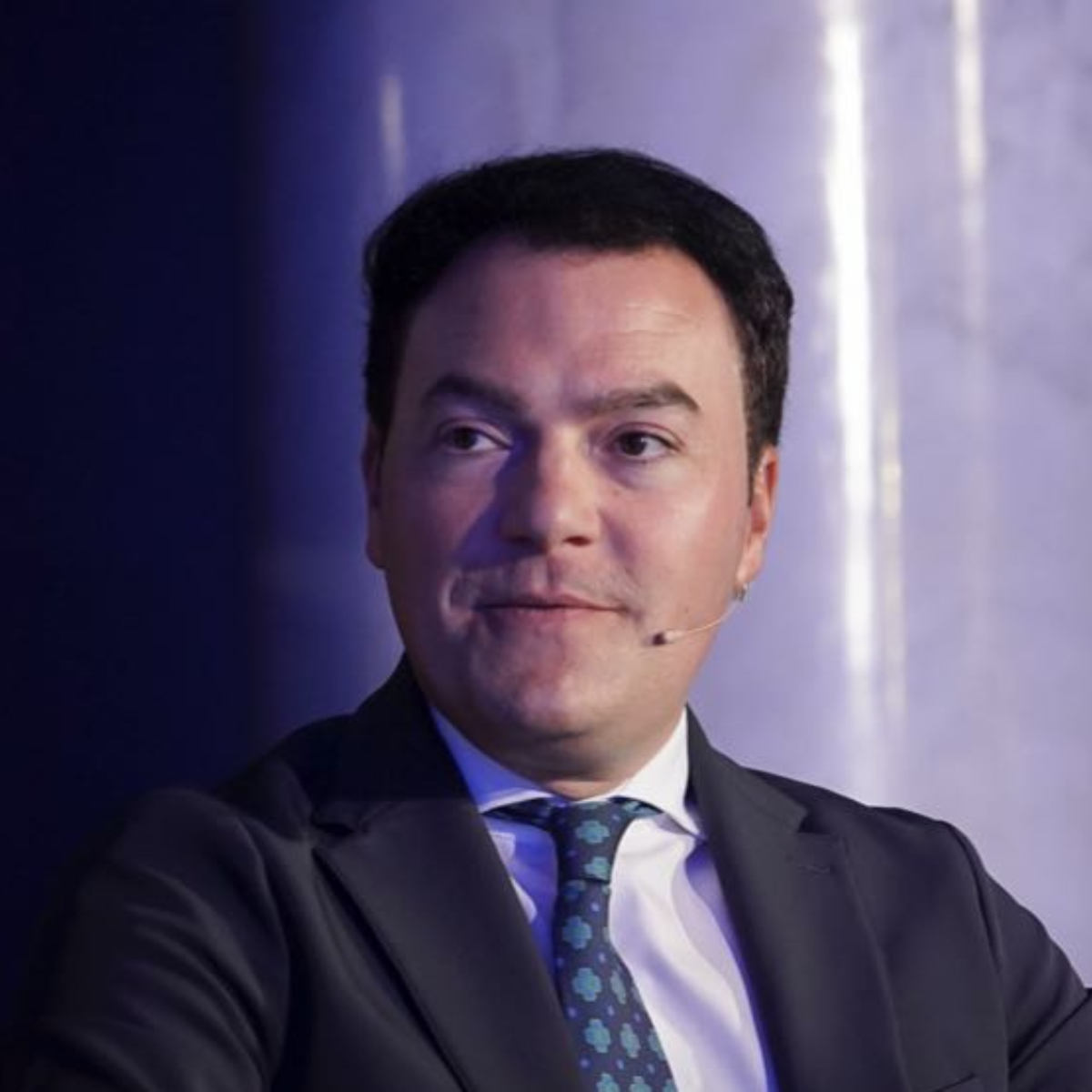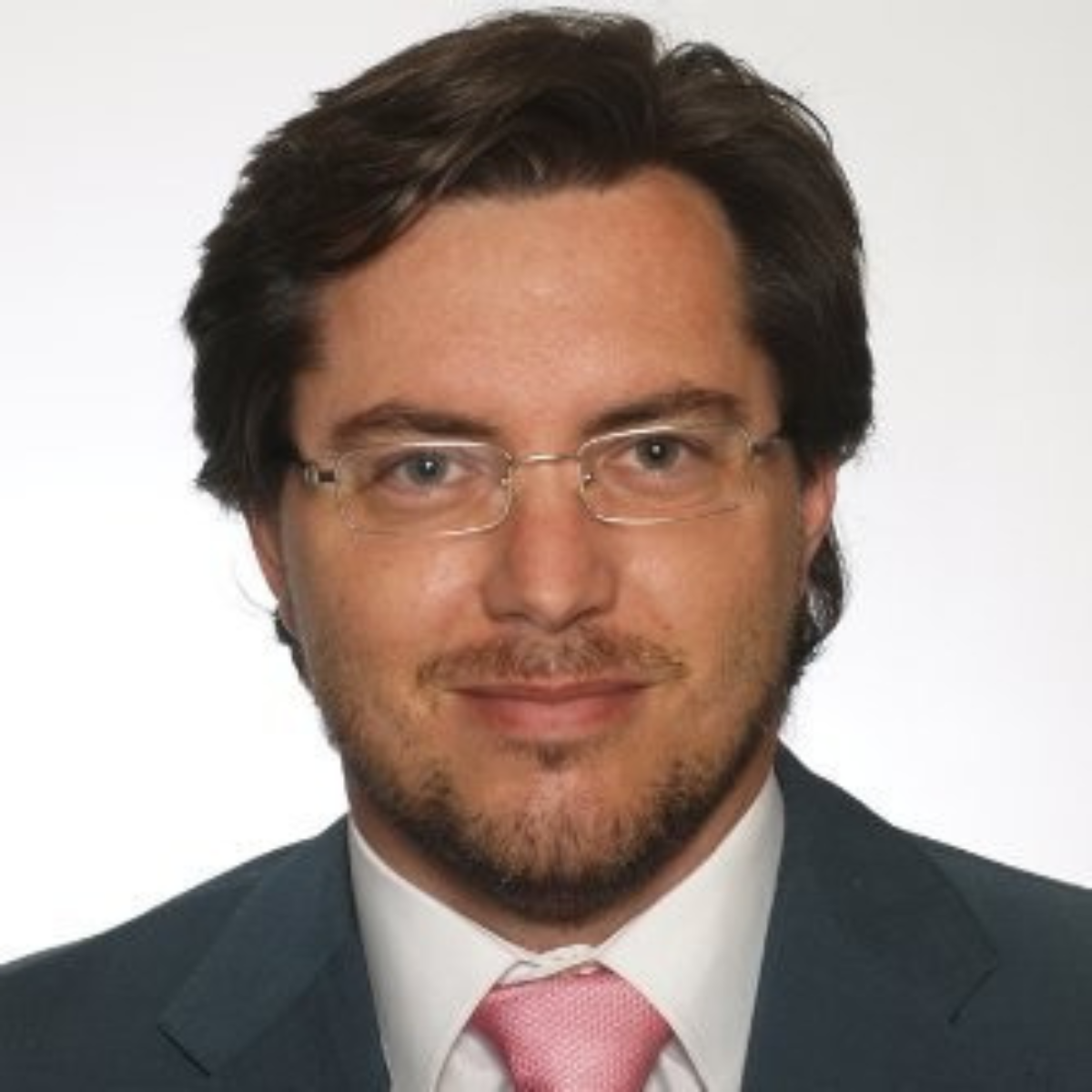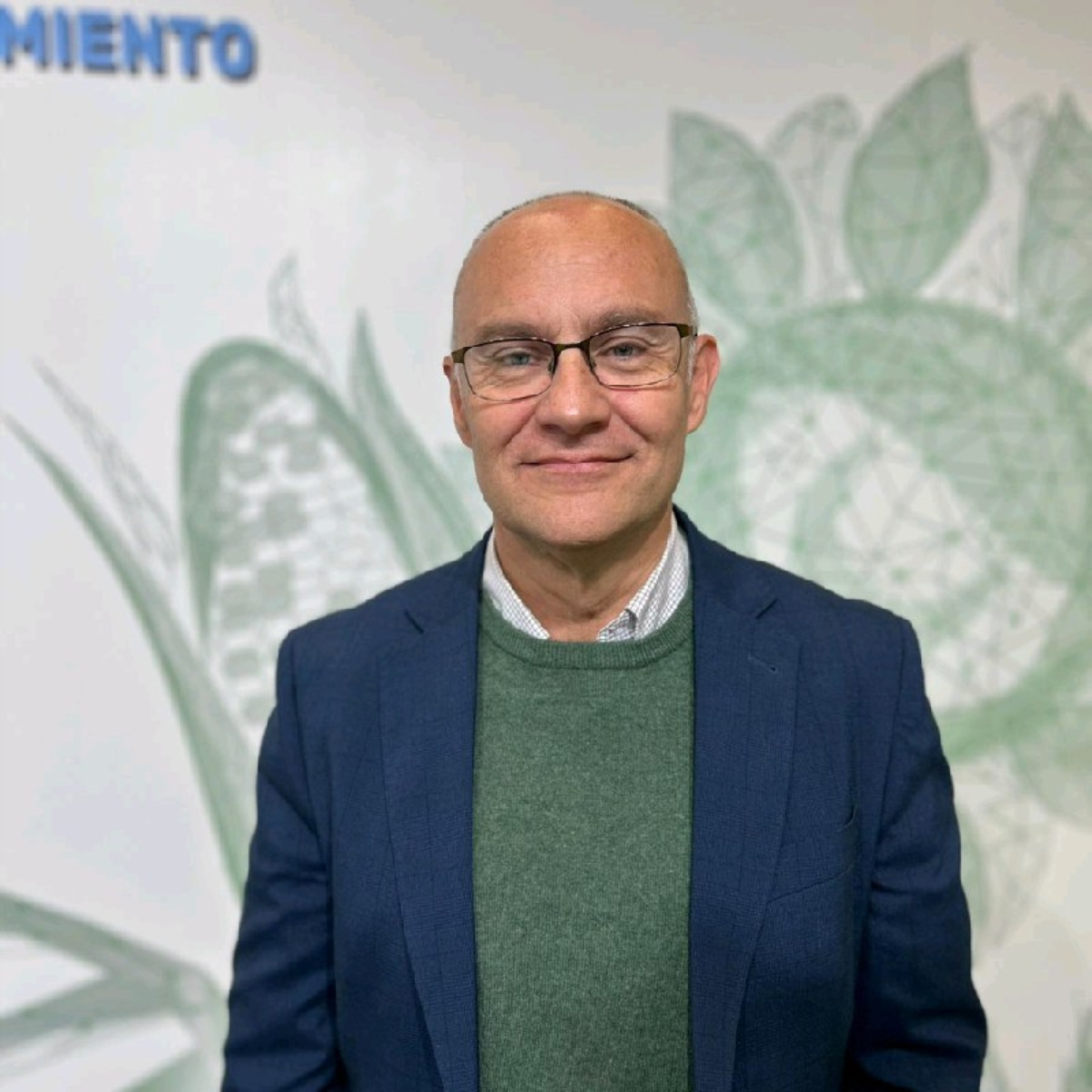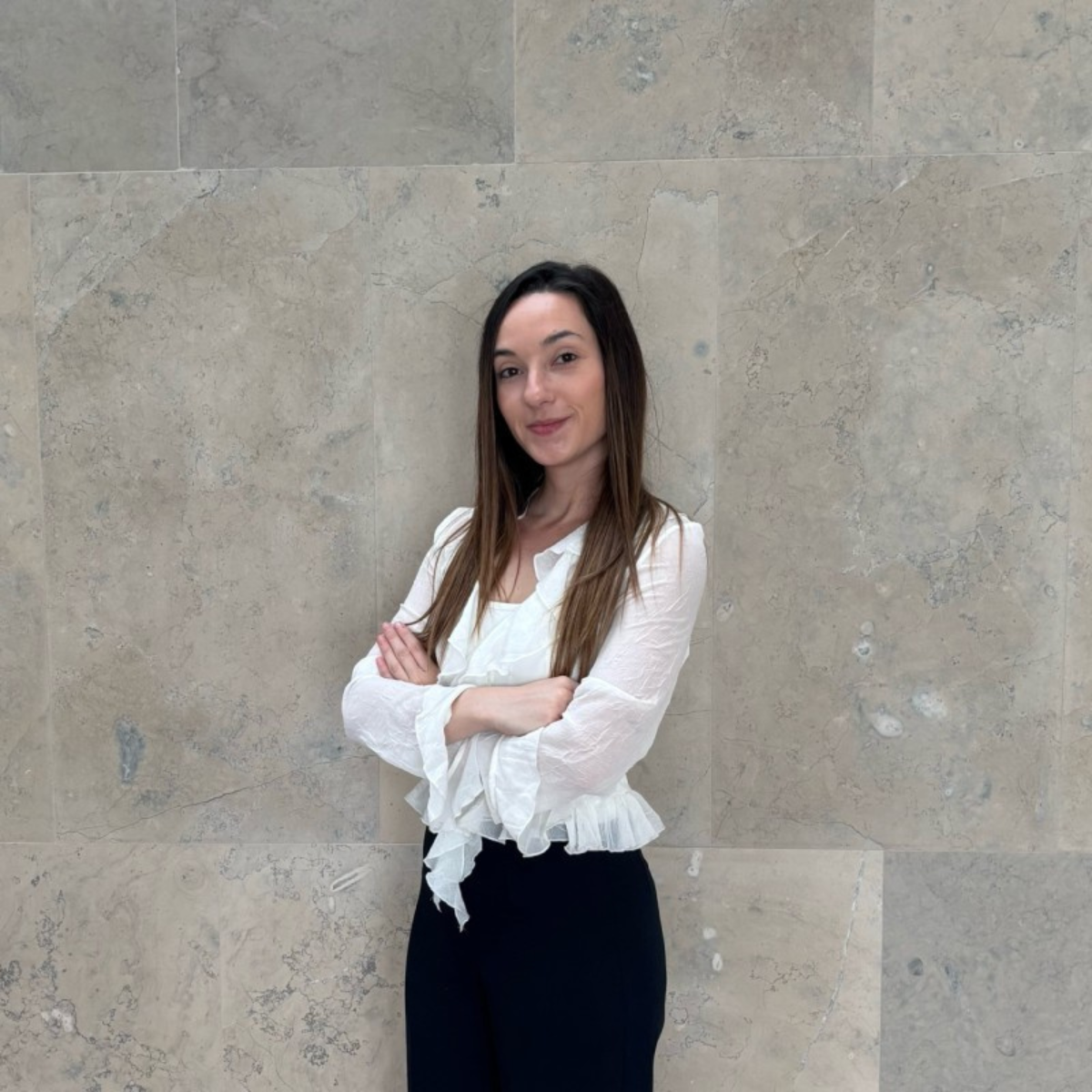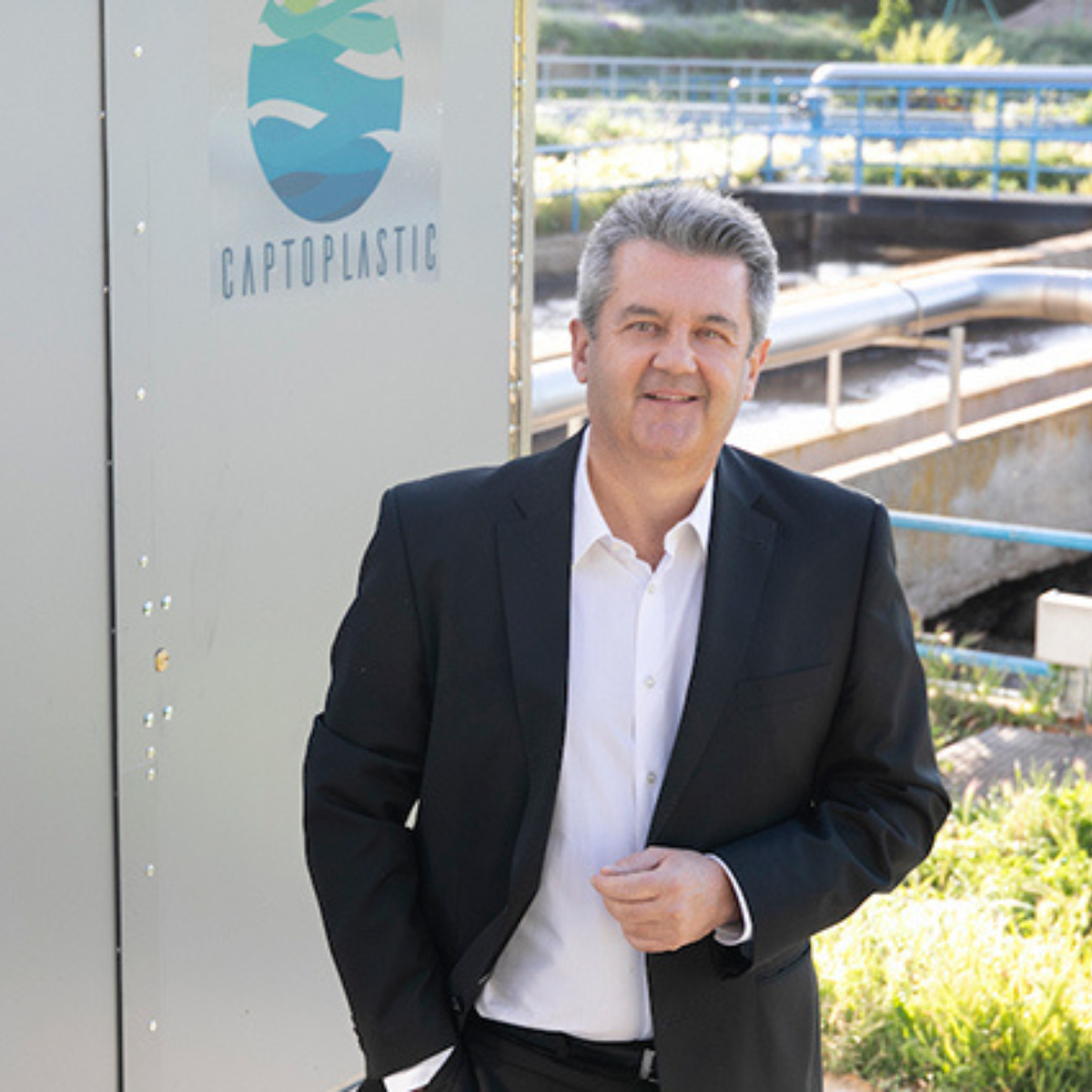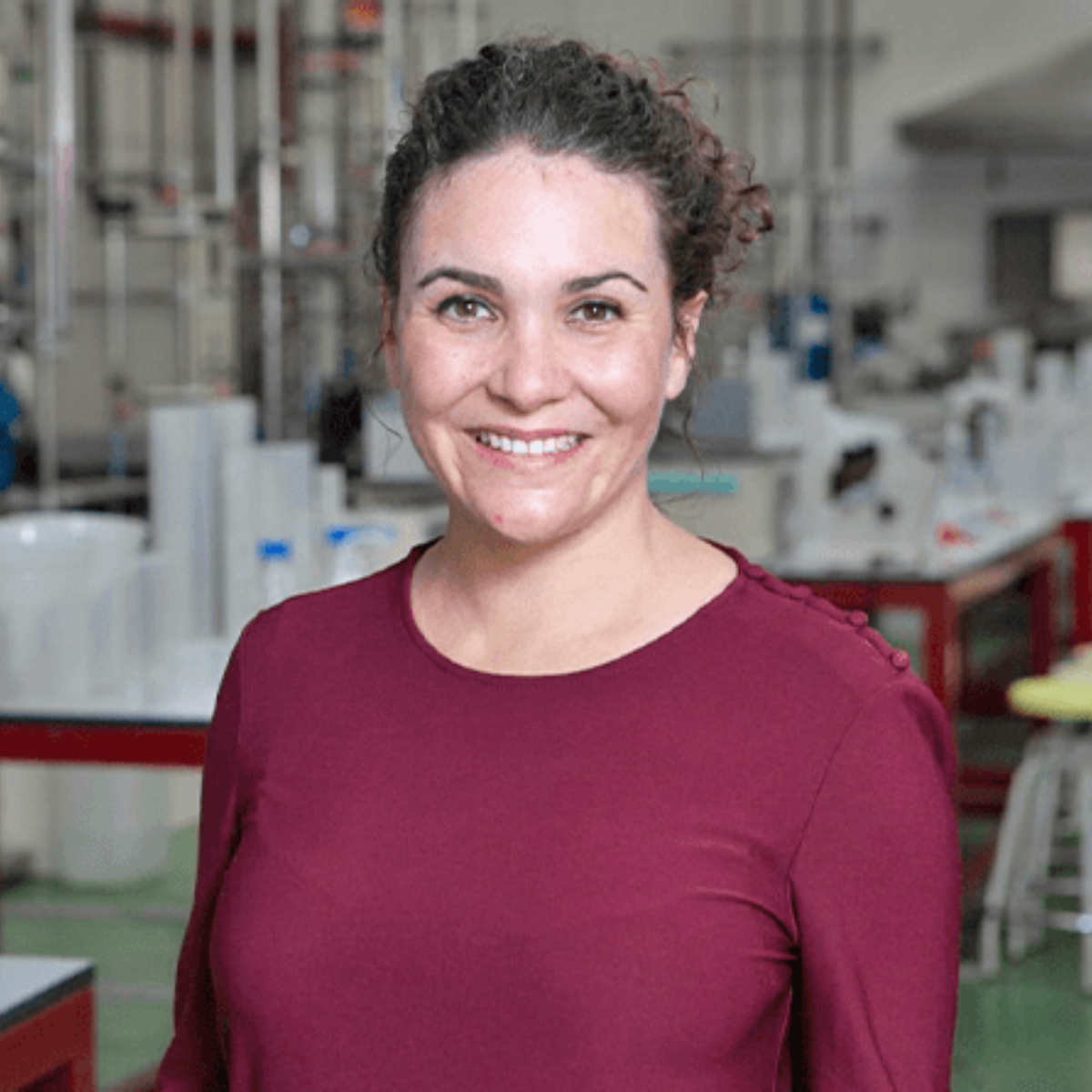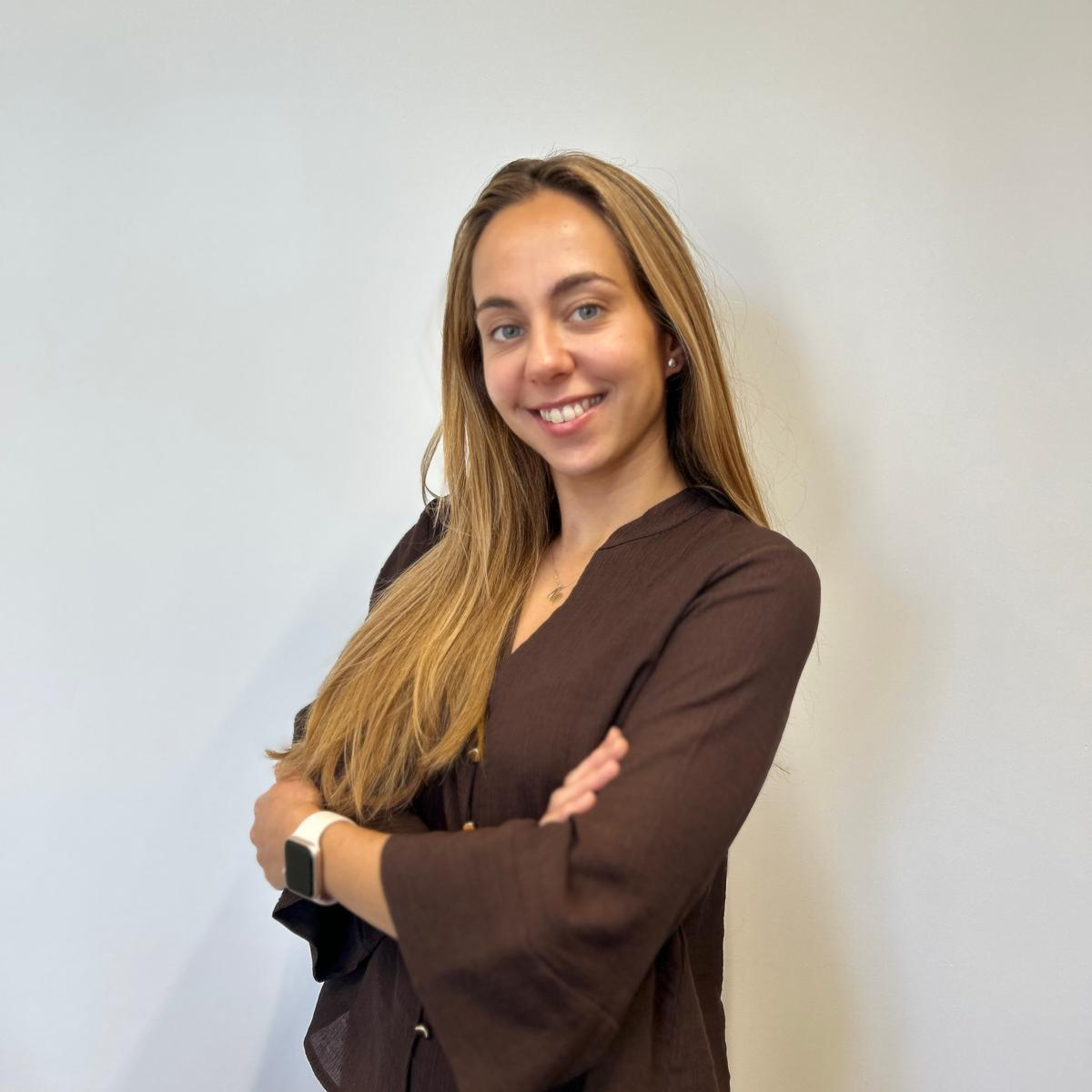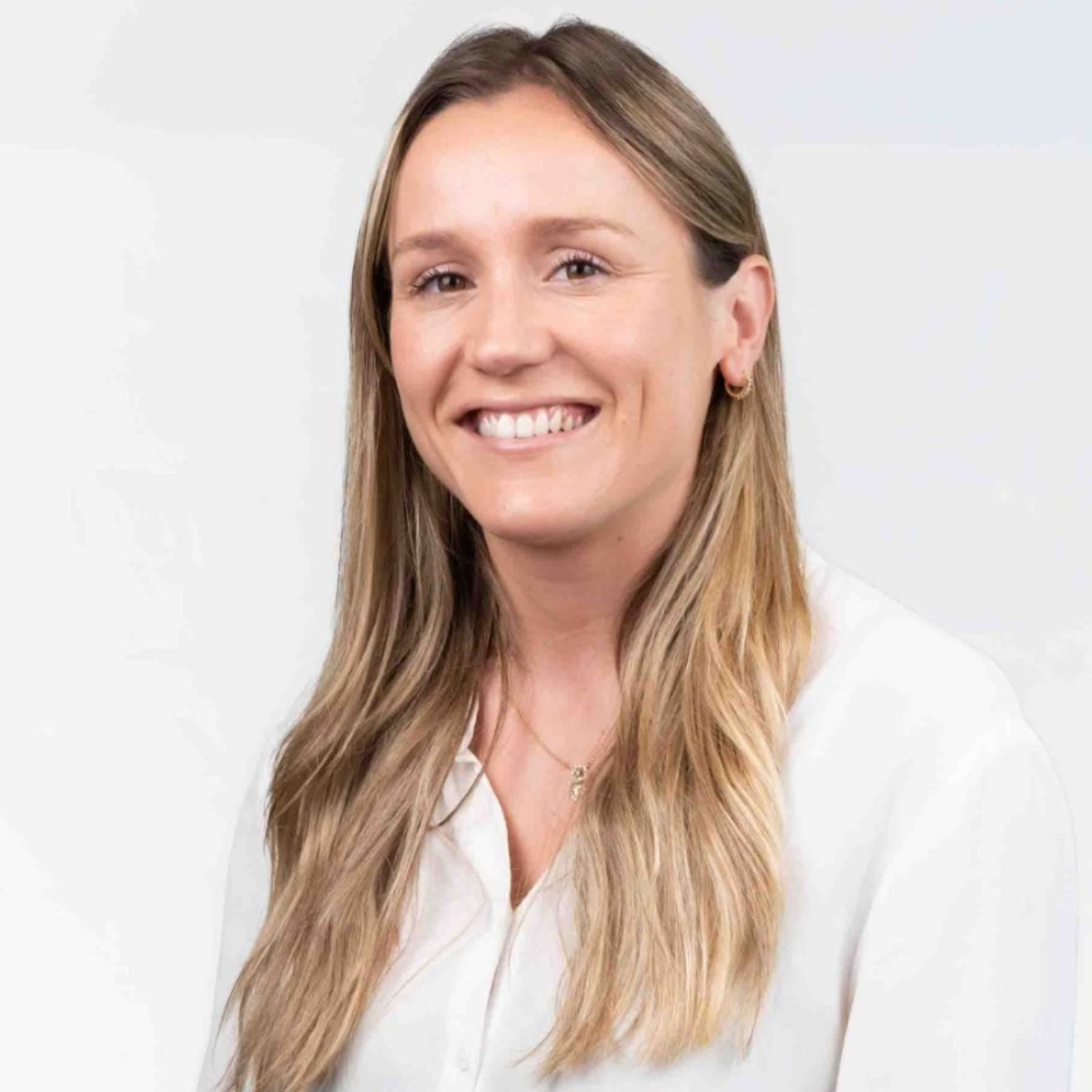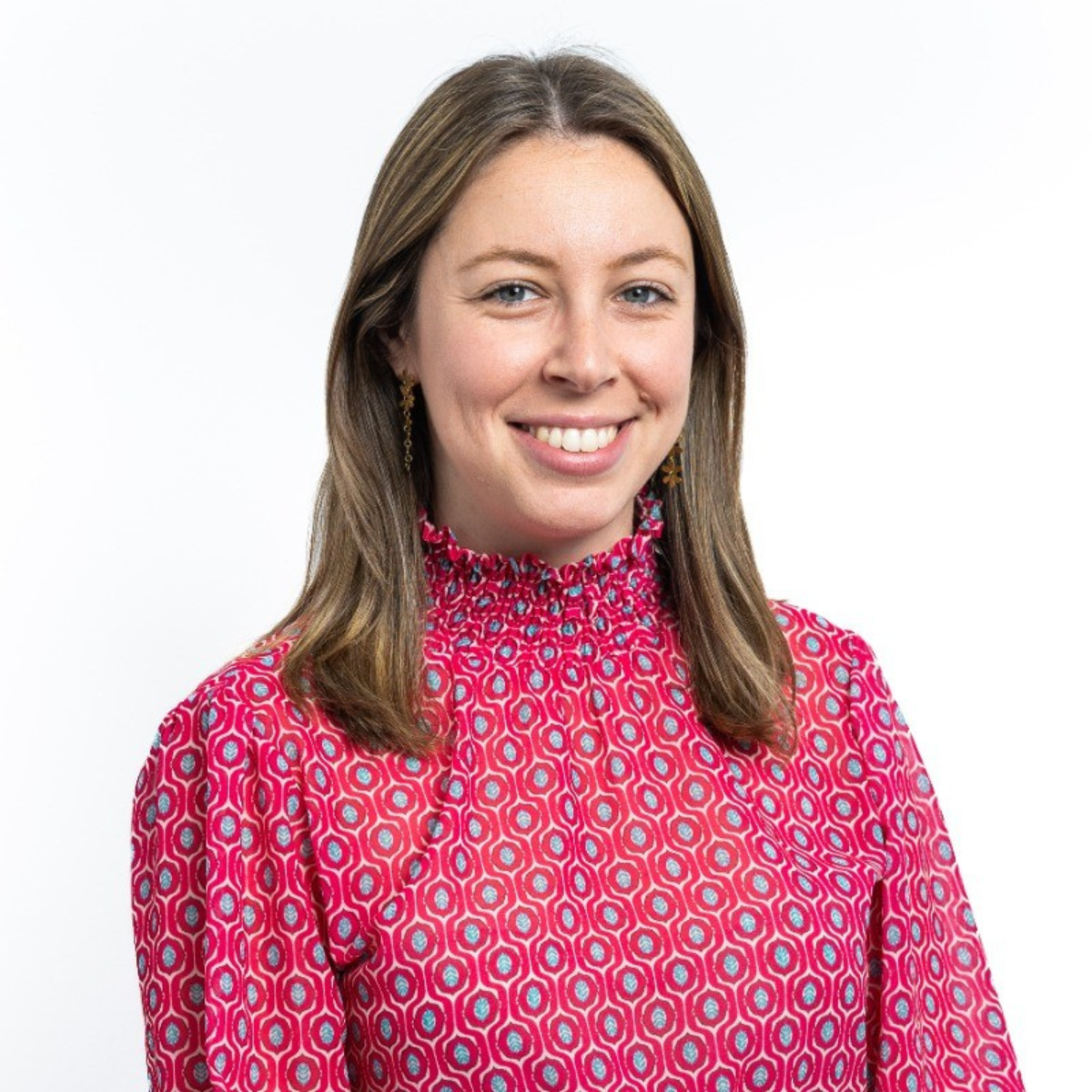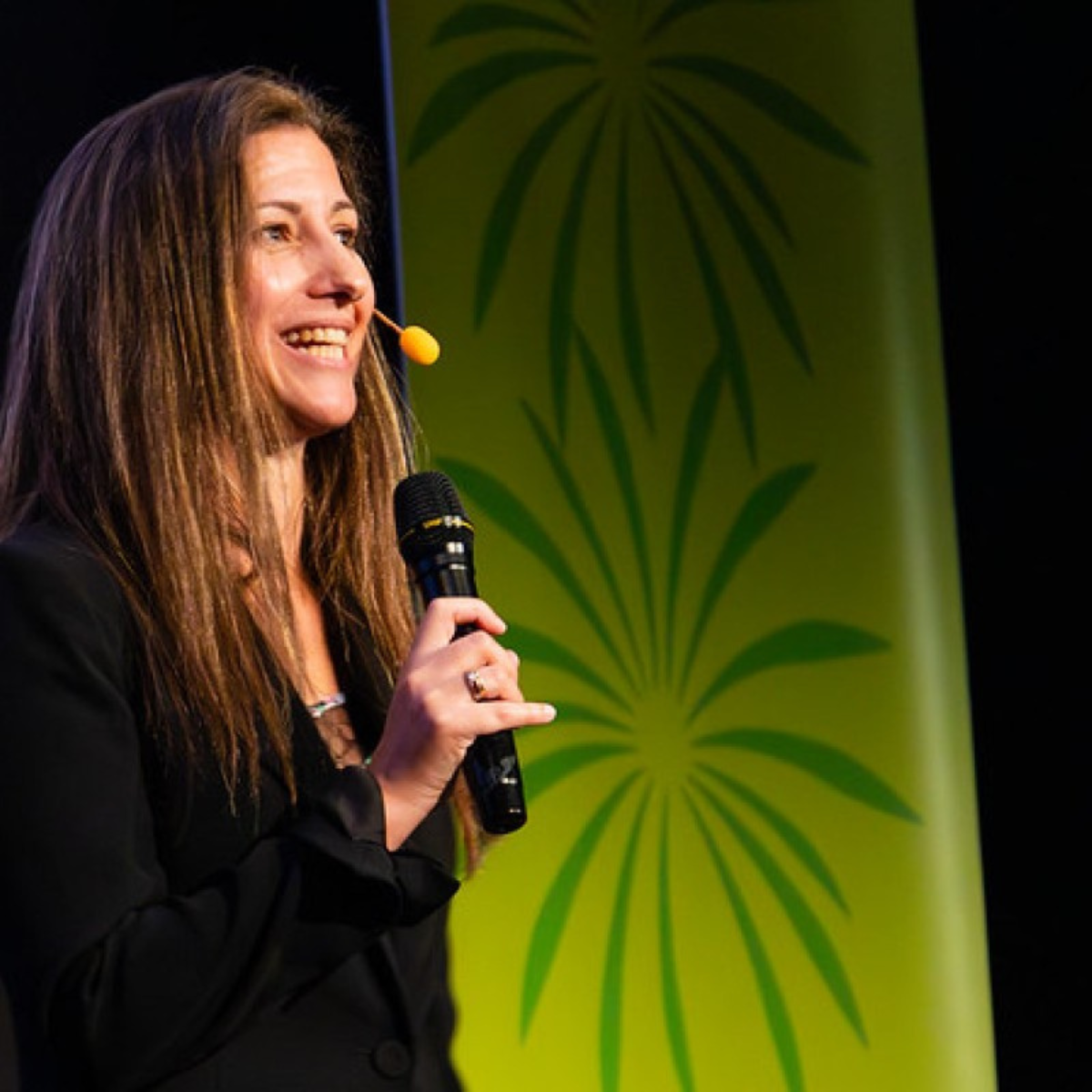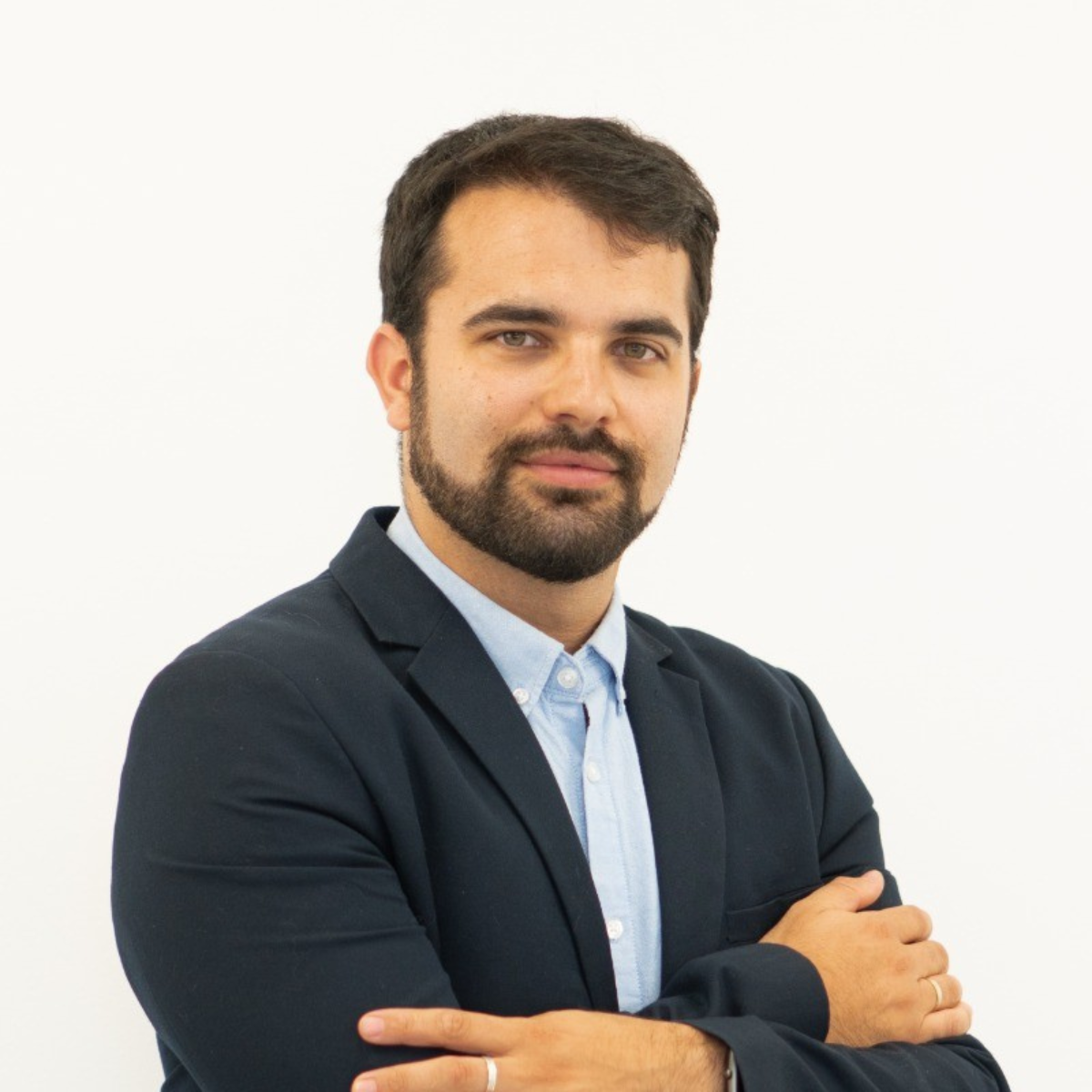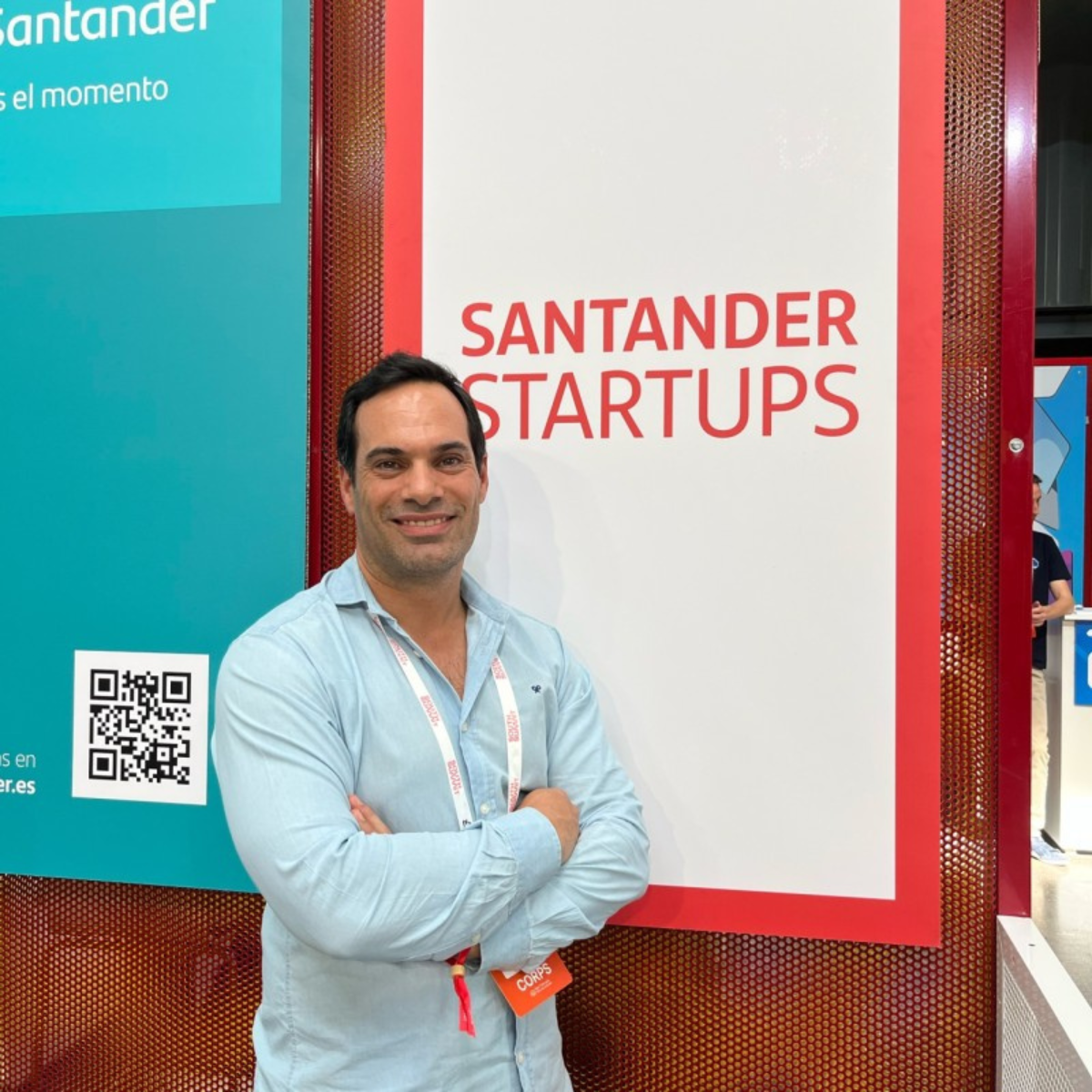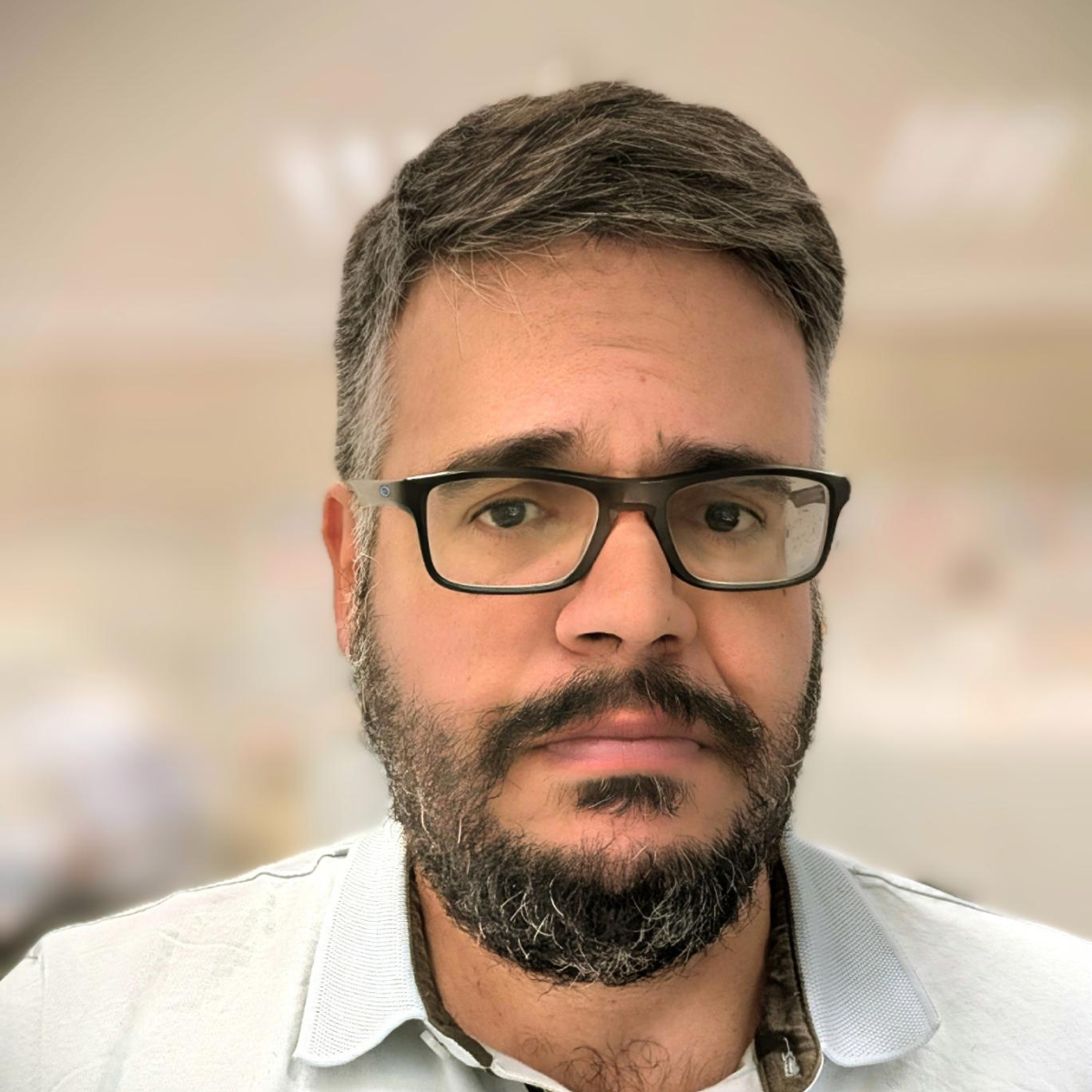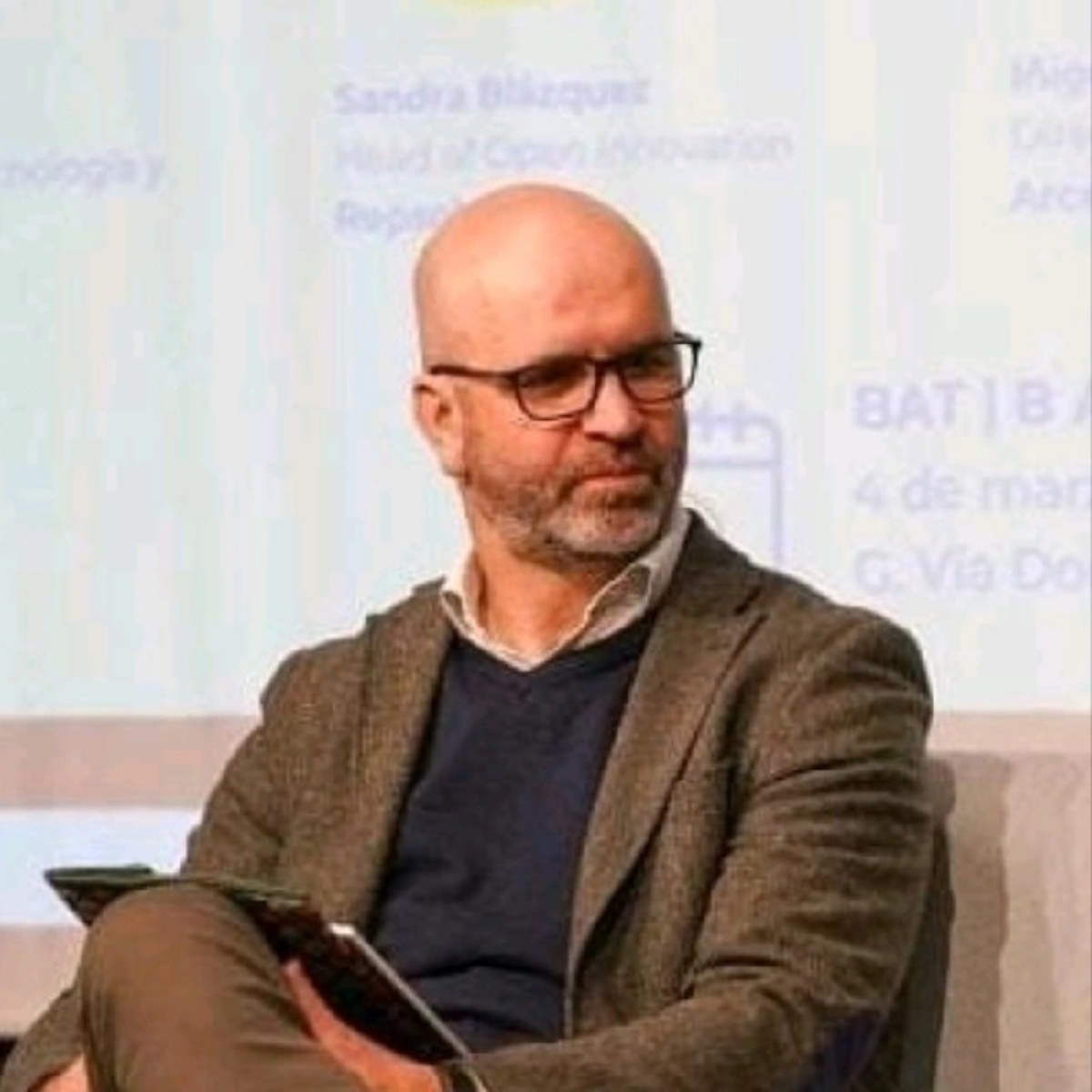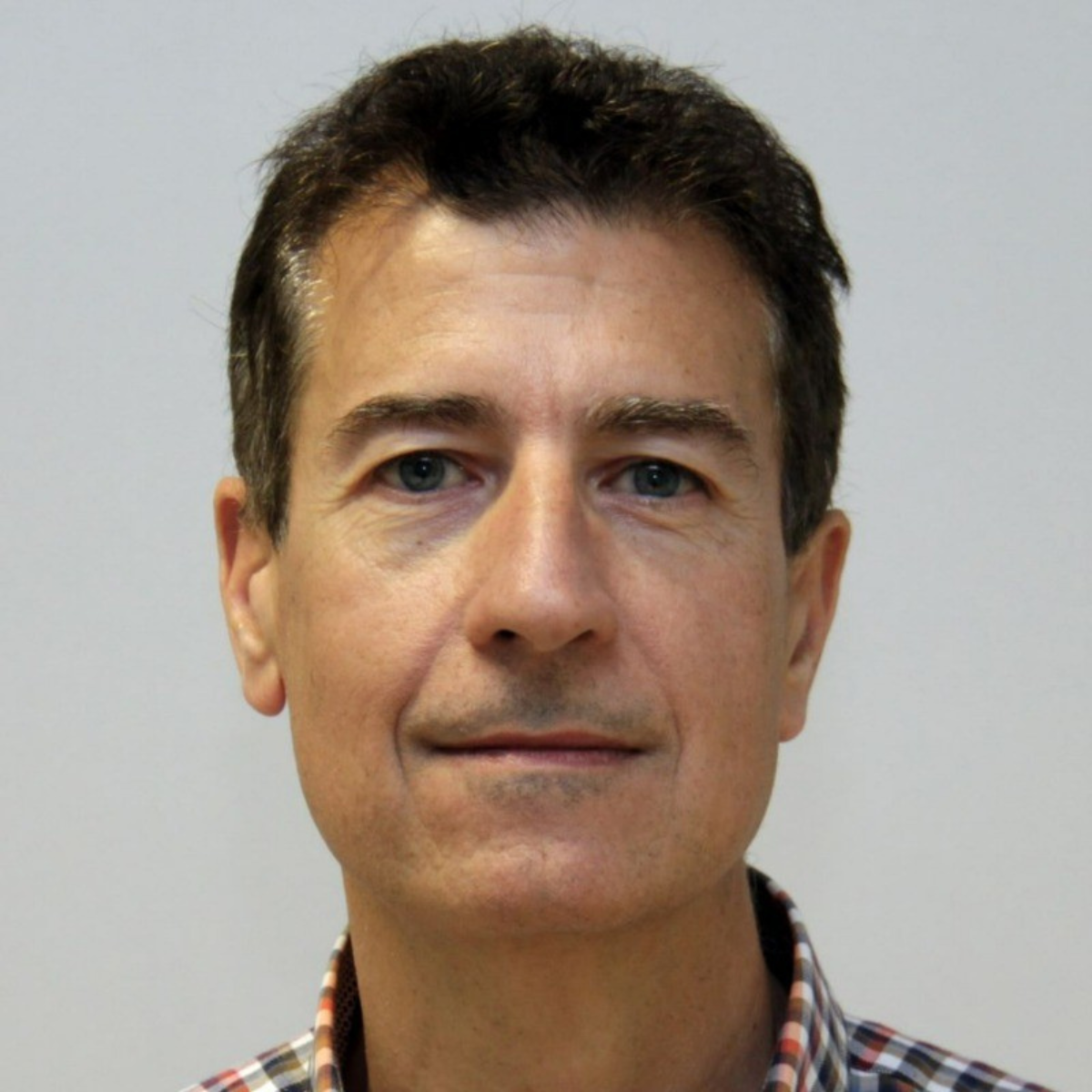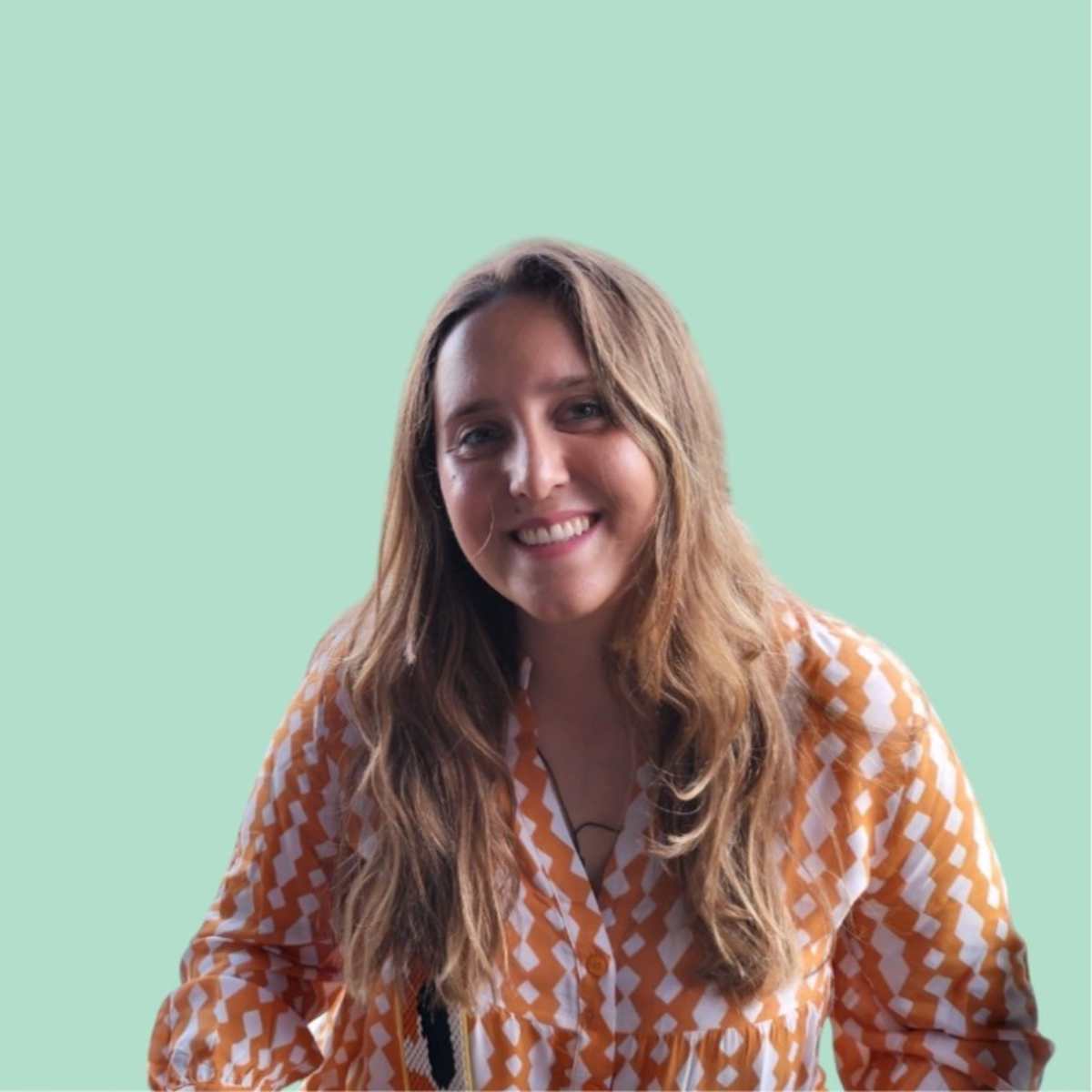Meet the S4i '26 Speakers
The speakers are the heart of our event. Discover the great professionals of the Deep Science ecosystem from around the world who will attend Science for Industry. Browse their profiles below for more information
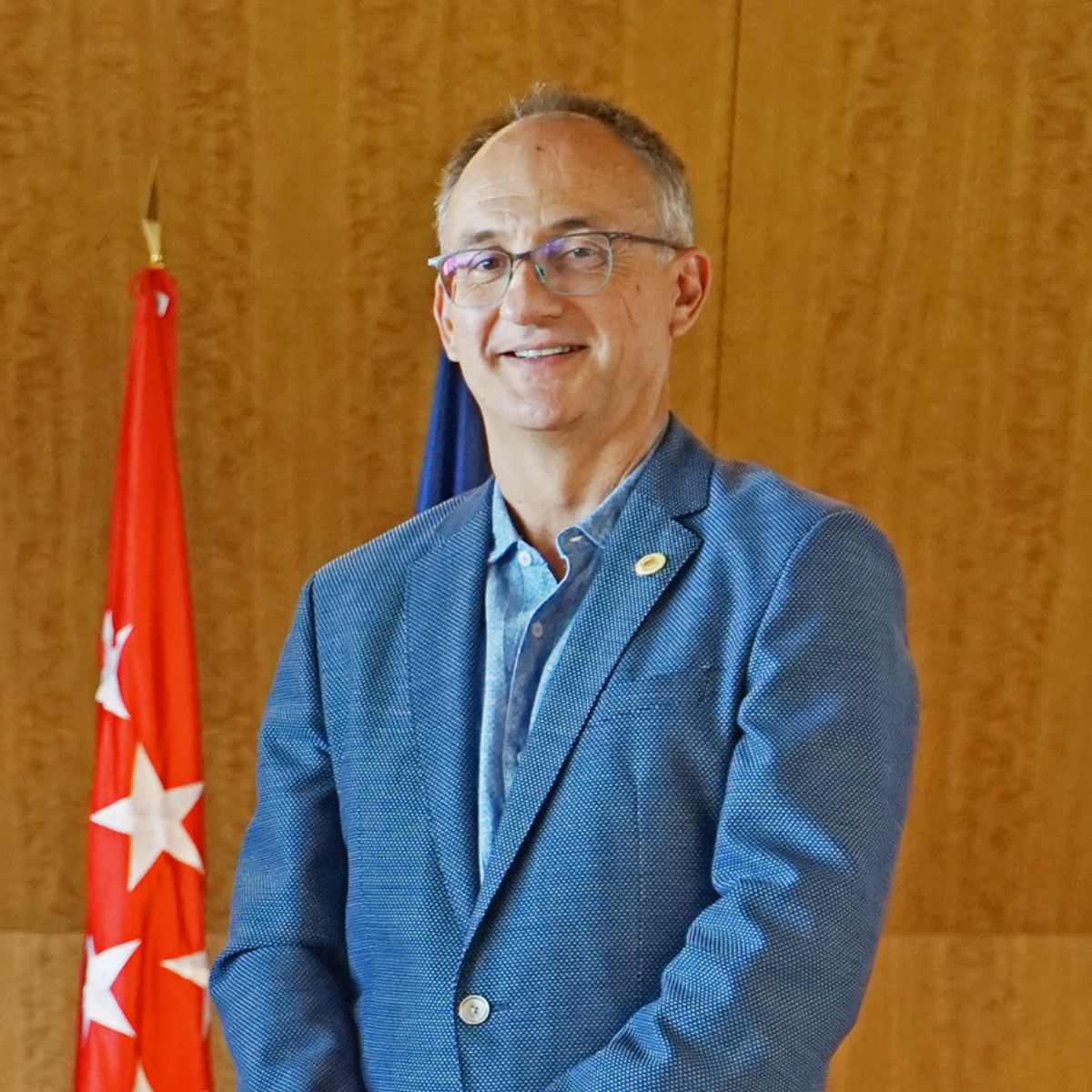

For as long as he can remember, there has been in him a constant restlessness for discovery, a driving force that has led him towards the world of science. In 1990, he obtained his degree in Chemical Sciences at the Autonomous University of Madrid. After obtaining a 3rd cycle scholarship from the UAM and later an assistant position, he immersed himself in the realization of his doctoral thesis and in his first experiences in teaching. Research during his doctoral thesis, focusing on anti-tumour compounds, connected him with the pharmaceutical industry, awakening a growing interest in knowledge transfer. In 1994, he completed his PhD at UAM and received a Human Capital and Mobility grant from the European Union for postdoctoral studies at the University of Dortmund (Germany). Subsequently, he undertook another research stay at the University of Virginia (USA). Upon rejoining the Department of Inorganic Chemistry at the UAM as a Doctoral Assistant, he began to play roles in both teaching and research. In 2002, he reached the position of Full Professor, and in 2020, he obtained the title of University Professor within the CAM Excellence program. Throughout his career, he has been a visiting researcher at the University of Newcastle (United Kingdom) and at the National University of Singapore since 2016. Currently, he is a member of the IMDEA Nanoscience Foundation, the Institute for Advanced Research in Chemical Sciences and the Institute Center for Condensed Matter Physics. His research has been developed at the intersection between Chemistry and Materials Science, specifically in the field of Nanoscience. His outstanding research work was recognized with the Research Excellence Award by the Royal Spanish Society of Chemistry in 2015. With more than 200 scientific articles published, he has consolidated part of his research through transfers, including patents and projects with companies. In addition, he has played a crucial role as partner and scientific advisor in UAM spin-off companies, such as Nanoinnova Technologies S.L., Porous Inks Technologies S.L. and Fourteen Energies S.L. Reflecting on his professional career, he highlights the privilege of being a university professor and underlines the importance of ties between student and teacher, collaboration in research, and the transfer of knowledge to society.

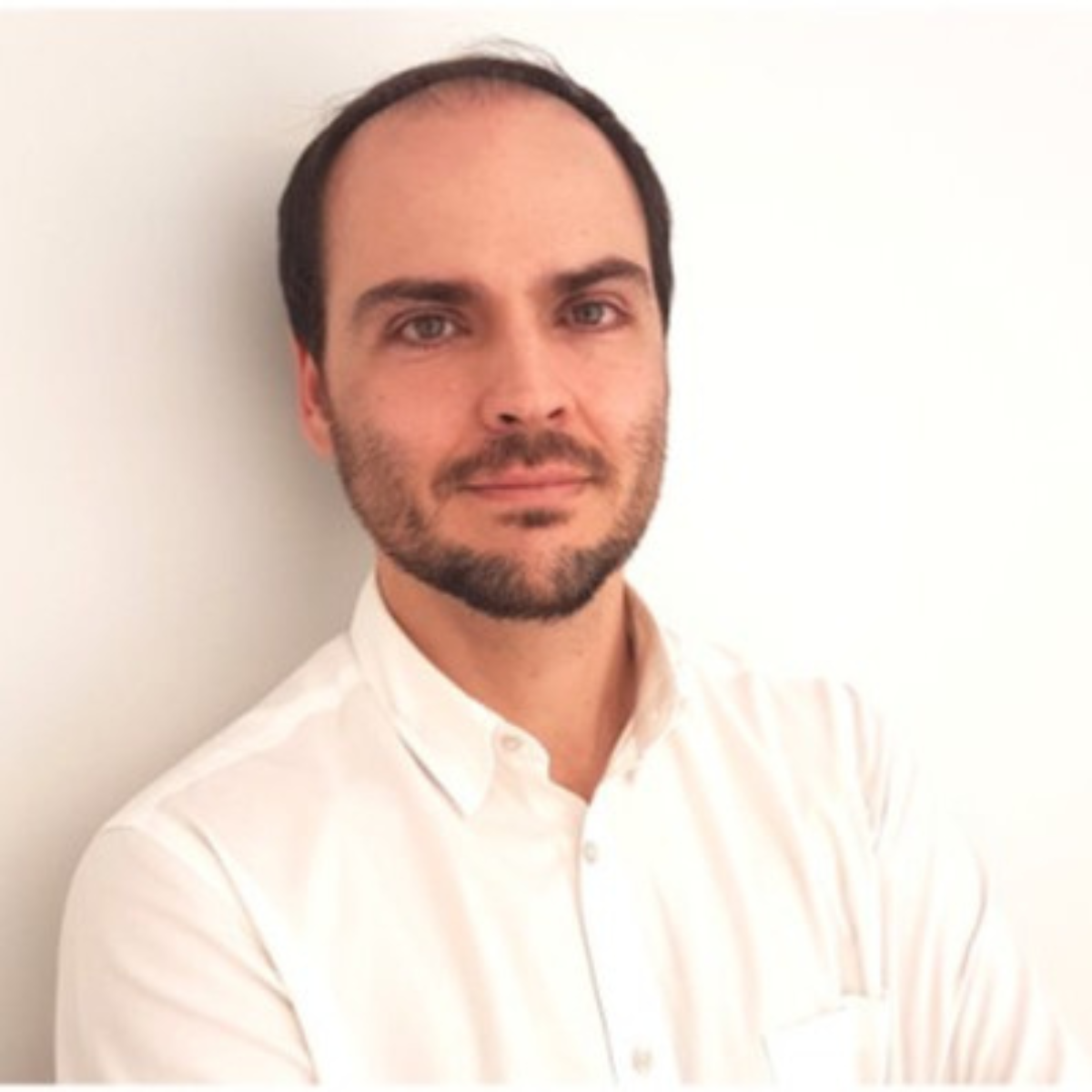

Alberto Díaz González (Bilbao, 1978), Partner of BeAble Capital and CEO and founder of Science 4 Industry. He initially developed his professional career as a M&A lawyer and later on in 2016, he founded BeAble Capital SGEIC, S.A., where he became an expert in Science Equity after the creation of two investment funds, BeAble Investment Fund, FCR, and BeAble Investment Science Equity, FCRE, from which he executed more than 35 investments in industrial technology start-ups from research centres in Spain, UK, Colombia, Argentina, Belgium and Switzerland. He is president of the board of directors of several technology companies within the fields of photonics, nanotechnology, advanced materials, 3D printing and microelectronics. He is also the author of the book Un camino para la industria tecnologia española (Ed. Pirámide).



Amaya Mendikoetxea Pelayo (Bilbao, 1962) is a Spanish philologist, professor and researcher, expert in English linguistics, Rector of the Universidad Autónoma de Madrid since 2021. Since 2019, she has been Professor of English Linguistics in the Department of English Philology, which she joined in 1991, when the degree in English Philology was being launched. She has also taught at the University of Deusto (1989-1991) and at the University of Leeds (UK) (1987-1989). She holds a PhD in Linguistics from the University of York (UK, 1992), where she also did an MA in Theoretical Linguistics, and a BA in English Philology from the University of Deusto (1986). She researches language as a biological property of human beings, focusing on its architecture (syntax) and its acquisition. She is particularly interested in the comparison between languages, as concrete manifestations of this property, in terms of what this comparison reveals about the properties of language as a cognitive system. He is a member of the consolidated research group GRATECOM (Theoretical and Comparative Grammar). In the 1993-94 academic year, he was a postdoctoral fellow at the Massachusetts Institute of Technology, thanks to a Fulbright grant. He has also completed other stays, including UCLA (1997) and Lancaster University (2006-07). She has taught on the degrees in English Studies and Modern Languages, Culture and Communication, as well as on the Master's degree in Applied English Linguistics and on numerous doctoral programmes. She has been Vice-Rector for International Relations (2013-2017), Vice-Dean of Undergraduate Studies (2009-2013) and Head of the Department of English Language and Literature (2003-2006).

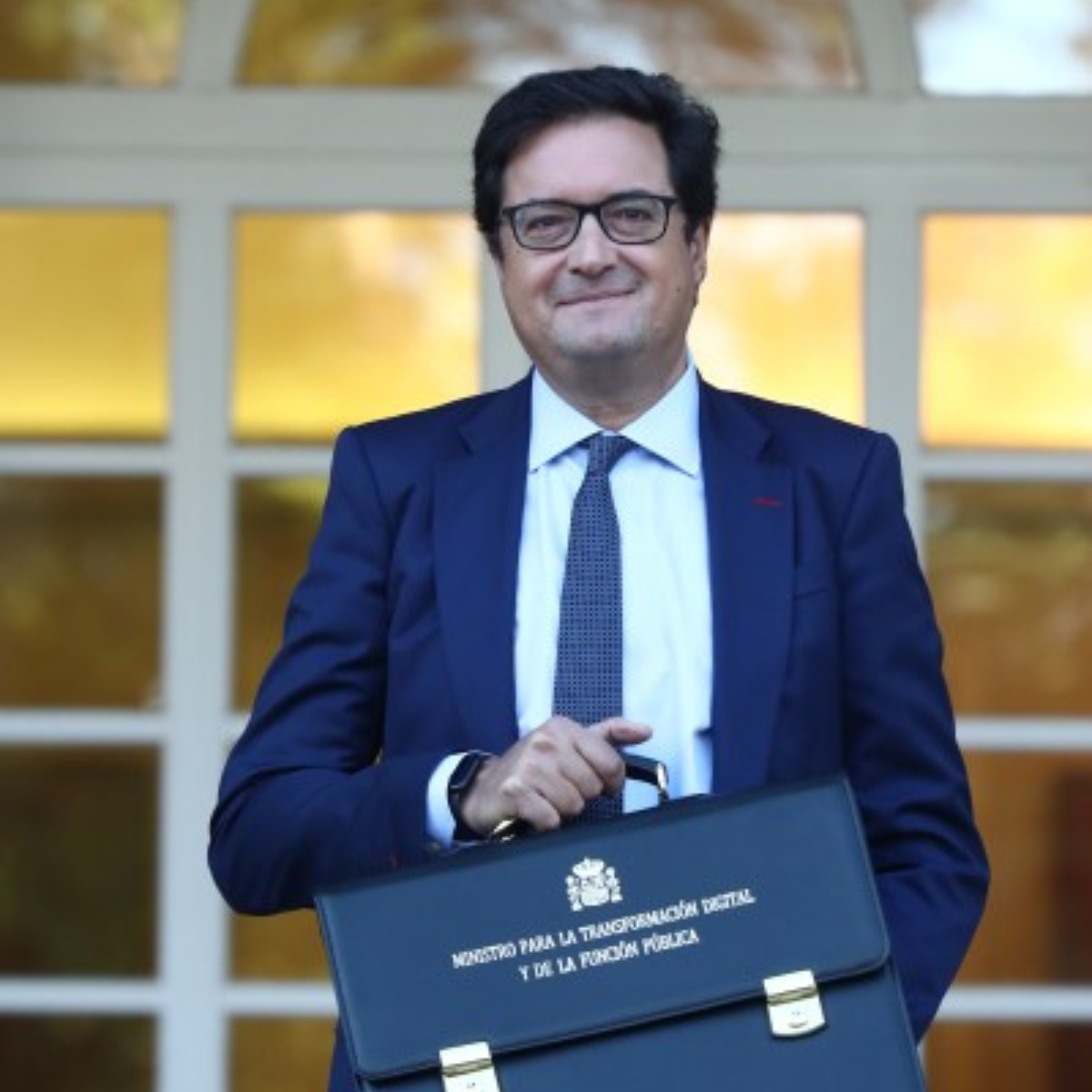

He was born in Madrid in 1973. He holds a degree in Political Science with a double specialization in Public Administration and International Relations from the Complutense University of Madrid. Since July 2021, he has served as Chief of Staff to the Prime Minister. Between 2018 and 2021, he was Chairman and CEO of Paradores. Appointed as a senator in 2015 representing the Cortes of Castile and León, he held the position until 2018. In the lower house, he served as spokesperson for the Foreign Affairs Committee and spokesperson for the Socialist parliamentary group.

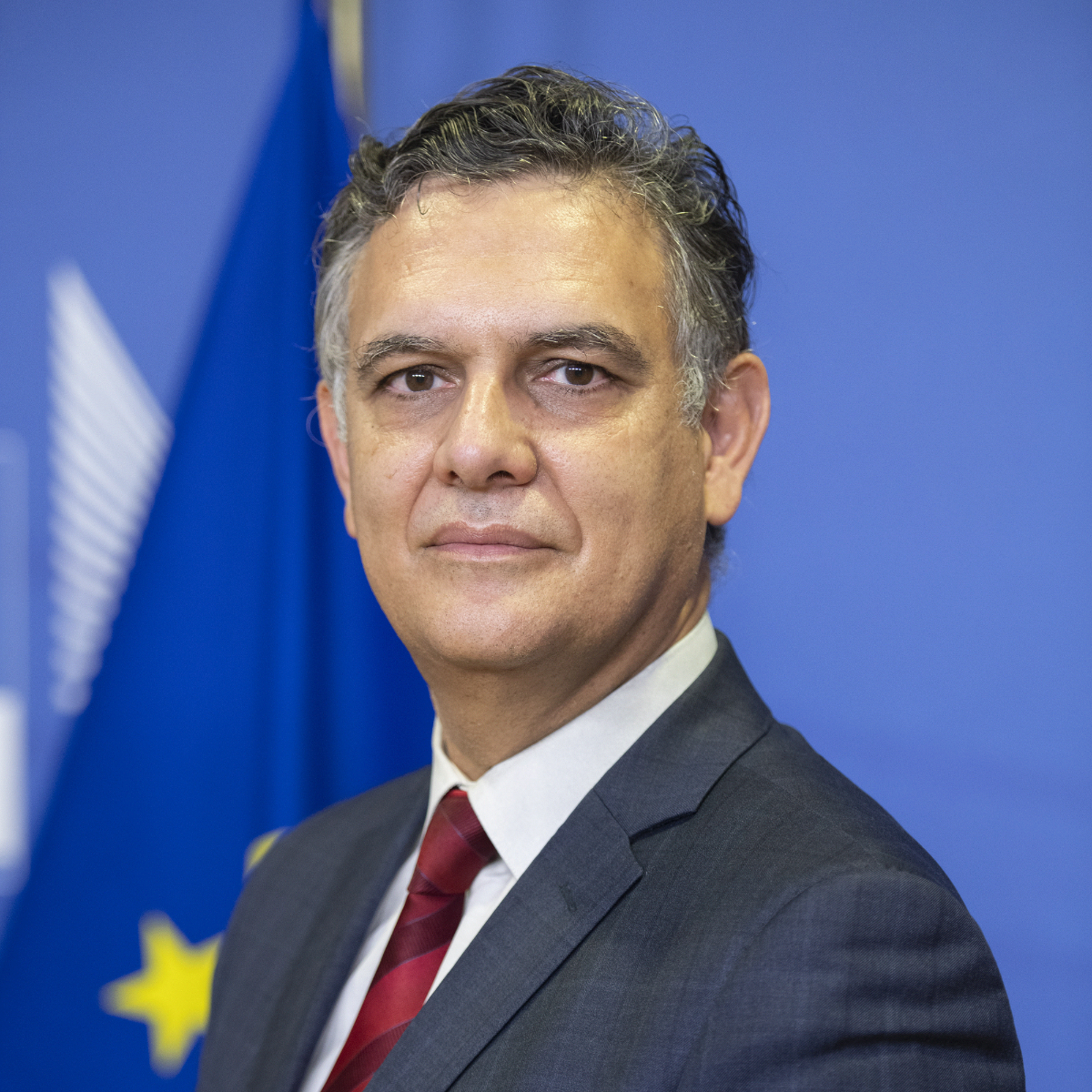

From tech founder to one of Europe's foremost innovation policy shapers. Isidro's career is a masterclass in turning ideas into impact. With the spirit of an entrepreneur who launched two AgriFood Tech startups and the strategic mind of a former strategy consultant, he brings a unique, ground-level perspective to his role as a Senior Official at the European Commission, a position he has held since 2001.
Currently, he operates at the very center of the EU's innovation engine, holding a pivotal dual role where he helps fuel growth through the Startups and Scaleups Task Force and steers support to game-changing companies at the European Innovation Council (EIC). He has been at the heart of EU decision-making, serving in the exclusive cabinets of two European Commissioners. For Commissioner Vălean, he managed the critical portfolio of innovation and digitalization in transportation. Before that, as a Cabinet Expert for Commissioner Gabriel, he covered an expansive brief that included Innovation, Research, Education, Culture, and Youth.
This high-level influence was built on a long-standing commitment to grassroots innovation. For nearly a decade, he was the face and driving force of Startup Europe, building a world-class ecosystem from the ground up. His ability to mobilize this community was demonstrated on an unprecedented scale when he coordinated EUvsVirus, the largest hackathon ever organized. This historic event brought together over 21,000 participants to develop more than 2,000 concrete solutions to fight the COVID-19 pandemic.
An engineer by training, a Cambridge University CSAP Fellow, and a former visiting lecturer, Isidro's thought leadership is internationally recognized. He was named a 'Thought Leader' by the UN's International Telecommunication Union (ITU), and his technical books and papers have been referenced by nearly 100 academics. Ultimately, all these roles are powered by a single, unwavering passion: fostering fierce European competitiveness and ensuring that visionary ideas become a powerful, tangible force for good in society.



Javier García-Martínez is a Professor of Inorganic Chemistry and Director of the Molecular Nanotechnology Laboratory of the University of Alicante (UA) where he leads an international team working on the synthesis and application of nanostructured materials for the production of chemicals and energy. Javier is the founder Rive Technology, which markets the technology he developed during his Fulbright postdoctoral stay at the Massachusetts Institute of Technology (MIT). Since 2012, the catalysts that Rive Technology sells are used in several refineries, significantly increasing fuel production and the energy efficiency of the process. In 2019, W. R. GRACE acquired Rive Technology. In June 2014, Javier was awarded the King Jaime I Award in his category of New Technologies and in 2015 received the Emerging Researcher Award from the American Chemical Society. In the summer of 2017, he was recognized by the American Chemical Society with the Kathryn C. Hach Award as the best US entrepreneur in the chemical sector. Javier is a member of the Council of Emerging Technologies and Young Global Leader of the World Economic Forum, of the Global Young Academy, and Fellow of the Royal Society of Chemistry. Since 2019, Javier has served as the Rafael del Pino Distinguished Professor in Alicante, Spain.

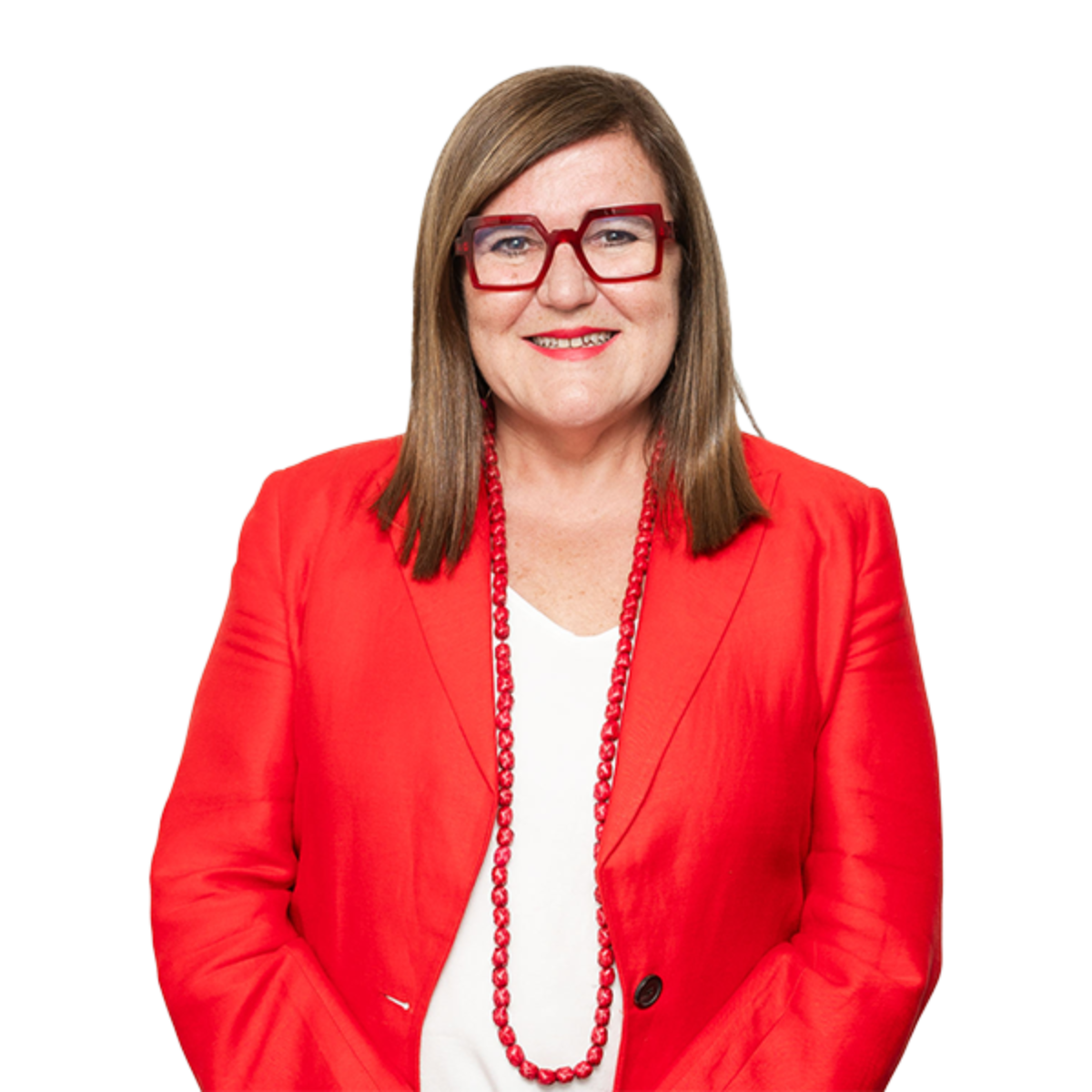

Professor of Electronic Technology at the Higher Technical School of Industrial Engineers of the UPM (ETSII-UPM), where she has spent her entire teaching and research career.
She has been Director of the Industrial Electronics Center, Deputy Director of Research and International Relations at the ETSII-UPM, and, more recently, Director of the Department of Automation, Electrical and Electronic Engineering, and Industrial Computing.Since 2003, she has been the UPM representative in the TIME network (Top Industrial Managers in Europe) and a member of its management committee. She is also a member of the UniBasq Advisory Committee, the ACSUCyL Institutional Quality Assessment Committee, and the Advisory Committee of the ANECA Division for the Evaluation of Teaching and Institutions. She regularly participates in evaluation panels for national projects and EU framework programs.



He holds a degree in Physics from the Autonomous University of Madrid and a PhD from Stony Brook University (USA). He completed his postdoctoral training at the Institute for Advanced Study in Princeton (USA) and at CERN (European Organization for Nuclear Research, Geneva, Switzerland). He is a Professor of Theoretical Physics at the University of Santiago de Compostela.
His research has focused on the study of quantum field theory, string theory, knot theory, and topological quantum field theories.
He served as Vice President for Scientific and Technical Research at the Spanish National Research Council (CSIC), Secretary General for Scientific and Technological Policy, and Director General for Research and Management of the National R&D&I Plan at the Ministry of Science and Innovation. He also served as Director of the Scientific Department of the European Research Council in Brussels (Belgium). Since April 2025, he has been the Director General of the Spanish State Research Agency (Agencia Estatal de Investigación).
He is the author of numerous publications in specialized journals and collective books.

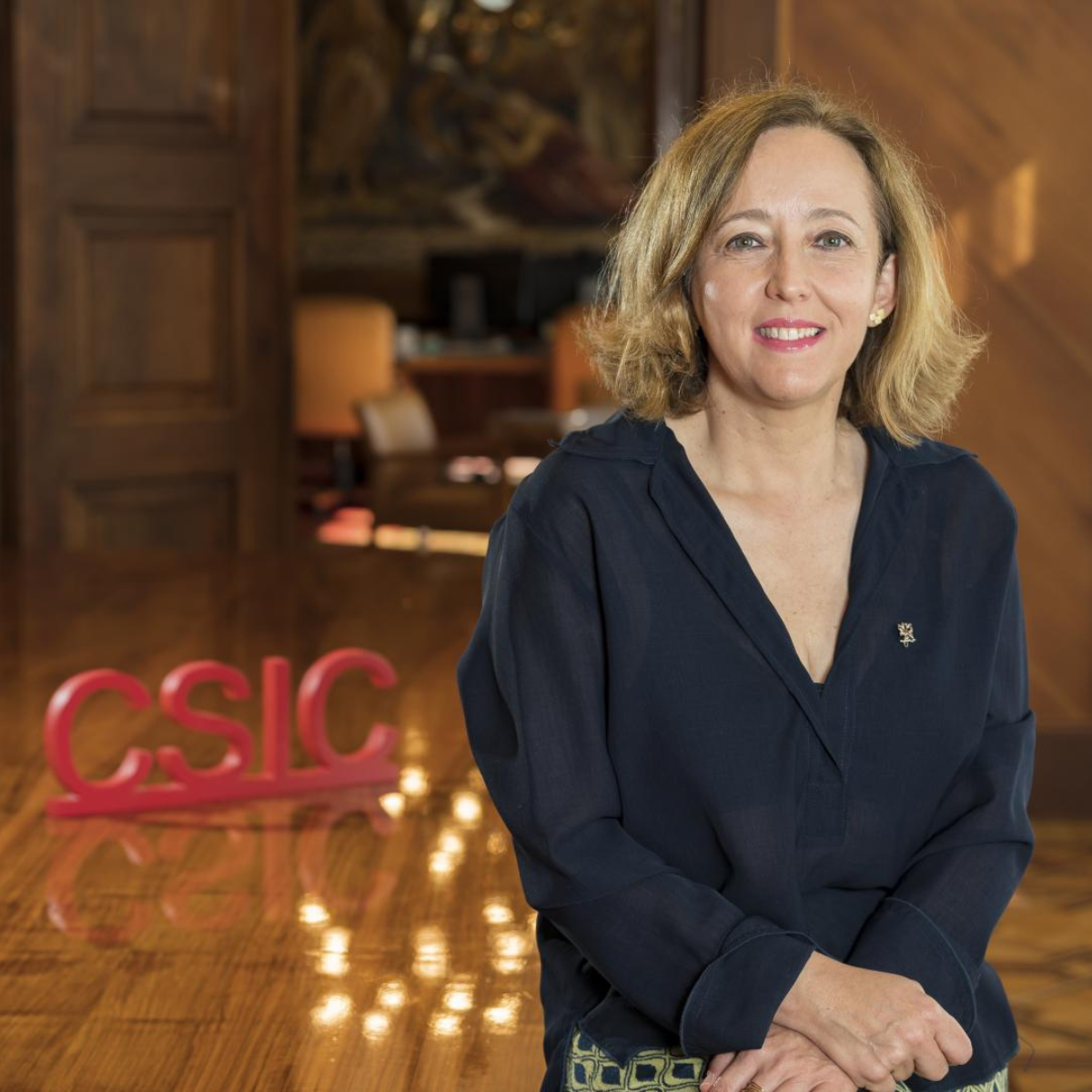

PhD in Political Science, Instituto Universitario de Investigación Ortega y Gasset (IUIOG), Universidad Complutense de Madrid (UCM). B. A. Degree in Political Sciences and Public Administration (UCM) and B. A. Degree in Law (UNED). Master’s Degree in Human Resources and Organization (ESIC). She has held teaching positions at the Universidad Rey Juan Carlos (URJC, 1995-2007) and at the Universidad Autónoma de Madrid (2007-2008). Se has been the Chief of Staff of the Minister of Healthcare, Consume Affairs and Social Welfare (2018-2020), and she is the President of the Spanish National Research Council (CSIC) since June 2022.
She has been visiting researcher or fellow at the Latin American Centre, University of Oxford, (2016-2017); at the Centre d´Études et de la Recherche sur la Vie Locale (CNRS), Institut d' Etudes Politiques in Burdeaux (2004); at the School of Social Policy and Social Research at the University of Kent (2008), and at the School of Political Studies at the University of Ottawa (2014).
Much of her recent research has dealt with the political conditions for reform of the welfare state and social policies in comparative perspective.

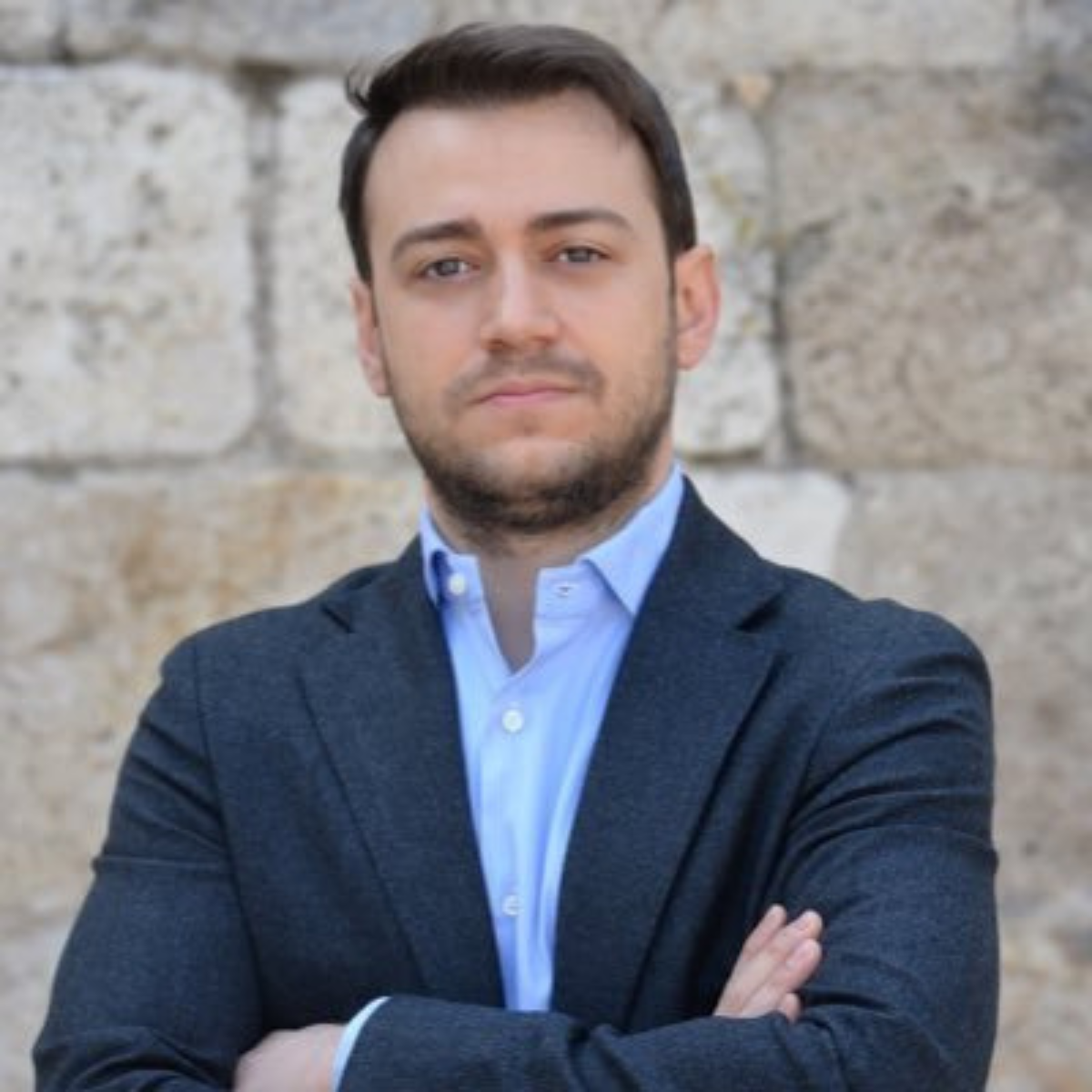

He holds a Law degree and a Business Administration degree from Rey Juan Carlos University in Madrid. He also holds a Master's degree in Creative Writing from the International University of Valencia. He is a member of the Madrid Bar Association.
He worked at the multinational PSA Peugeot Citroën in the accounting and account management departments. Subsequently, he worked at Viachannel, a Digital Shopper and Promotional Marketing Agency. He was also part of the press department of the Popular Parliamentary Group in the Assembly between 2015 and 2019. He directed the Online and Web Communication Department of the Community of Madrid between June 2019 and March 2020, when he was appointed Director General of Youth for the Community of Madrid, a position he held until the end of the legislative term in 2023.
In the 2023 elections, he was elected as a Regional Deputy for the People's Party. Prior to his appointment as Director General, he chaired the Culture Committee of the Madrid Assembly and served as a member of the Education, Science and Universities, Comprehensive Disability Policies, Youth, and Tourism and Sports Committees. He was also appointed by the Madrid Assembly to the Advisory Council on European Affairs of the Community of Madrid.
Her professional career has also been linked to culture and the promotion of reading, through the creation of a literary website dedicated to promoting and disseminating contemporary literature. She also contributed to the culture section of the biannual magazine "Menos de 40" (Under 40) published by the Young Entrepreneurs Association (AJE).

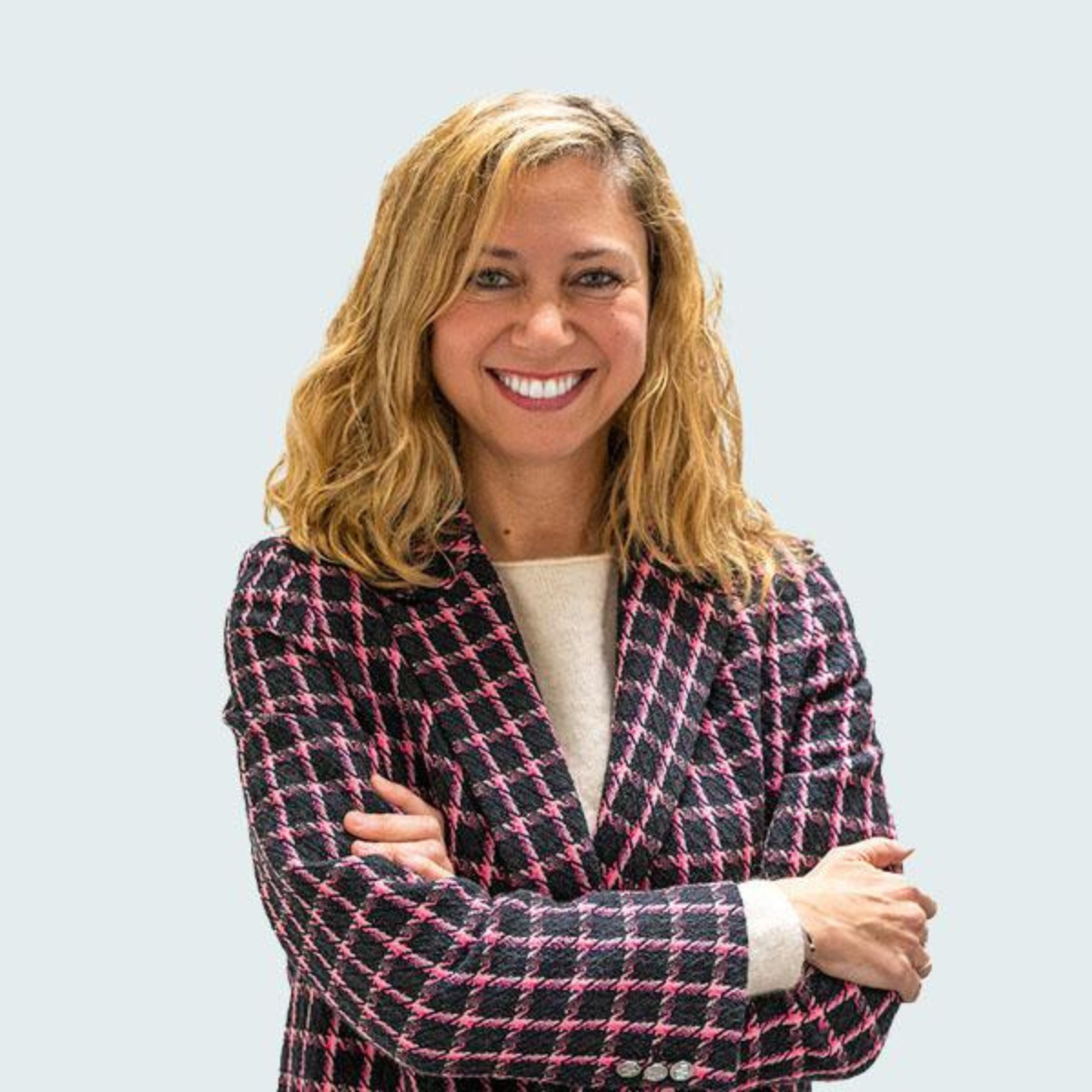

A graduate in Environmental Sciences with a master's degree in Energy Law, Rivera is a member of the Senior Corps of Civil Administrators of the Spanish State. She has over 20 years of professional experience in International Relations and spent the first four years of her career in France, working for the Council of Europe in the fields of cooperation and human rights, as well as in the consulting sector.
Since January 2020, she has served as Director of the Cabinet of the General Secretariat for Innovation at the Ministry of Science, Innovation and Universities, advisor to the Centre for the Development of Technology and Innovation (CDTI), and president of the Standing Committee of the Spanish Space Agency.
She also worked for the European Commission from August 2021 to September 2022 as a senior national expert at the European Environment Agency, monitoring climate change with Earth observation data and products, and developing indicators and data to support decision-making.
Previously, she served as an advisor in the Cabinet of the Third Vice-President of the Government and Minister for Ecological Transition and the Demographic Challenge. She has also been a member of the Board of Directors of the European Environment Agency and coordinator of the Copernicus Earth Observation Programme Users' Forum for six years. Before joining the Spanish General State Administration, she worked at the Council of Europe.



José Moisés Martín Carretero university degree in economics from the Universidad autónoma de Madrid and has extended graduate programs in finance from the IE Business School, Economic Analysis in the national and international economic relations in the CEPADE from Universidad politécnica de Madrid, in addition to a degree in Digital Strategy in INSEAD and other supplementary training with various courses at the Harvard Kennedy School of Government-IESE and the London School of Economics.
Until his appointment as Director-General of the CDTI, has occupied since 2014 the position of Director and partner Red2Red consultant and has more than 25 years of experience in the public and private sectors.
Previously, has acted as a member of the advisory council of economic affairs of the ministry of economy and of the advisory council of the high commissioner of Spain entrepreneurial Nation of the group of experts “ 100 of COTEC foundation ” COTEC for innovation and of the advisory council of the institute Hermes on digital humanism.
Between 2016 and 2024, has served as professor of economics and entrepreneurship in technological university Camilo José Cela.
In 2012, was appointed senior economic adviser to the embassy of south korea in spain and, between 2008-2012, has been head of the department of Multilateral cooperation in the spanish agency for international cooperation for development (AECID), responsible for the promotion of development (FONPRODE), member of the committee of enterprise internationalization (FIEM) and member of the governing council in the public company P4r-españa Outward Expansion.
It has been invited speaker with different graduate programs and has written numerous reports, book chapters and articles on risk capital, innovation and digital economy Has published books “ spain 2030, Govern the future ” (Deusto 2016) and “ The future of prosperity ” (Ariel 2022).



She was born in Baríndano in 1976. She is married and has two daughters.
She has a degree in Physical Sciences from the University of Zaragoza (1999) and a doctorate from the Public University of Navarra in Materials Engineering (2010), with a thesis on the development of nanostructured coatings and the techniques for their characterization.
In 2000 he was awarded a scholarship for training technologists at the Advanced Engineering Center of the Navarra Industry Association (AIN). Two years later he joined the staff of the AIN itself, where he was responsible for the surface analysis and characterization laboratory. He also carried out planning and resource management tasks, and participated in national and European research projects. In this same line of research in surface engineering, he has published various articles in specialized journals, and has made contributions to national and international conferences.
During this stage of his professional career he collaborated with companies from Navarre and other Spanish regions within the innovation sector, supporting them in the management and development of R&D&I projects, and exploring different avenues of support in different administrations.
From 2011 to the present, he has worked in the wind energy sector as head of Gamesa's materials laboratory, specifically in equipment and resource management, and in the development of R&D projects.
In September 2019, she was appointed General Director of Innovation of the Department of University, Innovation and Digital Transformation. In August 2023, she was appointed general director of Science, Technology and Innovation within the same department.

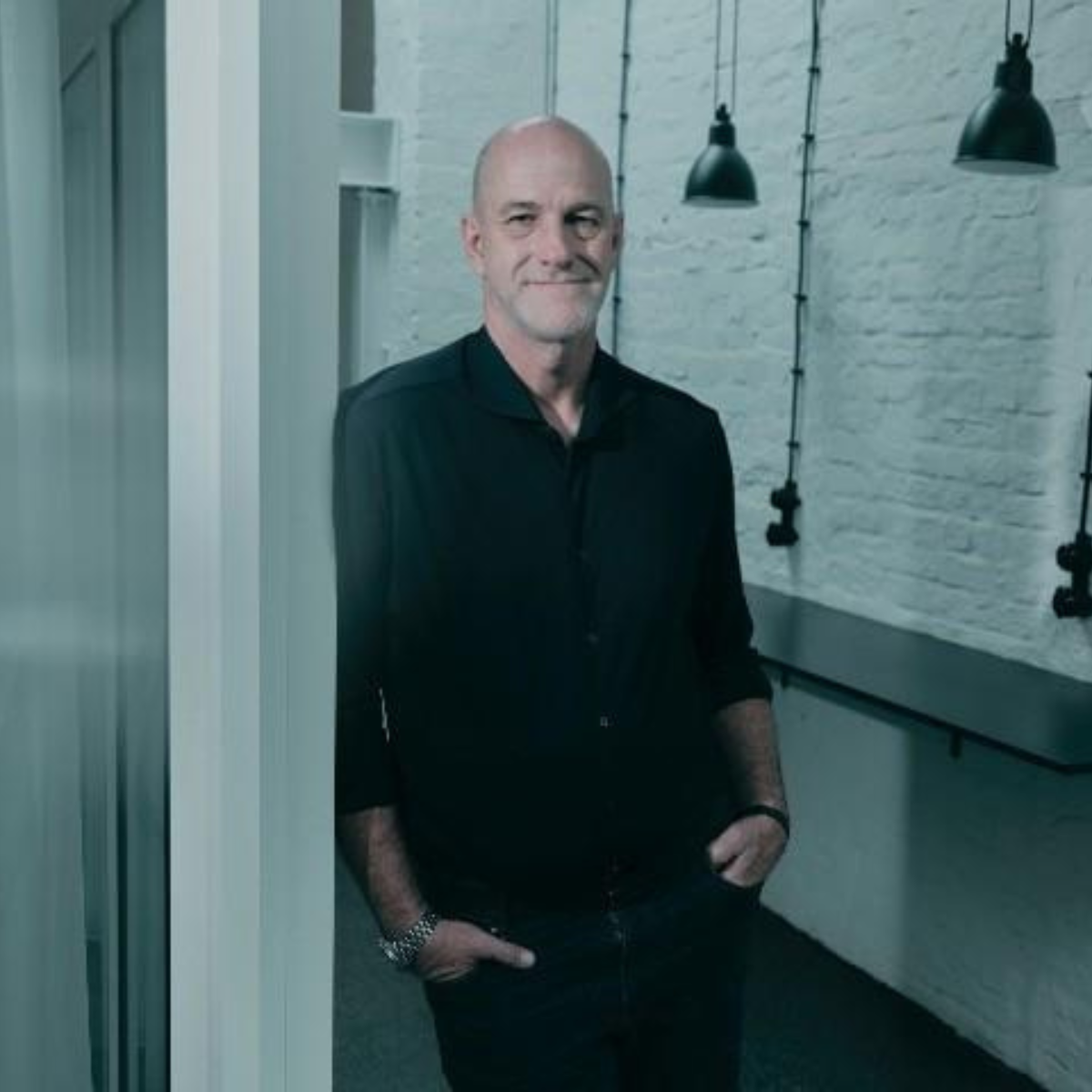

Olav Carlsen serves as the Innovation Manager at SPRIND, the German Federal Agency for Breakthrough Innovation, that is modelled after the US ARPA concept. Here, Olav focuses on fostering groundbreaking technological advancements. In his role, he often delivers keynotes on topics such as “Financing Breakthrough Innovations in Europe,” emphasizing his expertise in innovation financing. His professional background includes positions as a CEO/CFO of technology and renewable energy companies in Silicon Valley, LatAm and Middle East. During his tenure in California, Olav led two IPOs on Nasdaq.

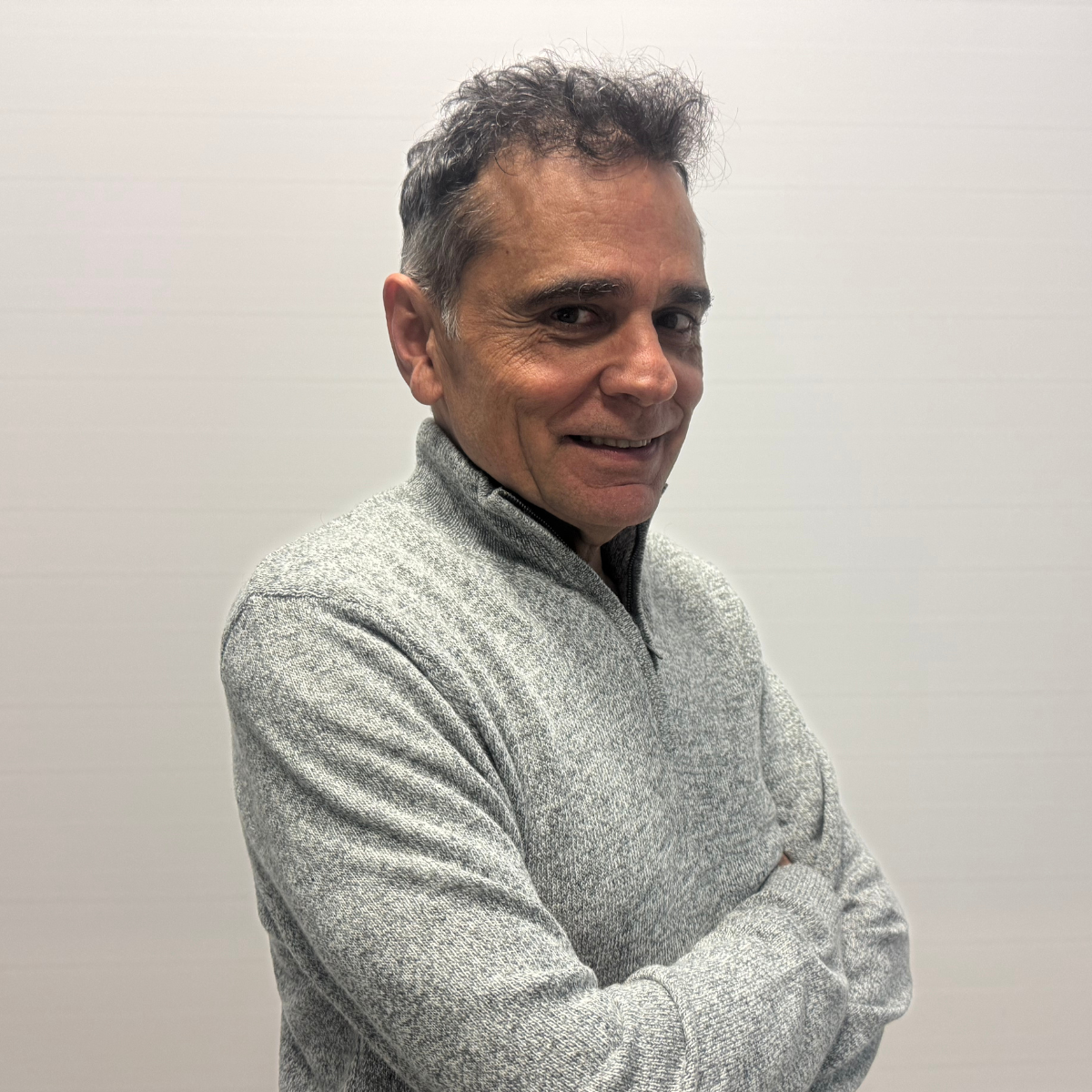

He holds a Master's degree in Telecommunications Engineering (1990) from the Polytechnic University of Madrid and a Ph.D. in Human-Machine Communication Systems from the same university (1994). He has completed several master's degrees and postgraduate studies, including a Master's in International Finance/CFO, a Master's in Sales and Marketing Management, and a Master's in Telecommunications Business Management. He has worked for 25 years in various business units at Telefónica S.A., including R&D laboratories, Business Development in Europe and the Americas, and Corporate Finance. He is currently the Director of Entrepreneurship at the Autonomous University of Madrid (UAM), where he coordinates entrepreneurship at multiple levels, from skills and methodologies initiatives for young students to the promotion of knowledge-based companies founded by UAM researchers.

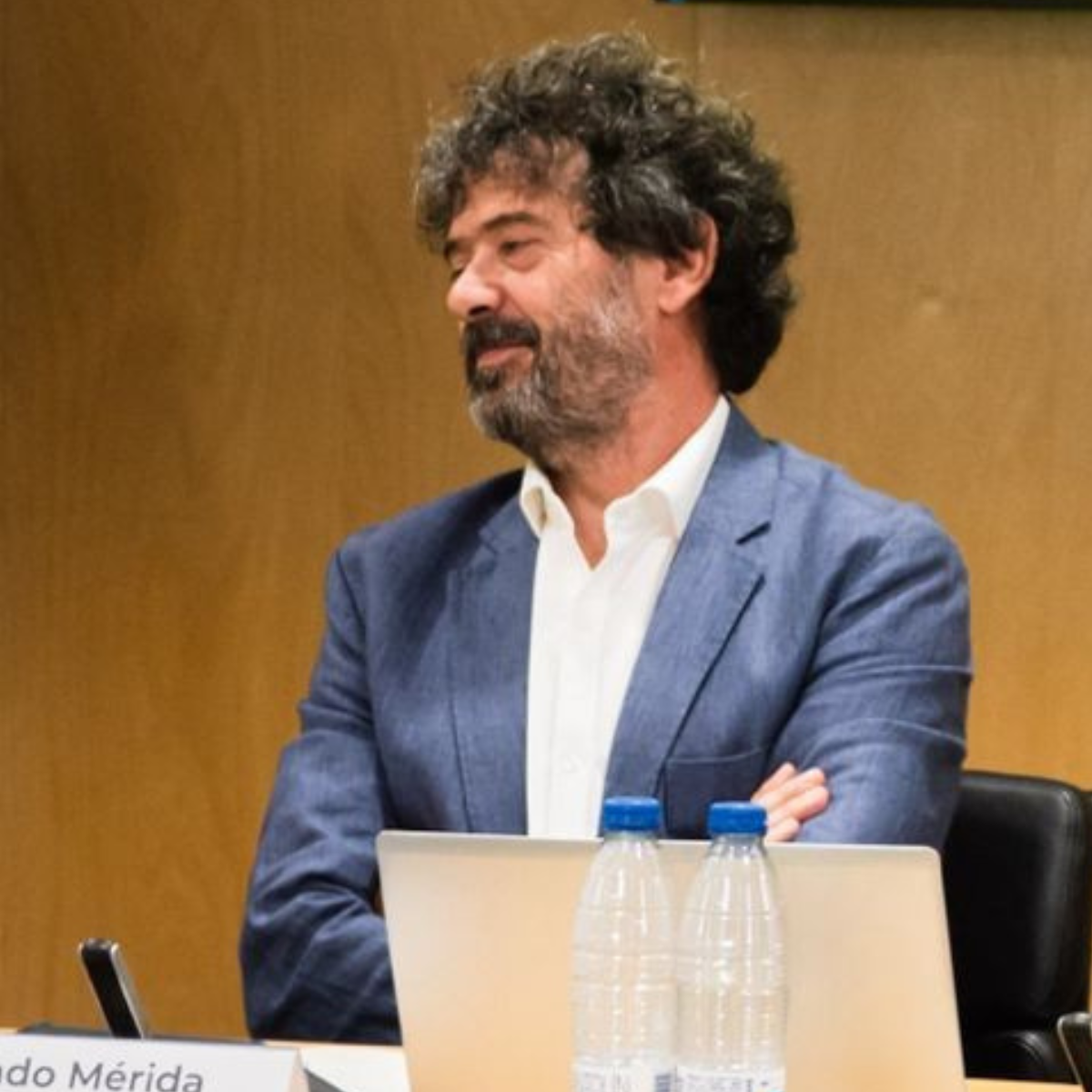

Throughout my 35-year professional career, I have carried out tasks in different disciplines and subjects, working in the analysis, design, coordination and evaluation of policies, strategies and processes in Research & Innovation. These tasks have been carried out within different positions within Spanish Administration and in the Joint Research Center of the European Commission.
I have managed initiatives with multilevel dimension, mainly in the field of European Regional Policy and the European Framework Programme, with special dedication to Research and Innovation Strategies for Smart Specialization (RIS3). I have also coordinated the Startup Villages Initiative, an action led to place innovation as a trigger to revitalise rural areas.
Currently, I am Deputy Director for Transference at the Spanish Ministry for Science, Innovation and Universities.
I have been acting as a Spanish National representative to different international organizations, highlighting my work in the North Atlantic Treaty Organization (NATO), the Organization for Economic Cooperation and Development (OECD), the European Commission and the United Nations, among other entities.

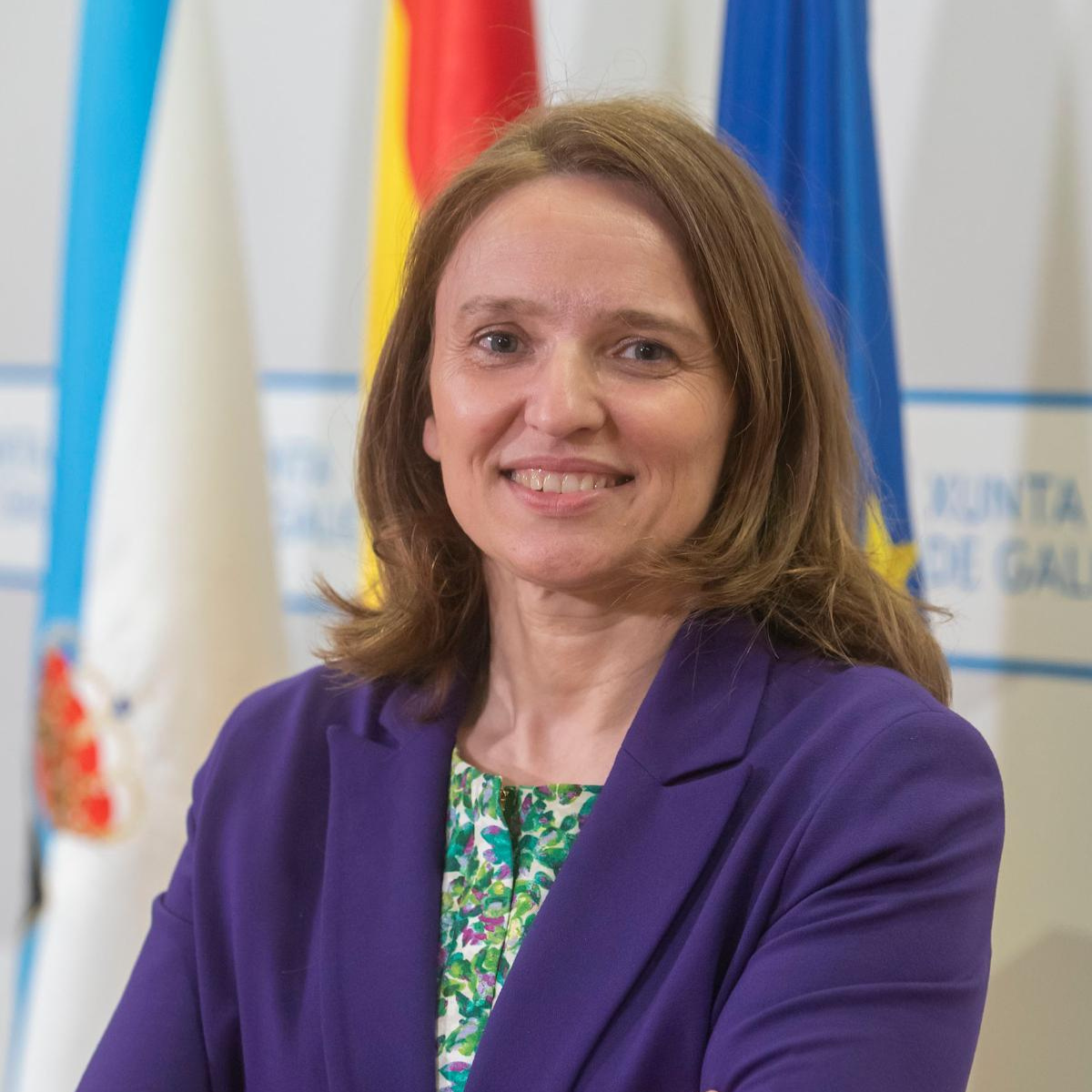

In 1999 she began her professional career at the Galician Supercomputing Center (CESGA), where she developed scientific, technical and management activities, mainly within the framework of regional, state and European R&D&I projects.
In 2018 she joined the Fundación Empresa Universidade Galega (FEUGA) to work in the area of Innovation and European Programs, of which she was deputy director. In this context, it has contributed to the formation of more than 200 consortia and the development of more than 30 European R&D&I projects.
From 2023, and until her appointment as director of the Axencia Galega de Innovación (GAIN), she served as director of innovation at the Fujitsu International Quantum Center, working on establishing collaborations at the Galician, Spanish and European level, with the aim of positioning Galicia as a benchmark in quantum computing and accelerating the adoption of these technologies through public-private collaboration.

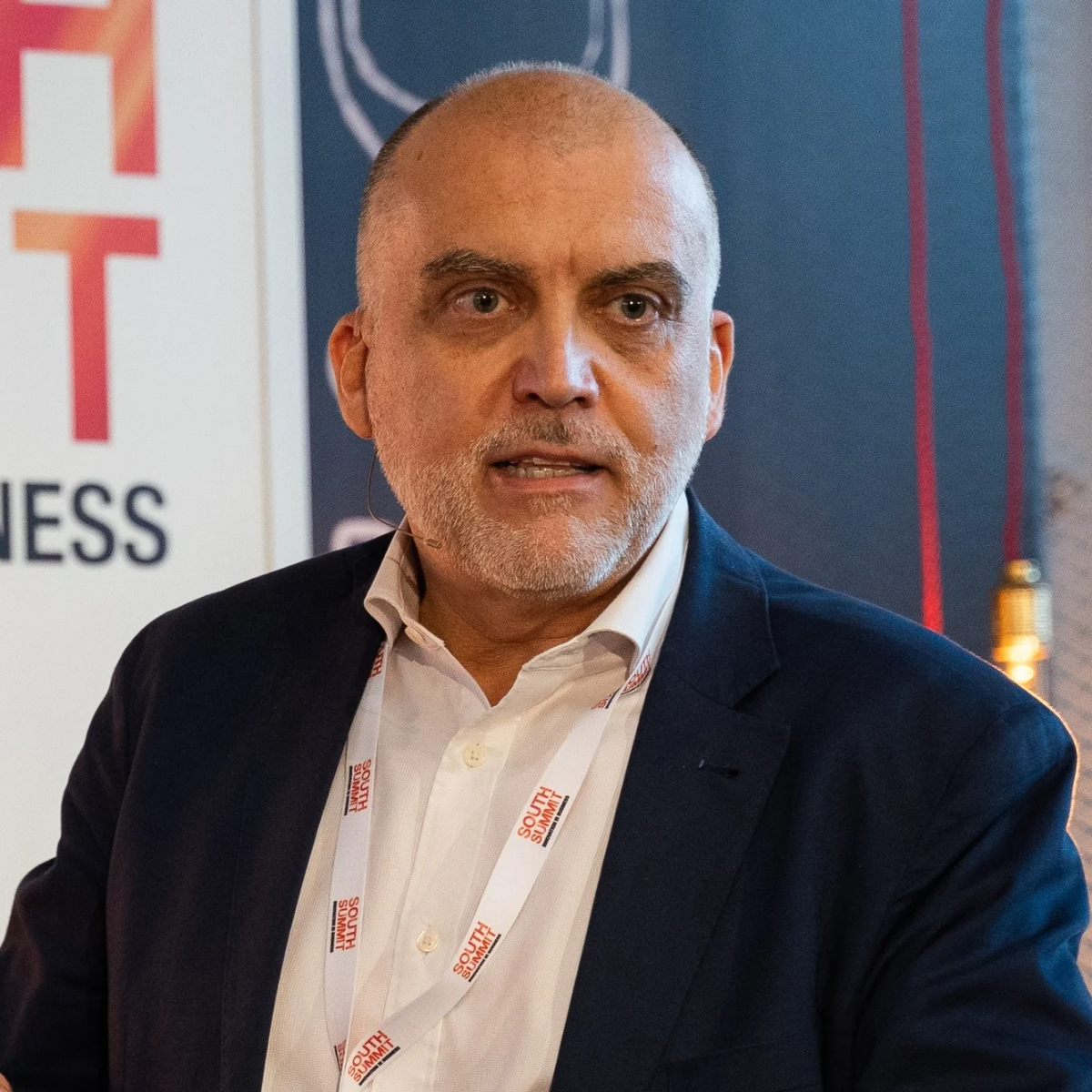

Currently in charge of the New Technology-Based Firms Unit at Fundacion madri+d. Coordination of Regional, National and International programmes in the fields of Entrepreneurship, Startup Funding, Venture Mentoring and R&D Commercialisation. Physicist and MBA from IE, he is an expert in the fields of Startups, Mentoring Accreditation, Innovation, Regional Development, Technology Auditing, Technology Transfer and Cluster Policies.
Manager ESA BIC Madrid Region, EC-EASME-EEN Key Account (KAM) of the SME Instrument coaching service.
Former Innovation Manager Consultant and University Lecturer. Technical and Management experience in the electronics and aerospace sectors. Coordination of Innovation and Entrepreneurship studies and publications.

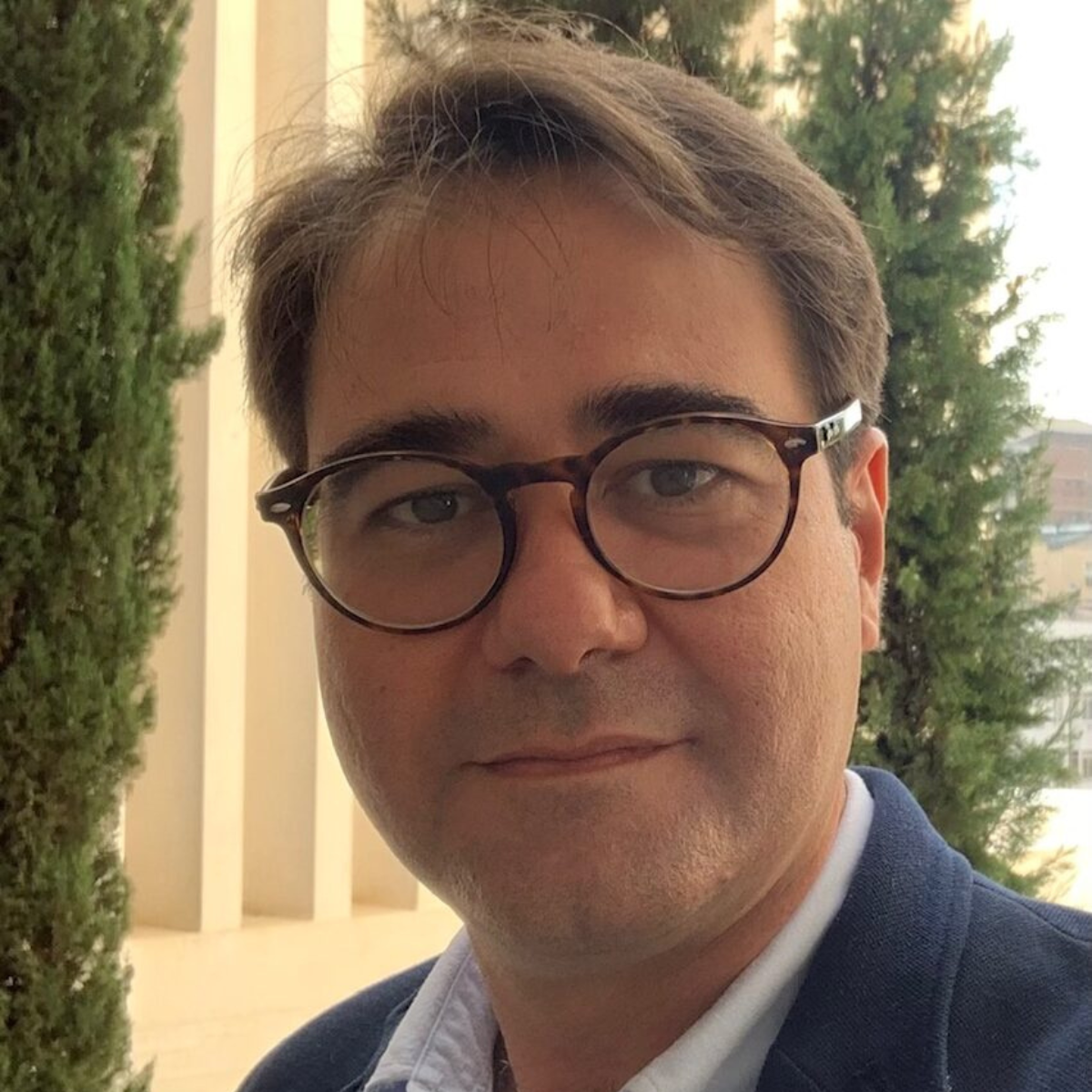

He is Director of Business Development at FUNDECYT-PCTEX, the foundation that manages, among other projects, the Science and Technology Park of Extremadura and the European Business and Innovation Center of Extremadura (CEEI Extremadura) of which he is director.
Representing FUNDECYT – PCTEX, he has been CEO of the Management Company of the City of Health, in charge of promoting a Biotechnology Pole in the City of Cáceres.
After having held executive functions in private companies, he has been, for nine years, Coordinator of CIADE (Center for Entrepreneurial Initiatives of the Autonomous University of Madrid). As such, he was closely linked to the Research Results Transfer Office of the University of Extremadura and the Business Development Unit of the Madrid Science Park since its creation.
As an expert, he has provided advisory and acceleration services for technology-based companies for different institutions concerned with business creation: Chambers of Commerce, Science and Technology Parks, Innovation Agencies and Technology Centers.
He has taught numerous courses on Business Creation and Innovation Management for various types of Institutions and Professional Groups.
His research and consulting work has focused on the study of the Entrepreneur Profile, design of business creation and development service platforms, territorial development strategies based on entrepreneurship and innovation, the study of social insertion companies and social entrepreneurship.
He has been a promoter and coordinator of the School of Social Entrepreneurs of the Autonomous University of Madrid.
He has been a professor of the Master in Administration of Foundations and Non-Profit Entities at the Autonomous University of Madrid, the Master in Ecosystem Restoration at the University of Alcalá de Henares and the Master in Business Entrepreneurship at the Polytechnic University of Madrid.
He has given courses and conferences at almost twenty Spanish and Latin American Universities, and is the author of articles and publications on entrepreneurship and innovation.

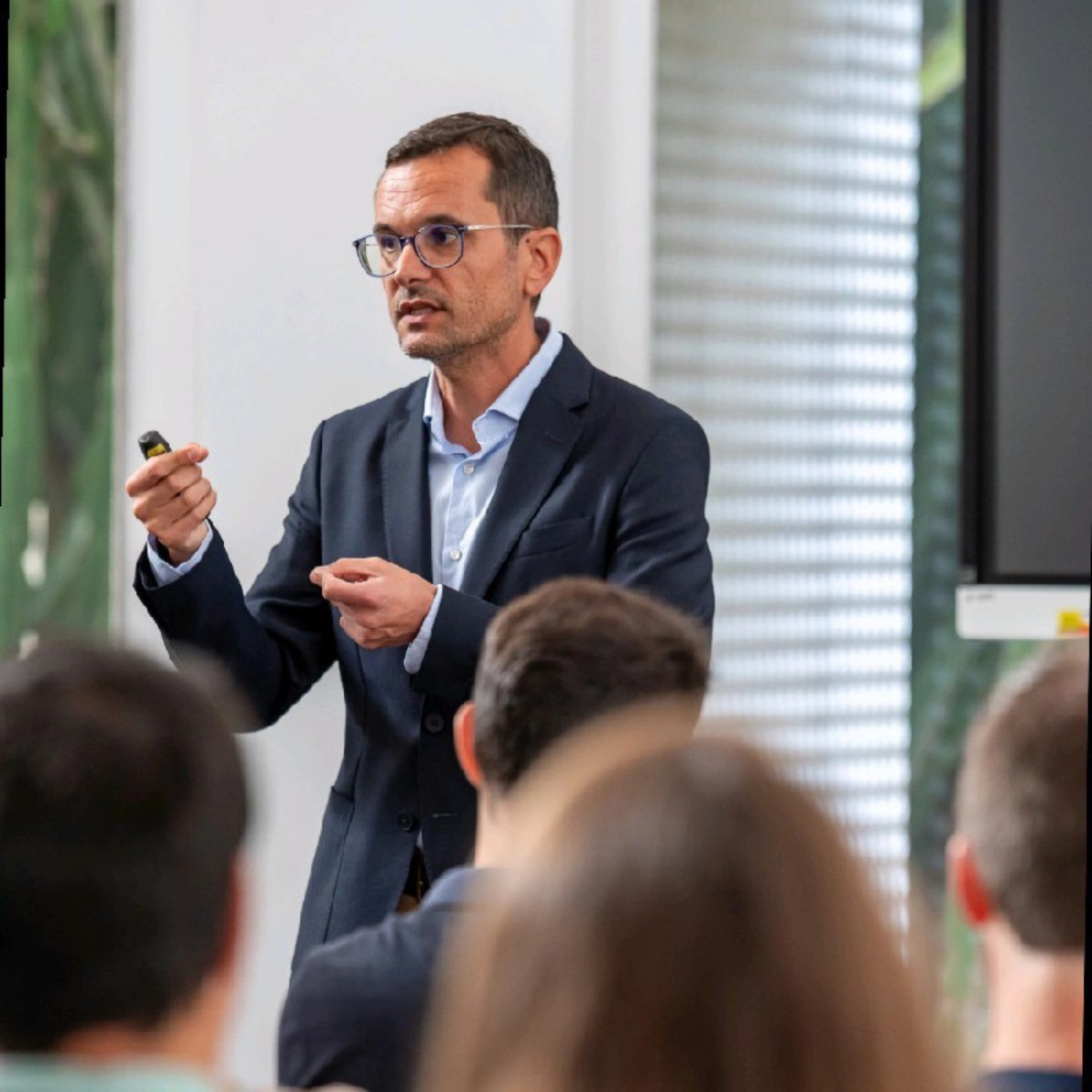
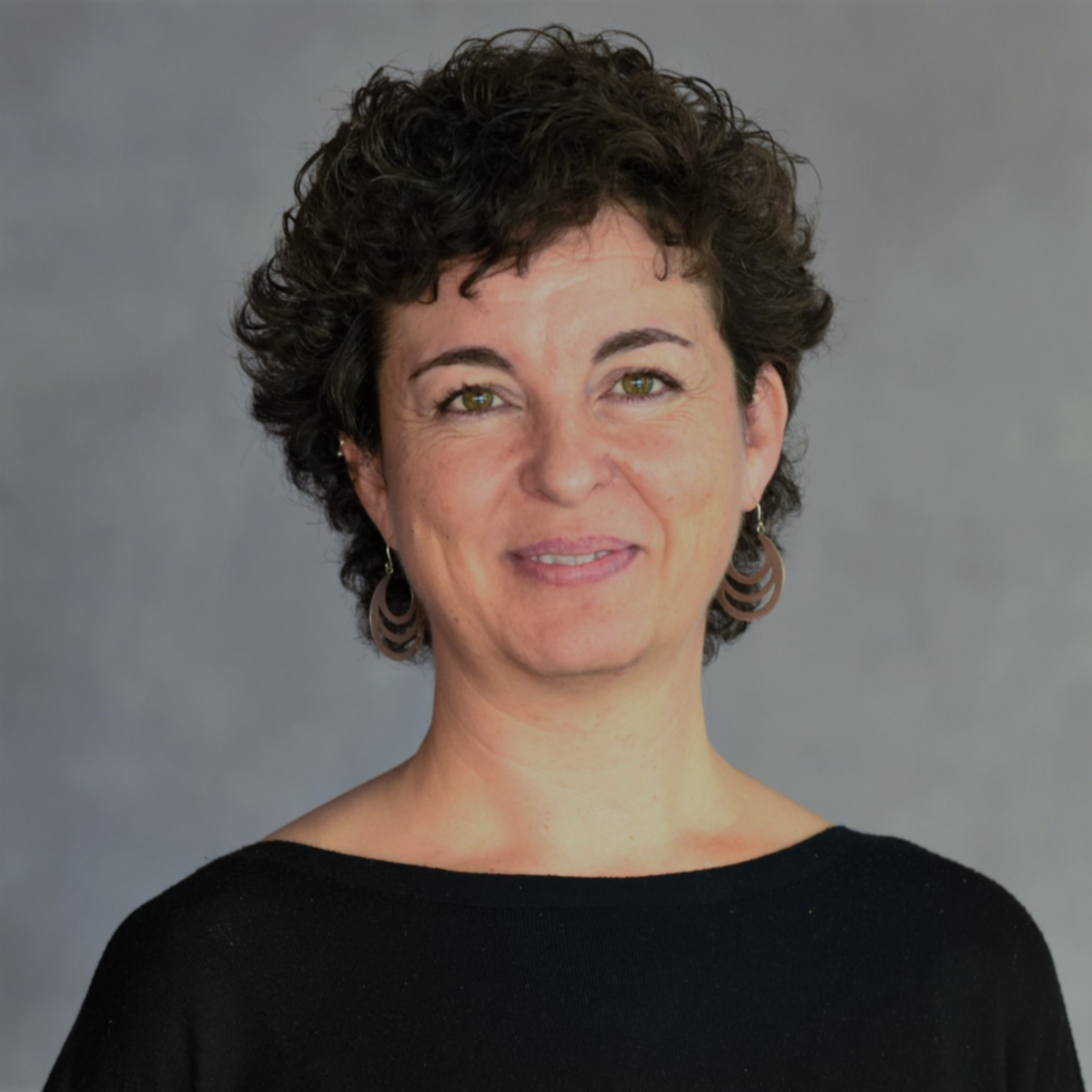
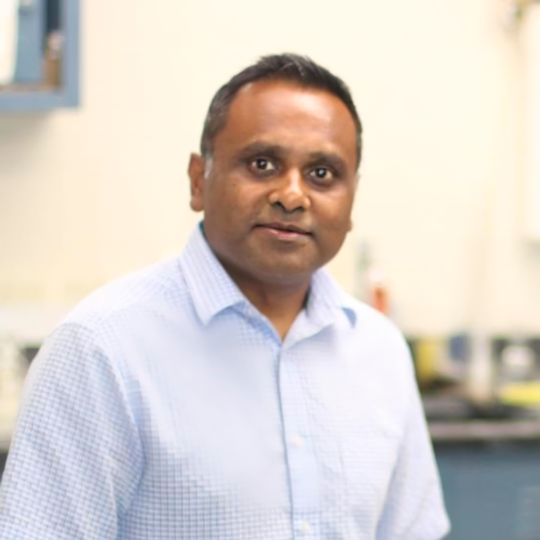

His research interests are in the fundamental studies of atomically thin two-dimensional transition metal dichalcogenides (TMDs). In particular, he studies the electronic and electrochemical properties of 2D TMDs. This involves synthesis by chemical exfoliation or chemical vapor deposition, characterization using advanced analytical techniques and fabrication of nanoscale devices. He also studies phase transformations in monolayered materials and utilization of phases with disparate properties for catalysis and energy storage.

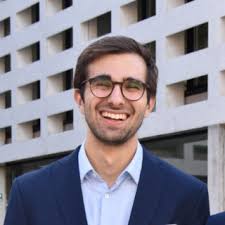

Economist, currently working as a member of the Patent and Technology Observatory team at the European Patent Office (EPO). The Observatory conducts economic research, organises events, and develops data tools to better understand and discuss the future of innovation, making its insights accessible to the entire European innovation ecosystem. Alongside full-time work at the EPO, he collaborates on entrepreneurship research at INSEAD. He holds a Master’s degree in European Economic Studies from the College of Europe (Summa Cum Laude) and is an alumnus of Sciences Po and UCL (Cum Laude). His specialisation lies in the economics of innovation, with a particular focus on industrial, business, and technological policy in Europe. He has completed a research residency on business creation policies at the Impact Hub in Vienna and has experience as an innovation consultant and as a jury member for innovation competitions. He is also a co-founder of the College of Europe Think Tank – Bruges Student Institute on the Future of Europe, which works on EU foresight policy. He thrives in multicultural environments and is fluent in six languages.

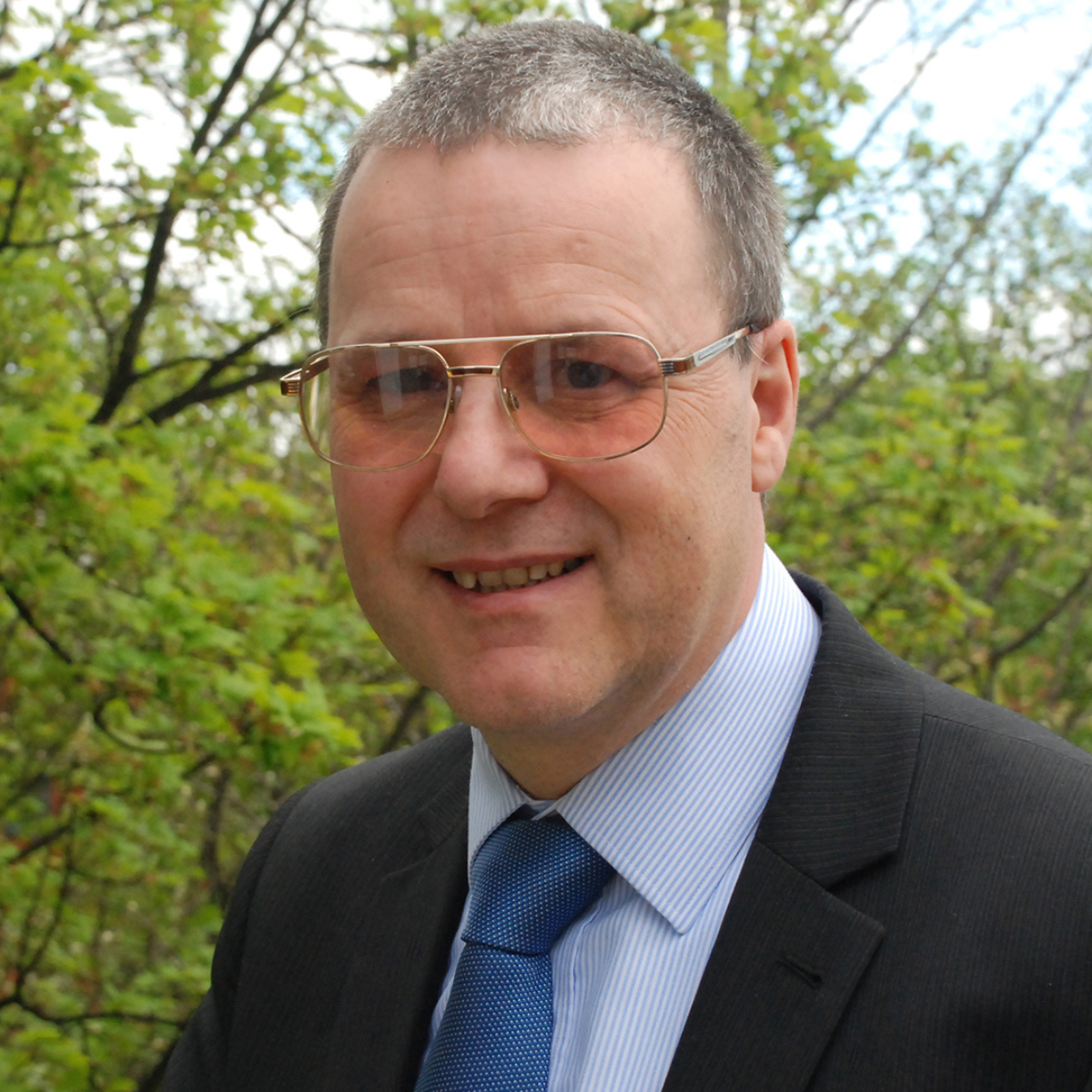

John Allport gained a BEng degree in Mechanical Engineering from the University of Nottingham in 1985 as a Student Apprentice with the National Coal Board. He later worked in open cast mining in Australia before taking a role designing and installing centrifugal separation systems for the chemical and oil industries. Following another career change, John then gained over 25 years experience in the field of automotive engineering, covering a range of components, including crankshaft dampers, drive couplings, balance shafts, suspensions and turbochargers. During this time, he completed a PhD in Computer Aided Engineering of Elastomeric Engineering Components at Bradford University, having been awarded an Industrial Fellowship of the Royal 1851 Commission. John has also been awarded over 20 patents covering various aspects of dampers, couplings, bearings and turbochargers. In November 2013, he was appointed Professor of Automotive Engineering at the University of Huddersfield having spent the previous 11 years at Cummins Turbo Technologies, most recently as Training and Talent Development Leader, and prior to that as Worldwide Manager and Functional Excellence Leader - Applied Mechanics. As part of that role, John became Director of the Turbocharger Research Institute at the University. The Institute was established to conduct research and develop training to support companies at the forefront of this world leading technology. This work in turbomachinery has led to John's latest research which is based on the use of biofuels in clean energy generation, particularly in micro gas turbines. He is currently developing the Energy Integration Laboratory at the University, which is a pilot scale test centre for trialling processes for converting organic waste materials into useful energy. John is a Fellow of the Institution of Mechanical Engineers, serving on several Committees and Panels. He is also an active promoter of engineering in schools, particularly in widening gender diversity.

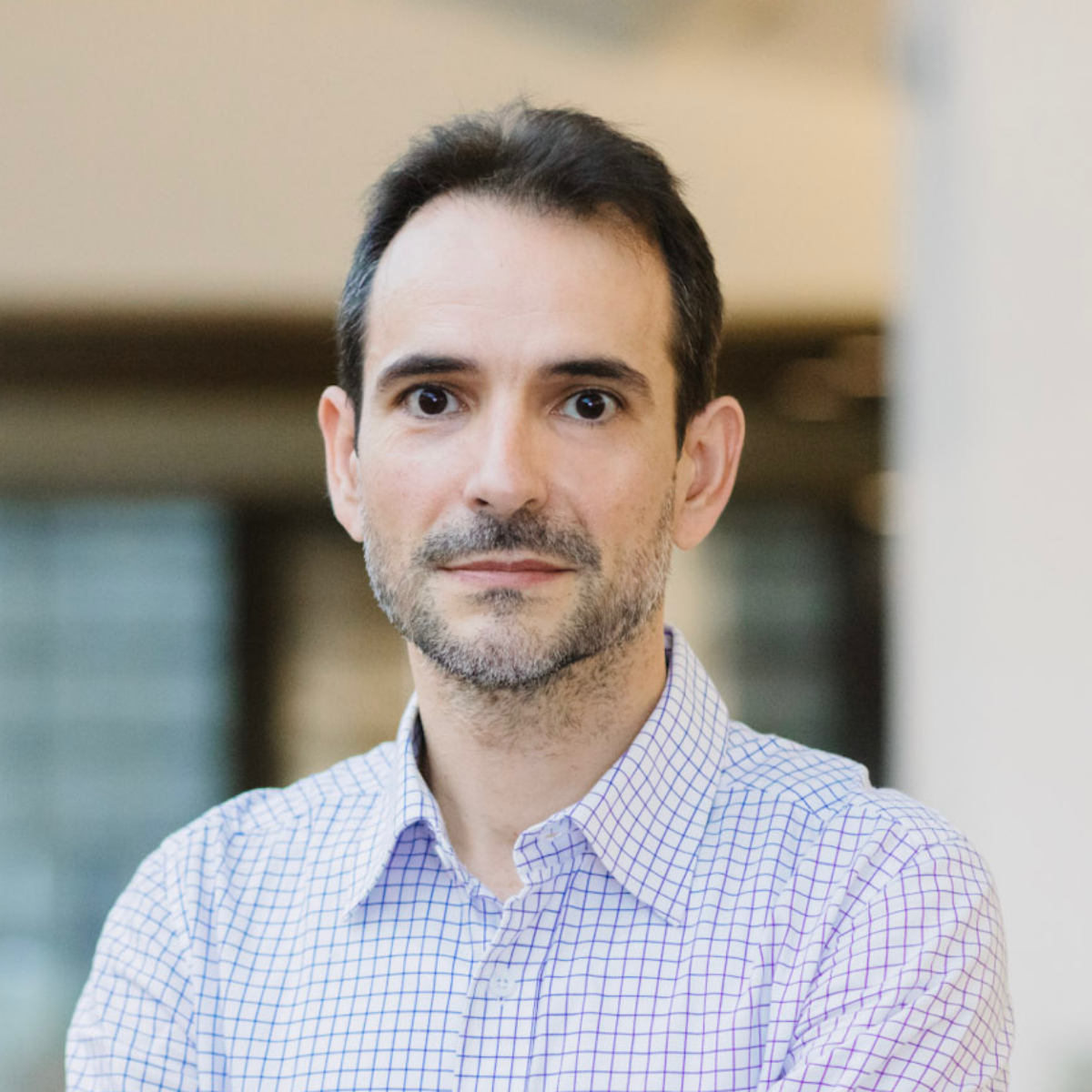

Dr. Jorge Gascon is a professor of chemical engineering at KAUST, recognized as a highly-cited researcher, patent holder and award winning scientist. From 2017 to 2024 he served as the Director of the KAUST Catalysis Center, and led the Circular Carbon Initiative between 2021 and 2024. Prior to joining KAUST in 2017, he taught for 11 years at Delft University of Technology, Netherlands, where he reached the rank of full professor. Professor Gascon maintains diverse professional affiliations, including membership on the editorial advisory board of Chemical Engineering Journal, ACS Catalysis and other scientific journals. In addition to his academic career, Gascon is the co-founder and Chief Technology Officer of ClimateCrete, Inc., a Silicon Valley based startup with the mission of making the construction industry more sustainable. ClimateCrete has raised more than $5 million in Venture Capital investments and is embarking on the construction of its first industrial-scale plant. Professor Gascon's research interests fall at the intersection of Chemical Engineering and Materials Science, including the development and demonstration of new nano-structured materials and composites. Applications include multifunctional catalysis, with special emphasis in C1 chemistry; Fischer Tropsch Synthesis; Methanol to olefins; CO2 valorization; photo-catalysis; and membrane and adsorbent development.

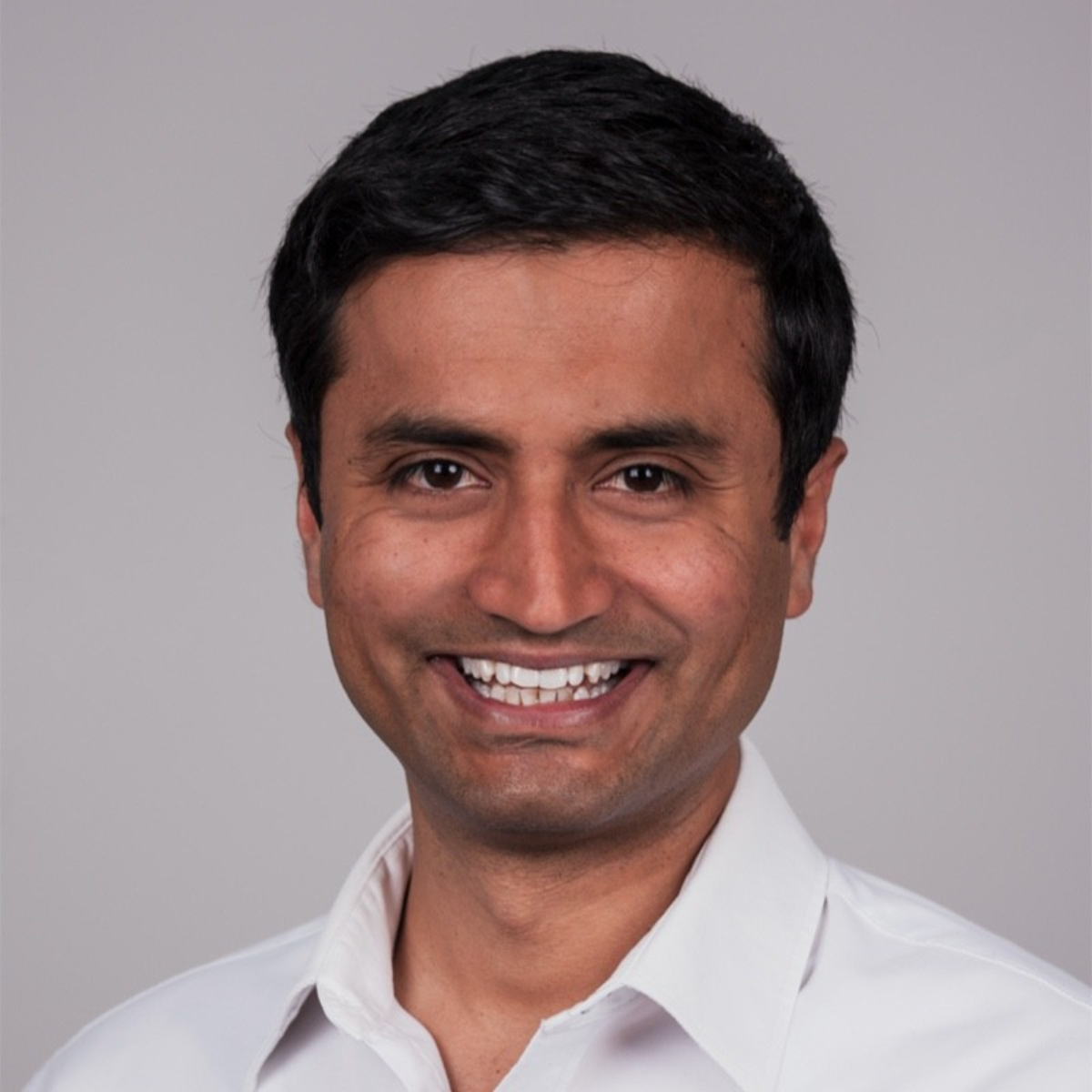

Dr. Sai Shivareddy is an Industrial Sai Shivareddy is the founder and CEO of Nyobolt, a company pioneering high power density energy storage systems for AI power infrastructure, autonomous robots and mobility. Nyobolt has raised over $100 million in Venture Capital and operates in 5 countries globally. Sai has over a decade of experience in the energy storage industry, having founded multiple start ups commercialising new materials and technologies. Sai obtained his PhD in Engineering from St John’s College, Cambridge University



Elvira Fortunato has a career distinguished by scientific, academic, and political leadership, with recognized impact both nationally and internationally. She holds a PhD in Microelectronics and is a pioneer in the field of transparent electronics, being the inventor of the first paper transistor. She is currently the most cited researcher at NOVA University Lisbon. She has held high-level responsibilities, notably serving as Minister of Science, Technology and Higher Education, a role in which she promoted policies to bring science, higher education, and national priorities closer together. She led structural reforms such as the revision of the funding model for higher education institutions, the creation of specific quotas for low-income students (tier A), and the launch of the FCT-Tenure program, which fostered stability in scientific careers. She also coordinated the National Semiconductor Strategy, positioning Portugal within the EU Chips Act framework.As Vice-Rector for Research at NOVA, she led a structural transformation in the university’s research support system, established the Strategic Council for Science, created the NOVA Science journal and NOVA Science Day, and restructured the Research Support Office to focus on scientific strategy, project management, and research information systems. During this time, she also championed gender equality, coordinating the SPEAR project and founding the Office for Equality and Inclusion. She served as Chief Scientific Advisor to the European Commission, providing direct scientific advice to EU Commissioners and coordinating strategic studies on technologies for carbon capture and sustainable mobility within the EU's Scientific Advice Mechanism. Scientifically, she directed the Associated Laboratory i3N, a European reference in advanced materials, sustainable electronics, and nanotechnology, which has secured twelve ERC grants, hundreds of international projects, and dozens of patents. Under her leadership, i3N became the most prominent research institute in Portugal in Materials Science and Nanotechnology, pioneering the first national PhD program in Nanoscience and Nanotechnologies. Her achievements have earned her over 50 national and international honors, including the Pessoa Prize, the European Commission Horizon Impact Award, the Human Rights Medal of the Portuguese Parliament, and recognition as one of the 27 most inspiring women in Europe by the French Presidency of the EU. Beyond her scientific contributions, she is a passionate advocate for science education as a driver of social and economic development, promoting STEM fields, gender equality, and the training of new generations of scientists. She regularly participates in international conferences, forums, and science outreach initiatives, affirming science as a tool for inclusion, accessibility, and sustainability. Her vision integrates research, innovation, science policy, and civic commitment—reflected in a career of real, transformative, and lasting impact in service of society.

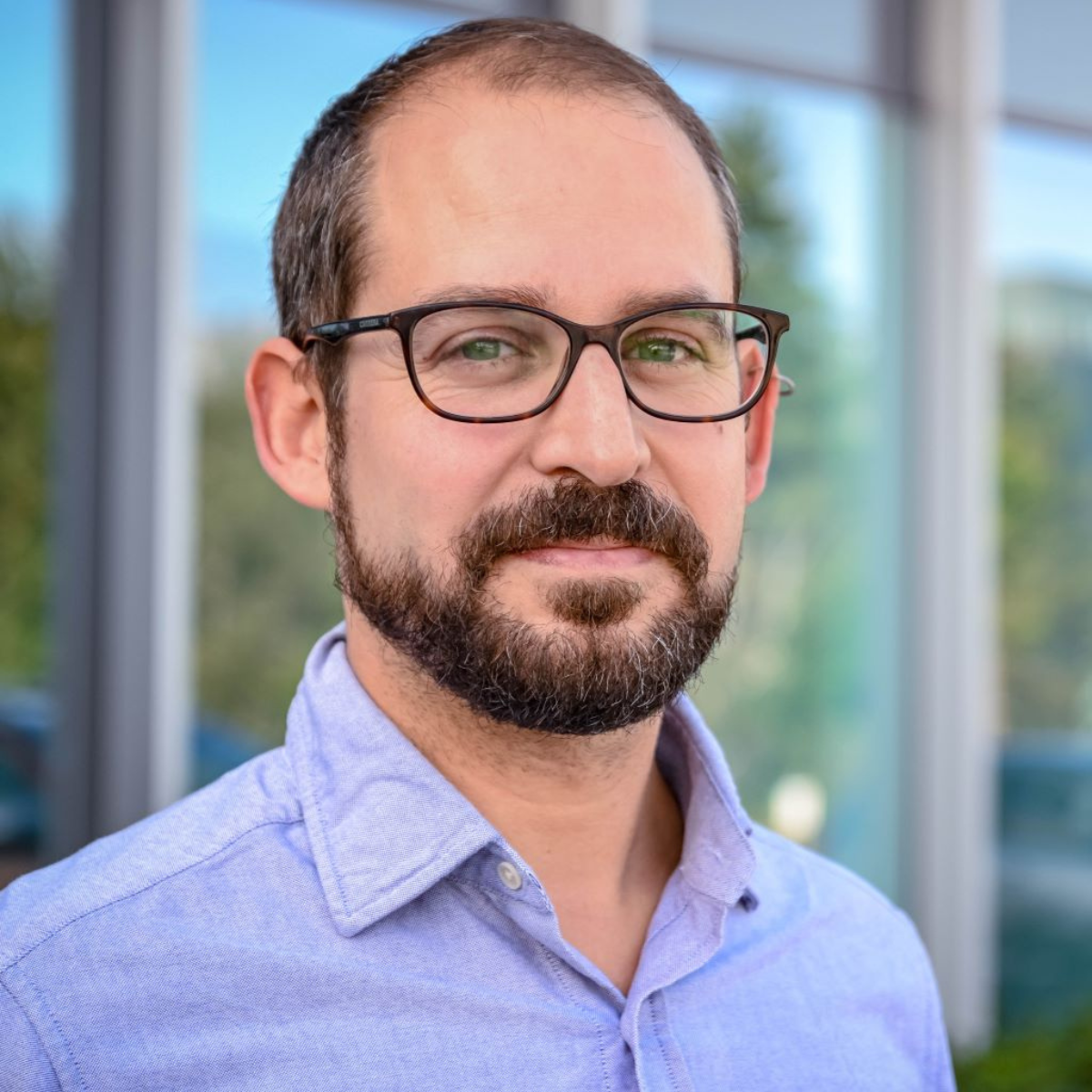

Prof. David Fairen-Jimenez is a Professor of Molecular Engineering in the Department of Chemical Engineering & Biotechnology at the University of Cambridge, where he leads the Adsorption & Advanced Material Laboratory (AAML His research focuses on the application of porous materials, such as metal-organic frameworks (MOFs), in energy applications and nanoscale drug delivery. His expertise combines 1) synthesis and engineering of novel nanomaterials, 2) molecular modelling, 3) drug delivery processes for cancer treatment, and 4) sustainable industrial applications. He leads a multidisciplinary team of 20 researchers, including PhD students and post-docs. In addition to his academic role, he is Chief Scientific Officer (CSO) at Immaterial, a company focused on the development of MOFs for carbon capture and hydrogen storage, and CEO at Vector Bioscience Cambridge, which utilizes MOFs for targeted cancer drug delivery. David’s work has attracted significant funding, including a European Research Council (ERC) Consolidator Grant, A European Innovation Council (EIC) transition Award and various industrial collaborations with major companies. He focused on bridging the gap between fundamental research and commercial applications, advancing innovations in environmental sustainability and healthcare. To date, David has published 135 papers and filed 10 patents (citations, 13800+; h-index, 62) and has given many invited seminars and lectures at conferences and universities around the world. BSc, Chemistry, Universidad de Alicante (Spain), 2002 PhD, Chemistry, Universidad de Granada (Spain), 2006 RSC Barrer Award, 2017 ERC Consolidator Grant, 2017

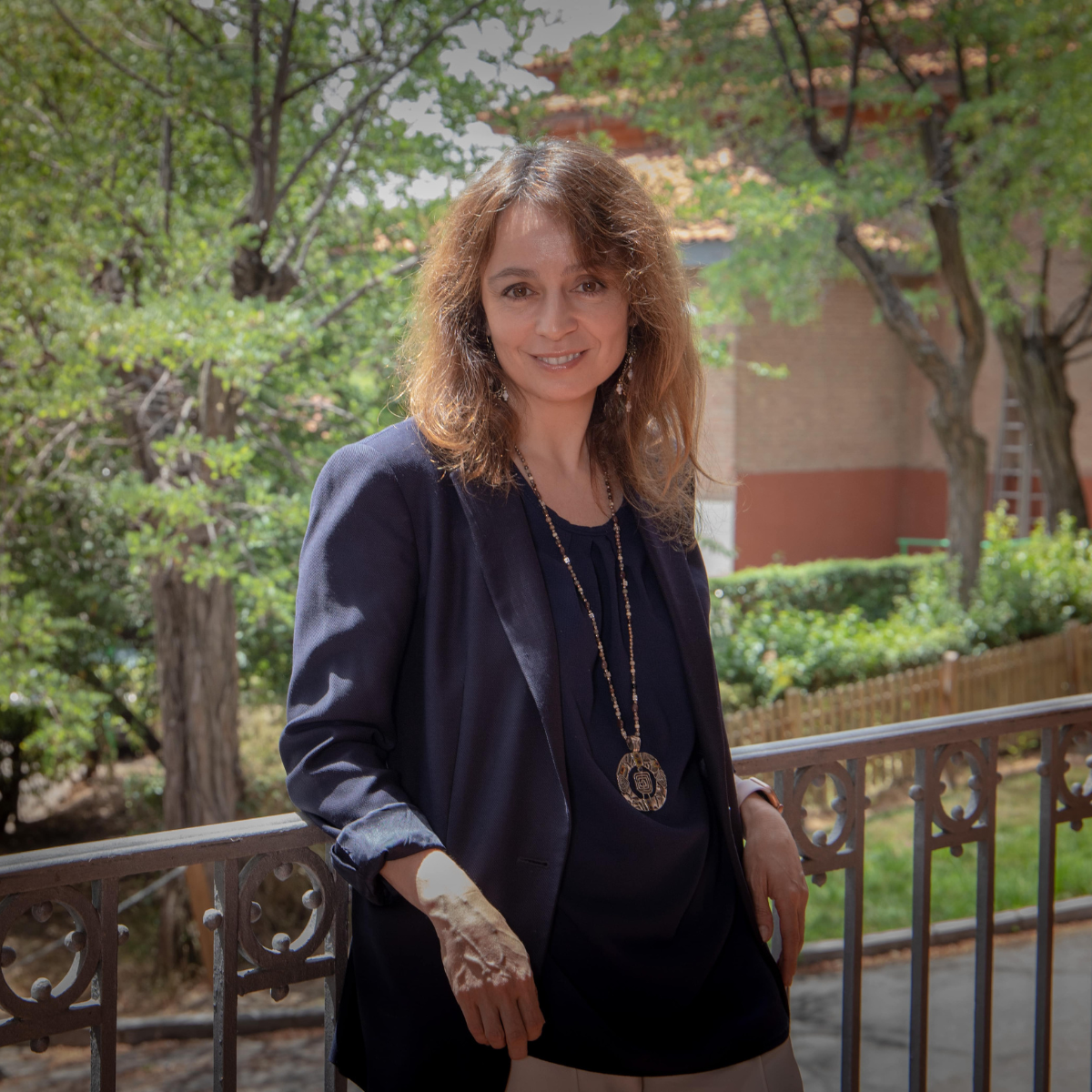

Ana Ramírez de Molina holds a PhD in Molecular Biology from the Autonomous University of Madrid and has dedicated her career to the relationship between metabolism, nutrition, and cancer. Dr. Ramírez de Molina has worked in the Translational Oncology Unit at La Paz Hospital, with extended stays at the Royal Marsden Hospital in London and the Memorial Sloan Kettering Cancer Center in New York. Following this, she became Director of R&D at TCD Pharma, where she developed novel, first-in-class antitumor drugs. In 2010, she joined IMDEA Food under the Ramón y Cajal program, where she established the Precision Nutrition in Cancer program. She has received several awards, including the John Kidney International Award and the March 8th Distinction from the Community of Madrid as an outstanding woman in science. She has led 8 national and 5 international projects, is co-inventor of 5 patents transferred to industry and promoter of two science-based start-up companies, in addition to having participated in more than 20 projects with companies and hospital networks in the Community of Madrid.



Juan Antonio Tébar Chumillas holds a degree in Aeronautical Engineering and an International MBA from the Polytechnic University of Madrid (UPM). He also completed postgraduate studies in Management Development at the IESE Business School, a program in Innovation and Leadership at MIT, a postgraduate program in Public Affairs Management at the Center for Innovation in Law - Comillas Pontifical University, and a Strategic Innovation program at ESADE Business School.
He began his professional career in 1998 as an intern at the Aircraft Chair of the Higher Technical School of Aeronautical Engineers at UPM, and later as a Design Engineer in the Military Transport Division of EADS (formerly CASA) for the A400M program. Since 2008, he has been a member of the CDTI staff, first as a Technician in the Framework Program Department, then as Head of the Framework Program Department, and subsequently as Head of the European Programs Division.
He is a member of the Spanish Delegation to the Strategic Committee of the Horizon Europe Programme, Spanish representative in the group of Member States of the European Institute of Innovation and Technology (EIT), member of the Spanish delegation to the Airbus Intergovernmental Group and member of the Board of Directors of ENSA (Equipos Nucleares, S.A.).

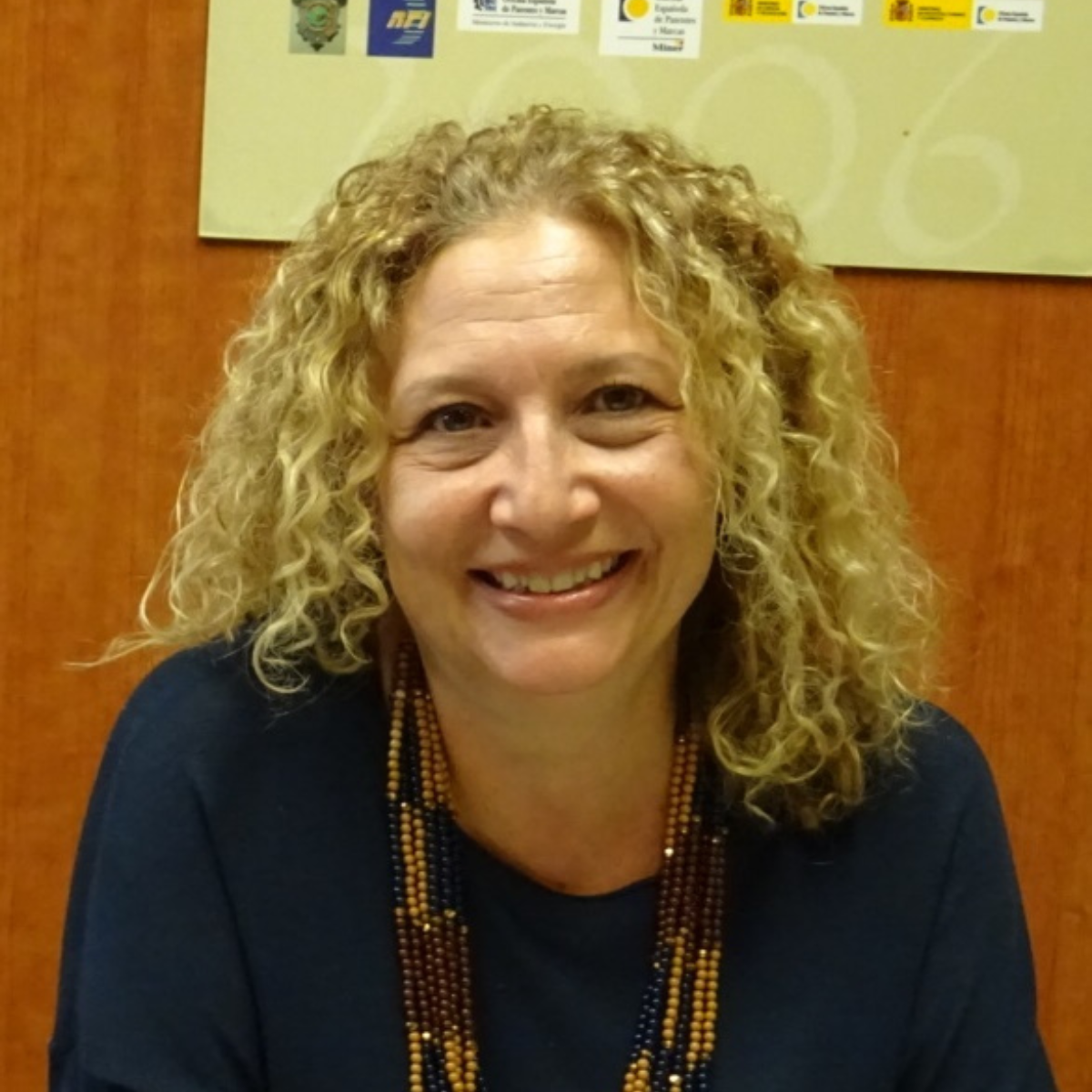

A graduate in Biological Sciences and with a diploma in Teacher Training from the Complutense University of Madrid (UCM), she began her professional career as a secondary school teacher. Since 2001, she has been a career civil servant at the Spanish Patent and Trademark Office (OEPM), where she worked as a Chemical Patent Examiner until 2008. From then until 2008, she worked in the Dissemination, Communication, and Business Relations Area of the Support Unit as Head of the Communication Service.
She is currently the Director of the Patents and Technological Information Department. She is a frequent speaker at conferences, seminars, and courses on Industrial Property, and collaborates on the development of learning modules in this field and on the management of strategic programs at the national and international levels. She actively participates in the Ibero-American Cooperation Program, serving as a member of the Technological Information Committee and participating in various committees of the European Patent Office. Regarding the dissemination of Industrial Property rights, he has participated in several publications on the new Patent Law 24/2015 and the evolution of knowledge of Industrial Property by SMEs, and in different radio and television programs and editorials about Industrial Property as a strategic tool for Entrepreneurs, Universities, Research Centers and Companies.

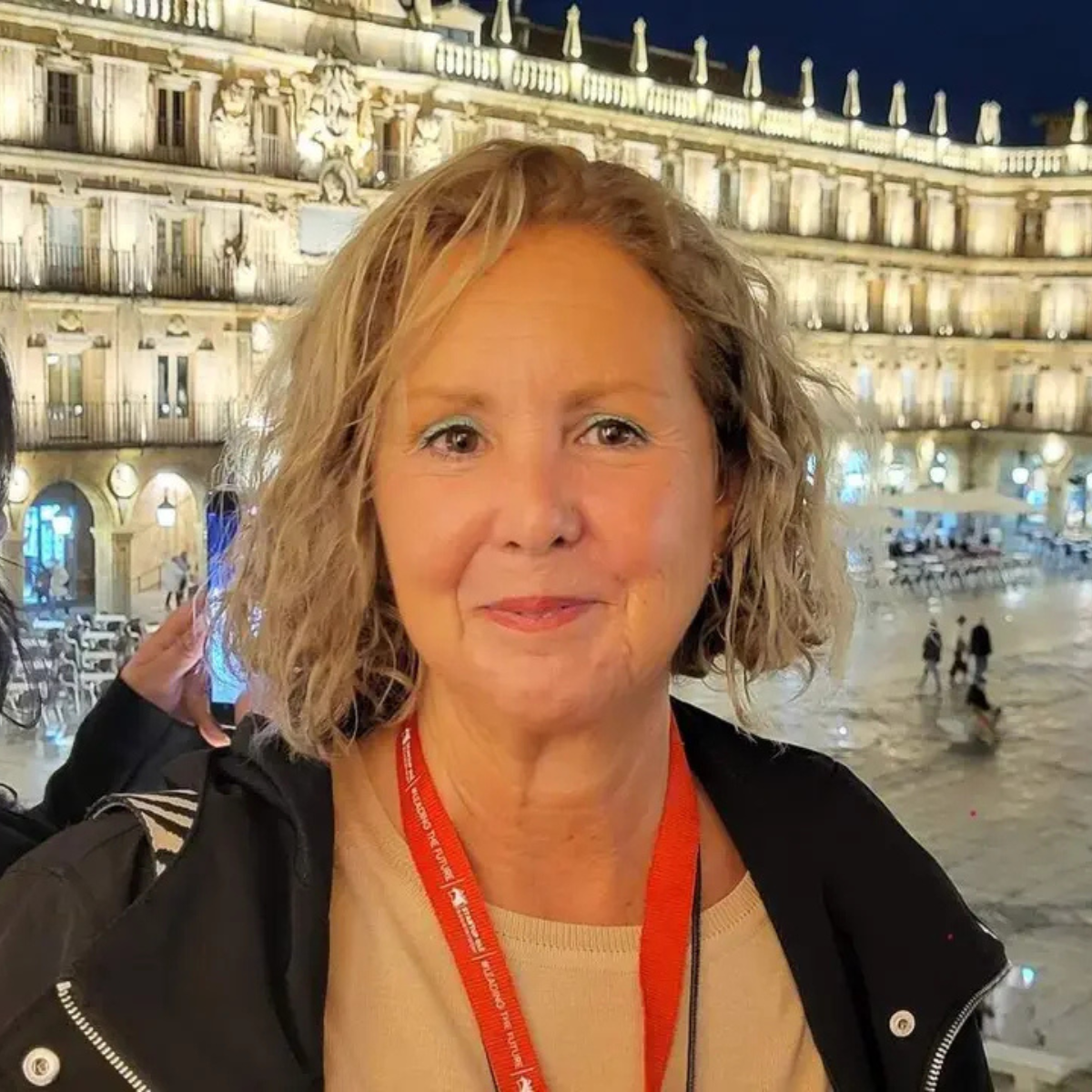

She holds a degree in Astrophysics from the Complutense University of Madrid (UCM) and a diploma in Nuclear Engineering from the Center for Energy, Environmental and Technological Research (CIEMAT). She has over 30 years of experience in the energy, space, and manufacturing sectors. She is currently the head of the institutional promotion and territorial cooperation department at the Centre for the Development of Industrial Technology (CDTI).

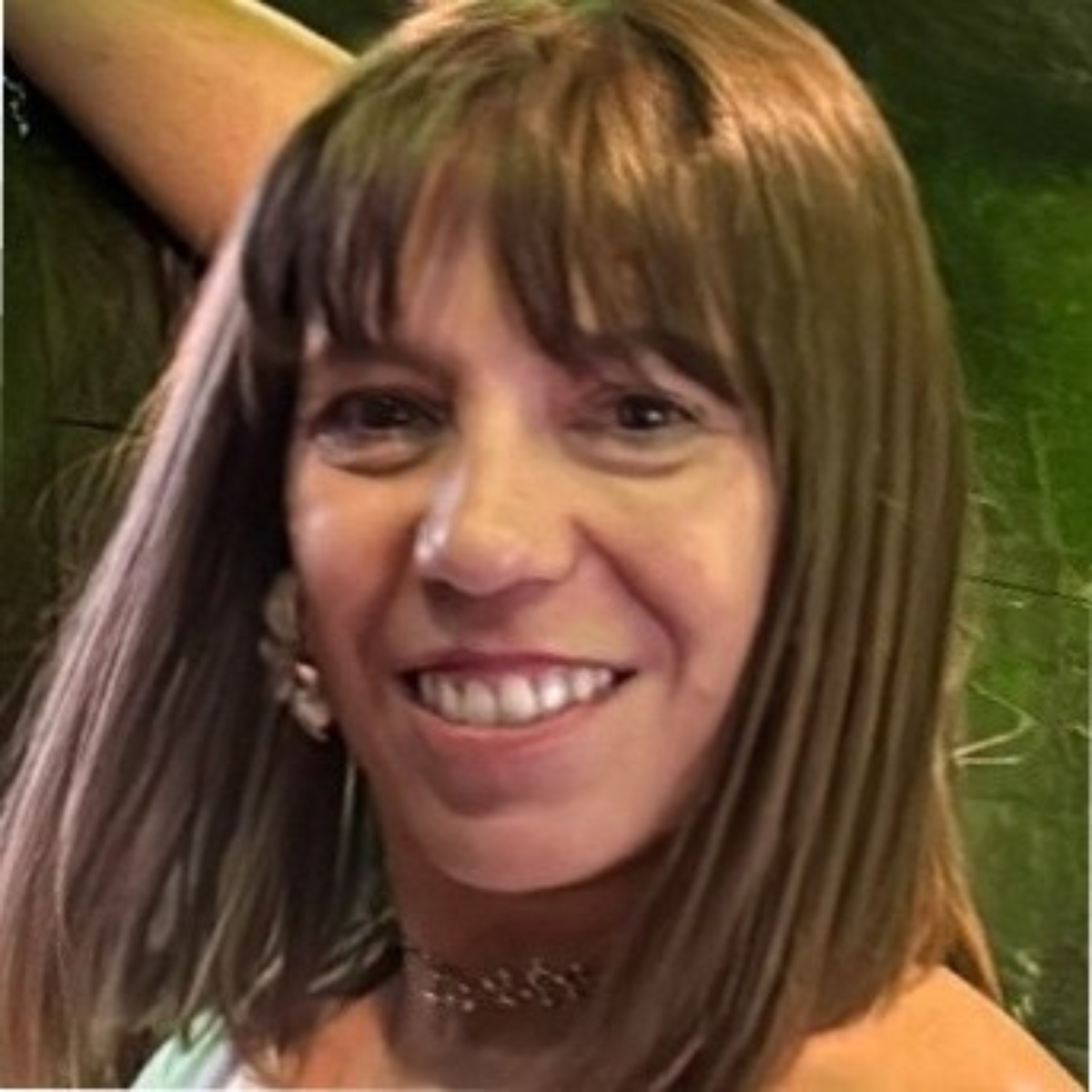

Born in Madrid, I focused my education in Biological Sciences. I started working as an intern even before I graduated from college, dedicating over 20 years to research that led me to ground-breaking discoveries in both plant and human virology and to 15 publications in peer-reviewed scientific journals. I have lived in Europe and the US and collaborated with people around the world in several multidisciplinary projects. Together with my extensive research experience I have business development, strategy, operations, project management, finance, marketing, human resources, entrepreneurship, technology transfer, IP protection, project valuation and legal issues training. In the recent years I have gained broad hands-on experience in business management and financing, drug development, regulatory approval, project preparation, consortium formation and project management. I have also been selected as both external expert and innovation expert to evaluate projects for the European Commission. I am as well a proficient scientific writer. I collaborate with Apadrina la ciencia and volunteer as a “cienciaterapeuta” for Cienciaterapia. For 5 years I have been an amateur Salsa dancer at the “Rueda con Ritmo” dance group.

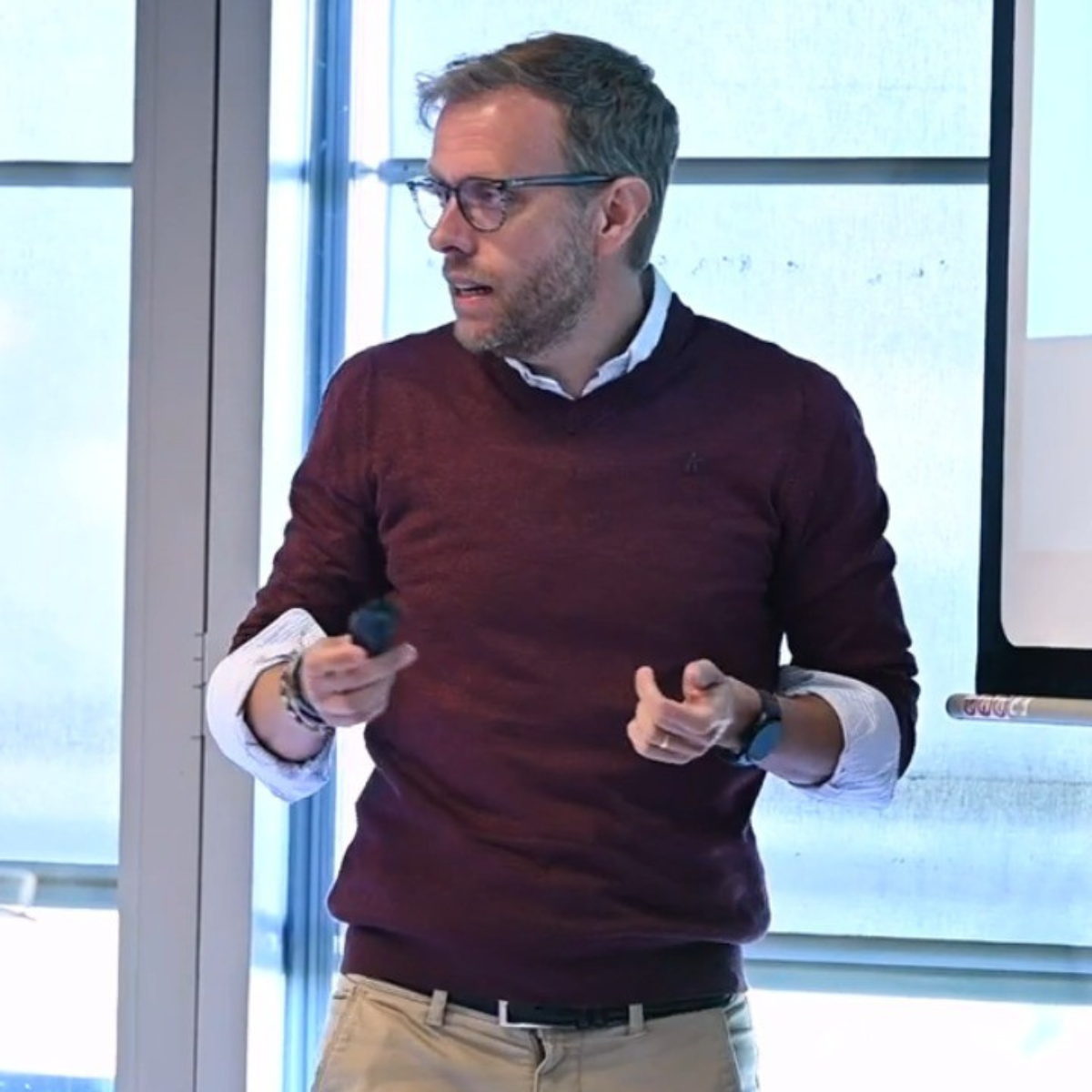

Engineer & MBA. Technology Transfer, Technology Adoption & Product Design.
Experienced Manager of international engineering projects, now running a innovative challenge as CEO in a deep tech Start-Up (VC owned).
Startup founder and curious researcher (Energy,Technology, Customer Insights & Decision Making).
Vocational teacher (Motivation, Lean Startup, Business Models, Innovation)

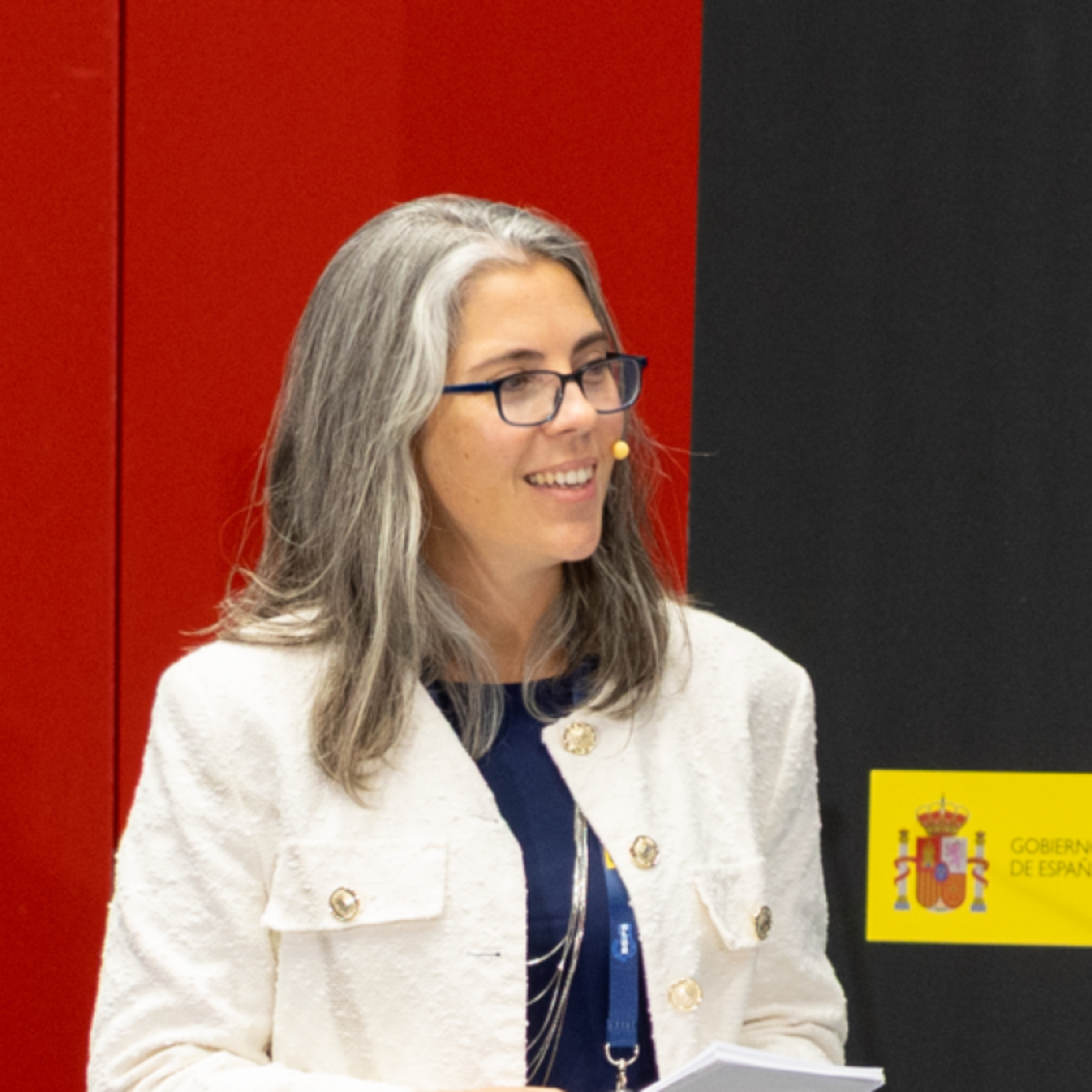
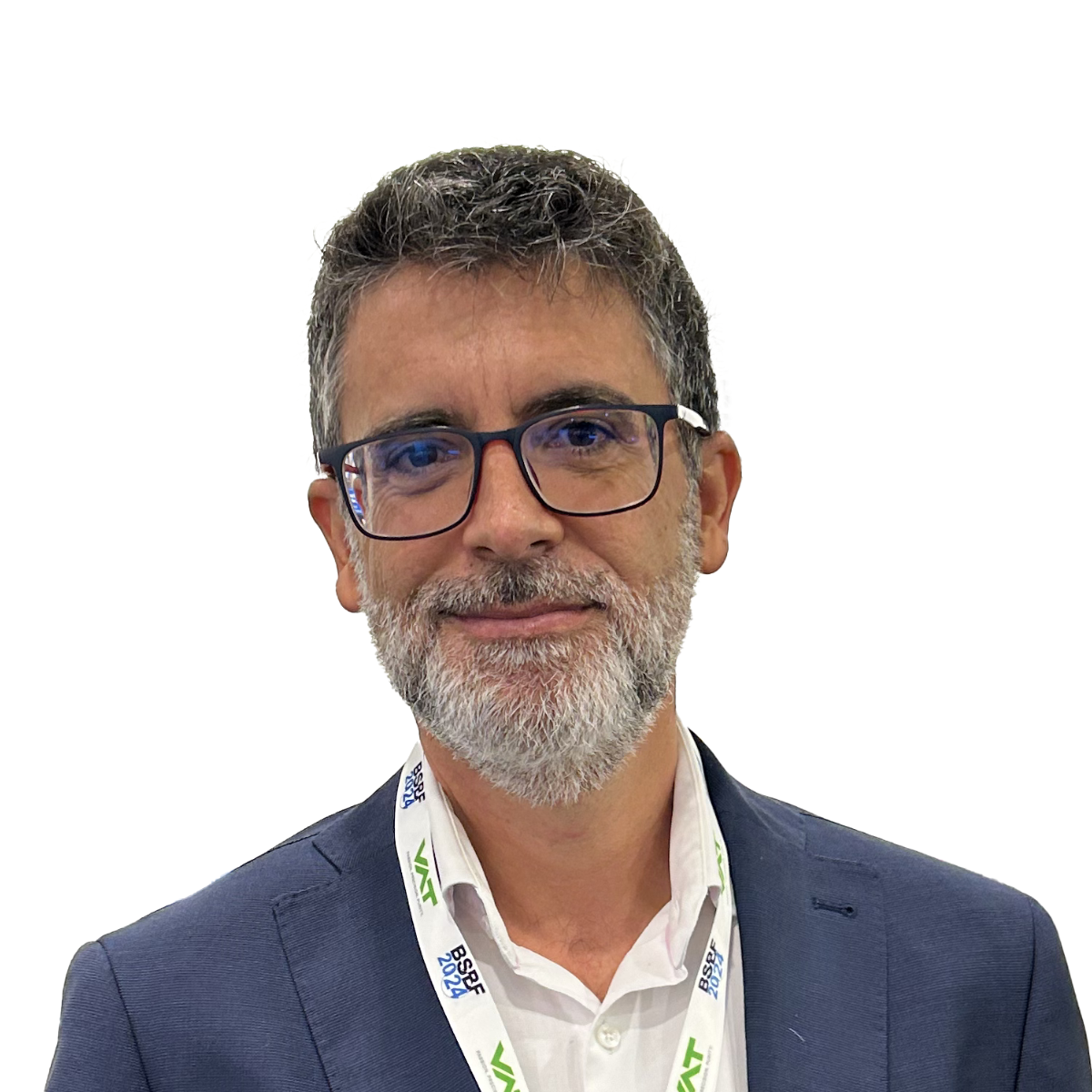

Javier Echavarri currently is the Spanish Industry Liaison Officer for the European Southern Observatory and the Square Kilometre Array. His background is in electrical and electronic engineering, with a masters degree in telecommunications engineering and a PhD in digital signal processing. His career evolved from R&D positions in academia and industry in UK and Spain, specialised in digital signal processing and embedded systems, to network engineering and pre/post sales support. Since 2008 he is with CDTI, the Spanish innovation agency.

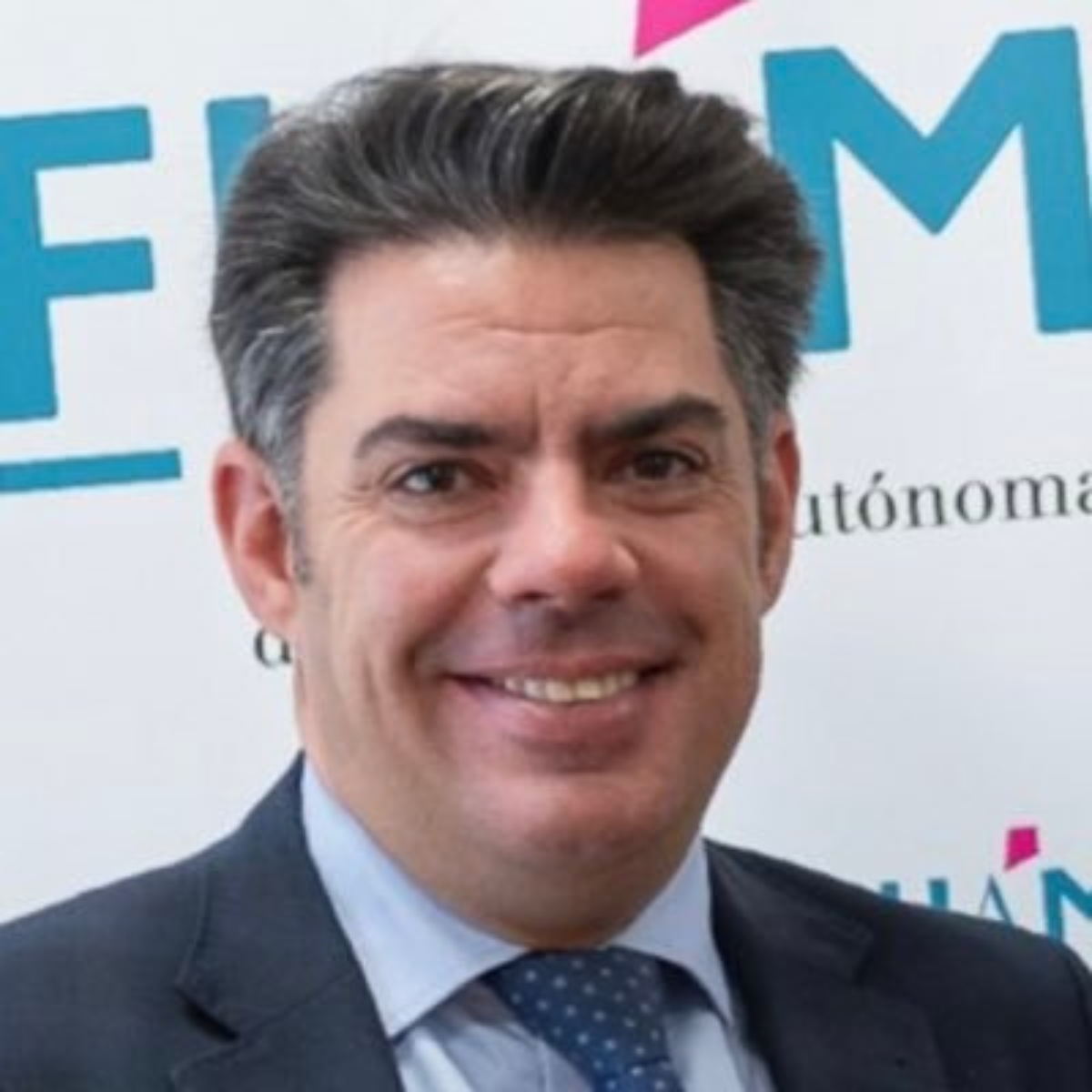

With a dual background in academia and industry, Dr. Rodríguez Batalla has extensive experience in innovation, research, and R&D management in both the public and private sectors. His professional career includes prominent roles as an advisor and consultant in the food, biotechnology, and biomedicine sectors. From 2015 to 2021 and 2023 to 2025, he served as Director General of the Foundation of the Autonomous University of Madrid.
In July 2021, Fidel Rodríguez Batalla was appointed Deputy Minister of Universities, Science, and Innovation, where he assumed the mission of implementing plans and strategies for the region's universities, research centers, and innovation ecosystem for the coming years.
Fidel Rodríguez Batalla holds a PhD in Engineering and Innovation Projects from the Polytechnic University of Valencia, a Bachelor's degree in Business Administration from the UNED (National University of Distance Education), and a degree in Agricultural Engineering from the Polytechnic University of Madrid.

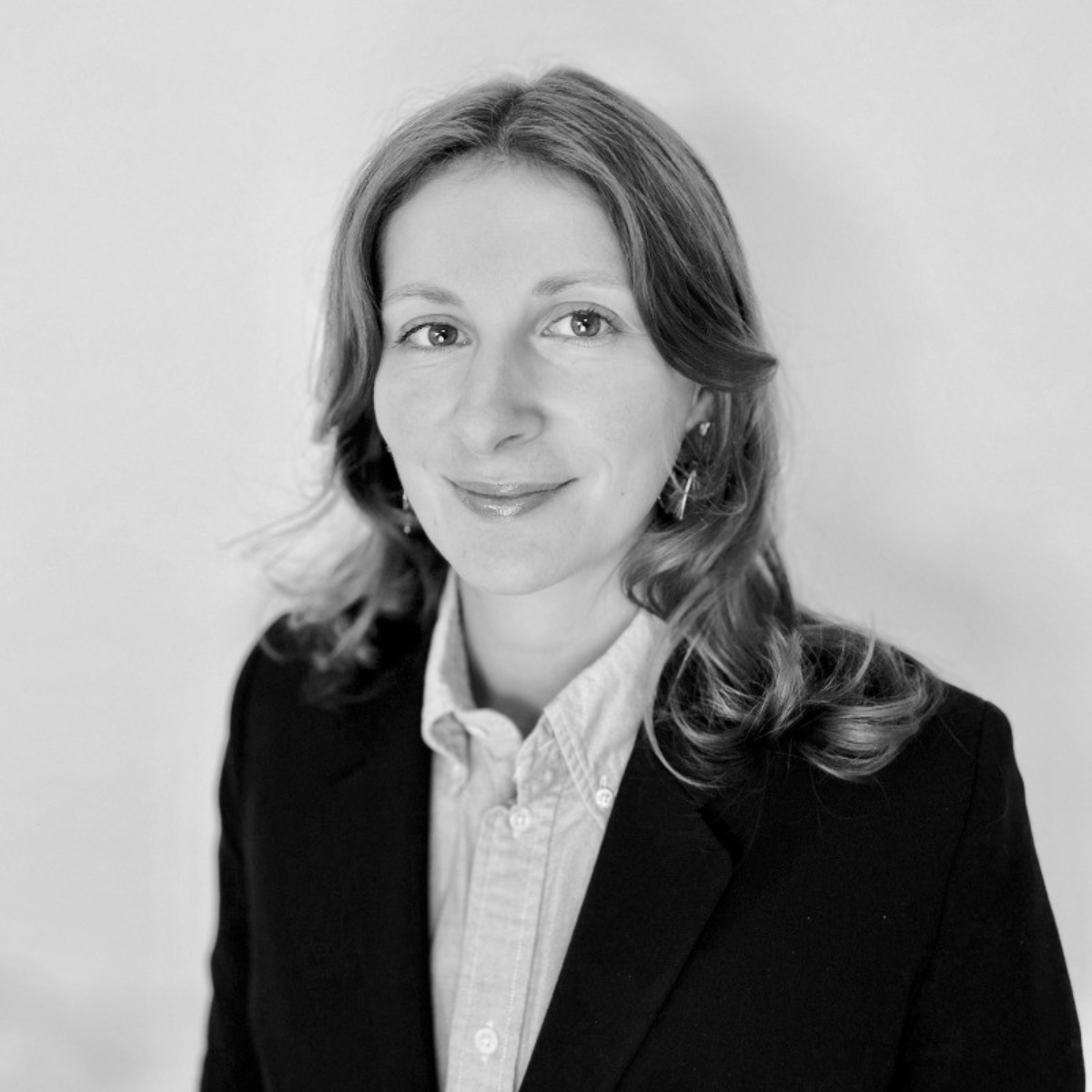
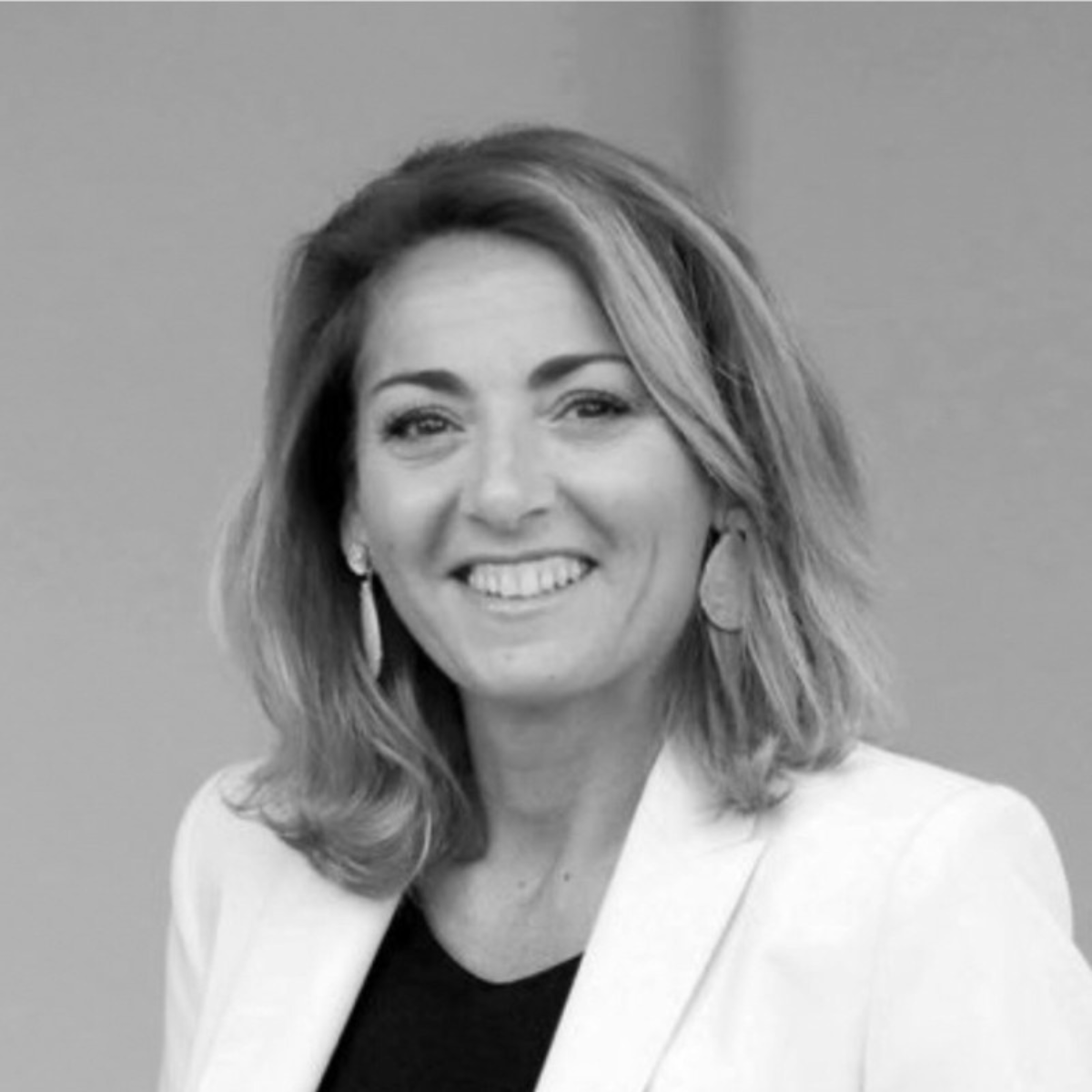

- Associate Professor at University of Barcelona (2007-2021)
- Director of HealthCare Programs en Biocat, BioRegion of Catalonia (11-2019 to 6-2020)
- HealthCare Director at CatSalut (Catalan Health Service) (1-2016 to 9-2019)
- General Director in Health Policy & Planning at Health Department- Catalan Government (7-2018 to 7-2019)
- Board member of Institut Català de la Salut (ICS), Servei d´Emergències Mèdiques (SEM), Institut Català d´Oncologia (ICO), Consorci Sanitari del Maresme (CSM), Corporali Salut Maresme-La Selva, Agencia de Qualitat i Avaluació Sanitaria (AQuAS) (between 2-2016 to 7-2019)
- CRC-GI Medical Oncologist at Hospital Clinic Barcelona (6-1998 to 1-2016)
- Coordinator for Oncology and Haematology (Area 5) at IDIBAPS Research Institute (1-2017 to 1-2016)
- CME Coordinator at Institut Clínic de Malalties Hemato-Oncològiques (ICMHO) at Hospital Clínic Barcelona (1-2007 to 1-2016)
- Research Fellow at Memorial Sloan Kettering Cancer Center NY (MSKCC) (Joan Massague´s Lab) (1-2004 to 1-2006)
- ESADE Executive Master in Healthcare Organizations (EMDOS) - Universitat Ramon Llull (2013-2014)
- ESADE Program in Public Private Partnership and Strategic Management - Universitat Ramon Llull (2015)
- Doctorate in Medicine (PhD) 2007
- Doctorate in Cell Biology (DEA) 2003
- Residency in Medical Oncology at Hospital Clinic Barcelona (1998-2002)
- Medical Doctor (MD) - Universitat de Barcelona (1991-1997)
- Co-founder and Board Member at International Arts in Health Foundation (2018-present)

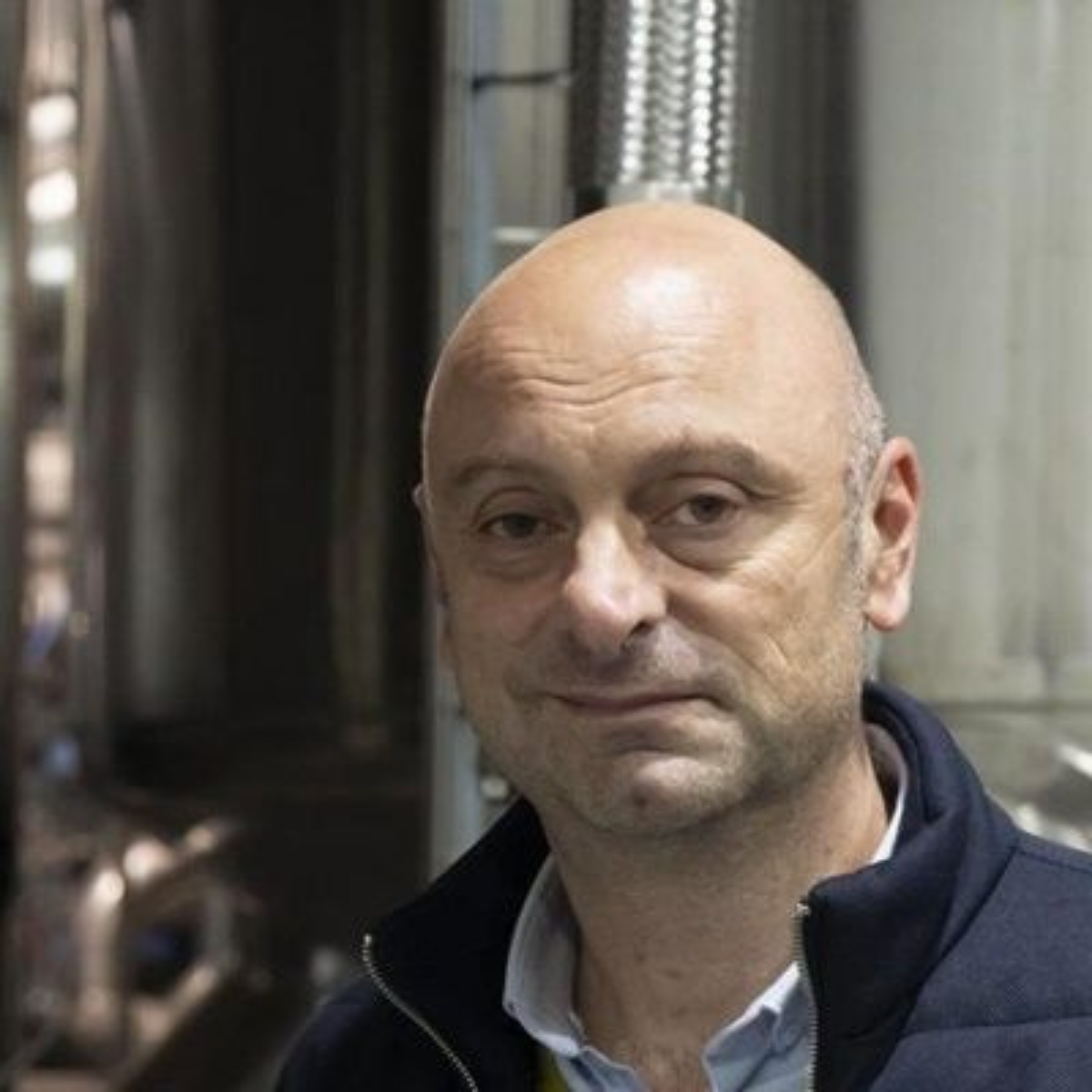

Director for Innovation at Fertinagro Biotech
PhD in Energy Efficiency and Renewable Energies from the University of Zaragoza.
He has participated in 35 international patent applications and has led more than 25 research projects.
He currently has three scientific publications on the mechanisms of action of biostimulants on plant physiology.



José Antonio Casas holds a degree in Chemical Sciences, specializing in Industrial Chemistry, and a PhD in Chemical Engineering. His research has focused on the development of catalytic processes for application to processes of environmental interest. He is the author of 230 articles, with an h-index of 56, has published 17 research patents, 5 of which are currently in use, and has supervised 13 doctoral theses. He founded a knowledge-based company, Captoplastic. He has been a Visiting Professor at Penn State, Princeton, and Cartagena de Indias Universities. He has managed several research programs within the National Plan. He is a member of the National Water Council.

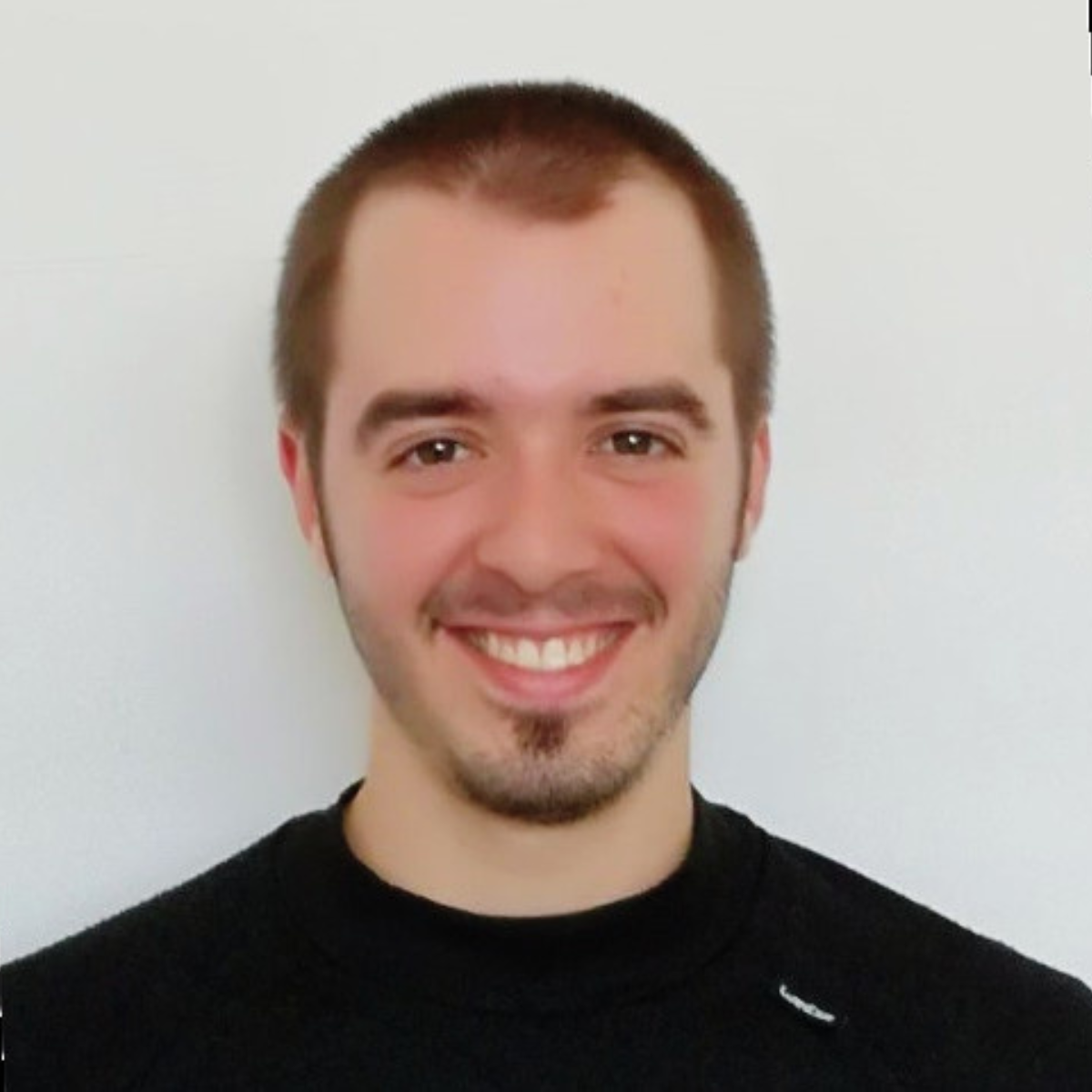
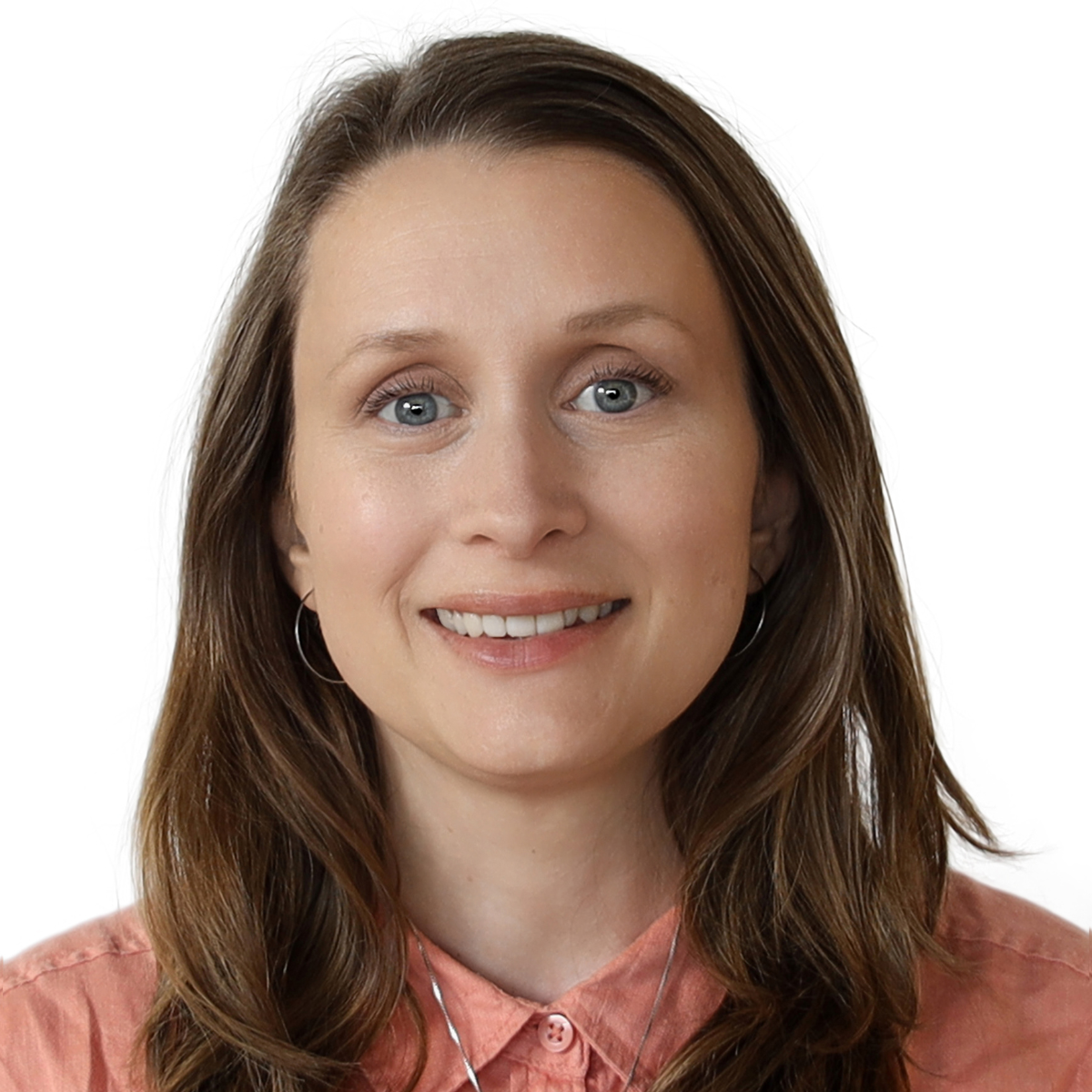

I work as an Innovation ventures leader for Inter IKEA, we are a CVC, strategic investor and franchisor connected to the entire value chain of IKEA, until the franchisee takes over and retail operation starts. So we invest in startups within areas such as: New materials and processes, a circular value chain, reforming the customer experience and improving life at home.
My background is within engineering and sustainability; I have worked over 15 years in the IKEA value chain as Sustainability manager and project leader. Since 3 years back I work in the Innovation department with ventures. I am also responsible for our academia collaborations, especially when they are connected to research.

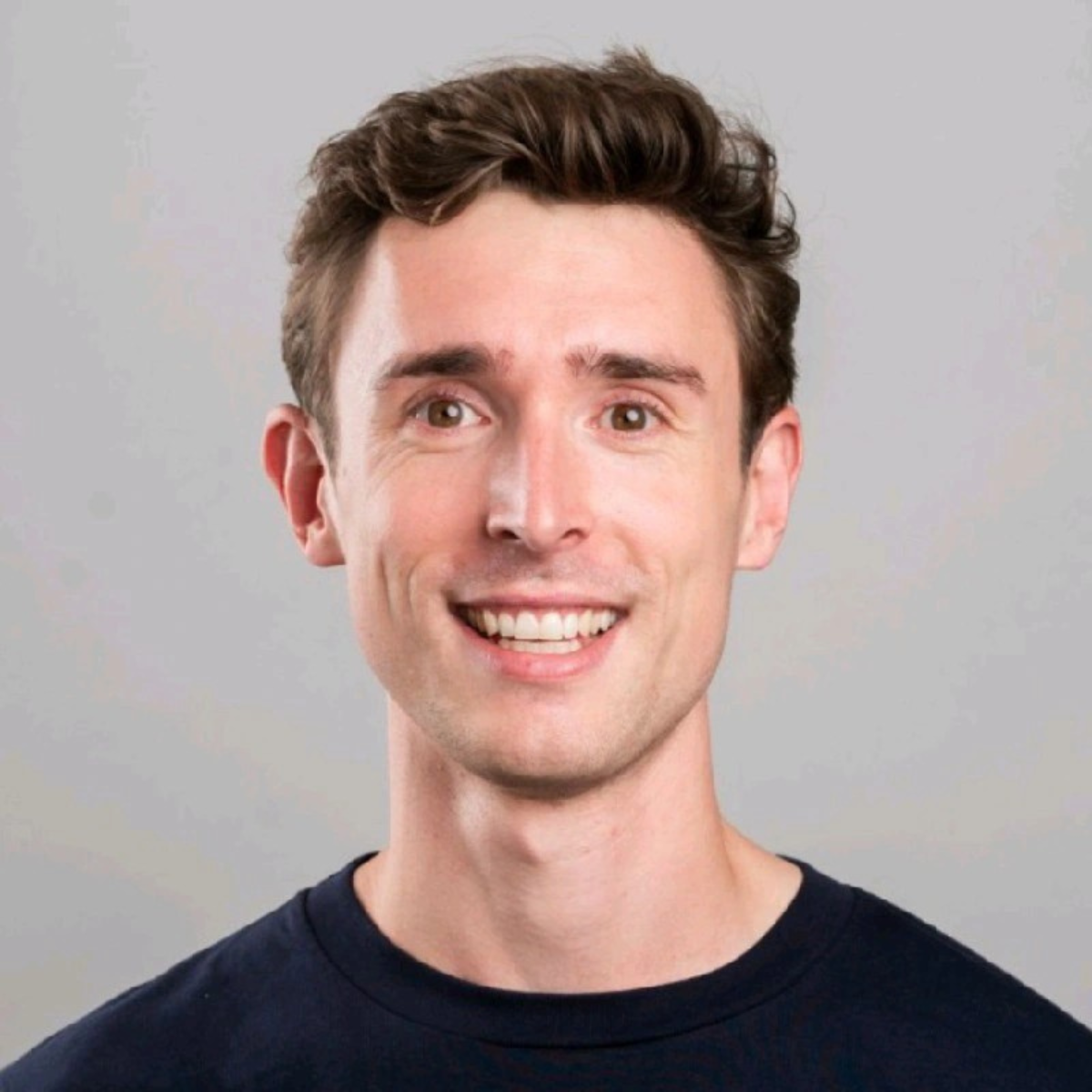

Max Werny is an investor and PhD chemist at Zero Carbon, a leading deep tech climate fund backing visionary founders across Europe with pre-seed and seed investments. Based in Berlin, he leads Zero Carbon's activities in the DACH region. Before joining Zero Carbon, Max worked at Extantia Capital, sourcing investments in metal recovery, biomining, and direct air capture. He brings two years of chemical industry experience, having led projects on industrial catalyst development, CO2 valorisation, as well as hydrogen generation and purification.

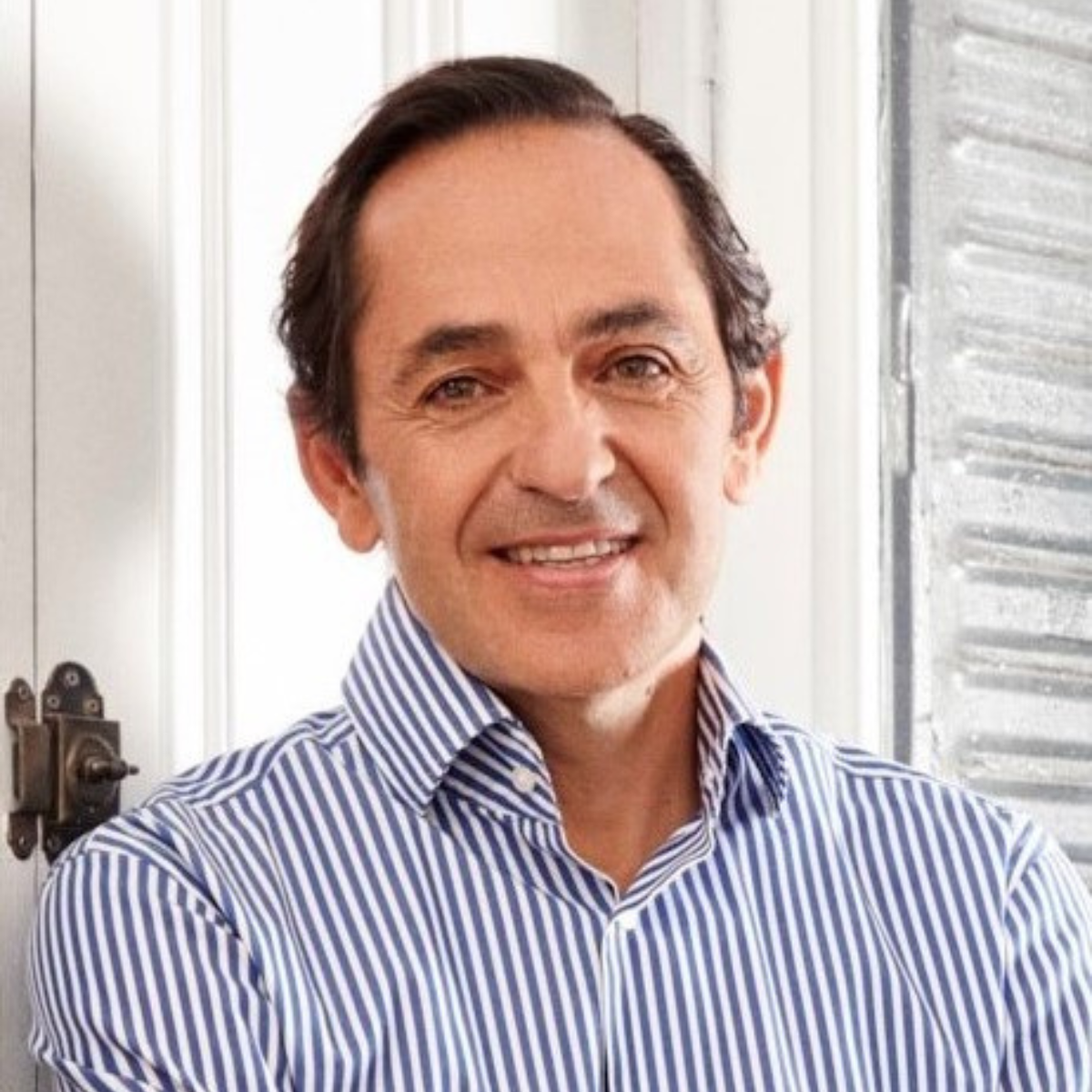

Roberto has more than 20 years of experience in Venture Capital’s different phases: Start-Up, Growth, Buyout and restructuring. He worked for 9 years at 3i Group PLC. From 1994 to 1995 as an investment executive in Nottingham, U.K. where he conceived, analyzed and negotiated companies in the UK to invest in their shareholding, being involved in 3 MBO / MBI operations with an investment of around 10M £.
From 1995 to 1999 he worked as Investment Director in Madrid, 95M € were invested in 14 companies, with full responsibility until disinvestment and achieving an Internal Rate of Return of more than 20%. He carried out investments in MBOs, MBIs, Growth Capital, Private Placings and Start ups.
From 1999 to 2002 as Investment Director in Madrid, he was responsible for the Technology Team in Spain and was also a member of the 3i European Strategic Committee. Roberto managed an investment portfolio of 8 investees with an investment cost of € 70M and was also a member of the Board of Directors of six of these companies.
From 2002 to 2003 as Director in Stockholm, he was responsible for the Big Transaction team (Buy-Outs). He took part in the 3i integration of Atle (a Swedish Private Equity company) acquired in 2002, coordinating the 3i position in Sweden and implementing the 3i European Investment Policy. He took part in the investment of the Swedish company Gant. During his last 4 years at 3i he was member of the evaluation committee of new executives of 3i. Also a member of the Board of Directors of Ikusi and SIA.
He has also worked as Director of Vista Capital of Expansión S.A. (Banco Santander group) in Madrid from 2003 to 2010. He was a member of the new team responsible for the relaunch of Vista in the Private Equity market. During this period, Vista invested in 5 companies, directly taking part in 3 operations: Itevelesa, Famosa, and Indas. At current market values, these investments would crystallize returns above 20%. His first investment was in May 2011 with the acquisition of Grupo Playa Sol Hotels, being a member of its Board of Directors.
Roberto joined BeAble Capital in 2016.

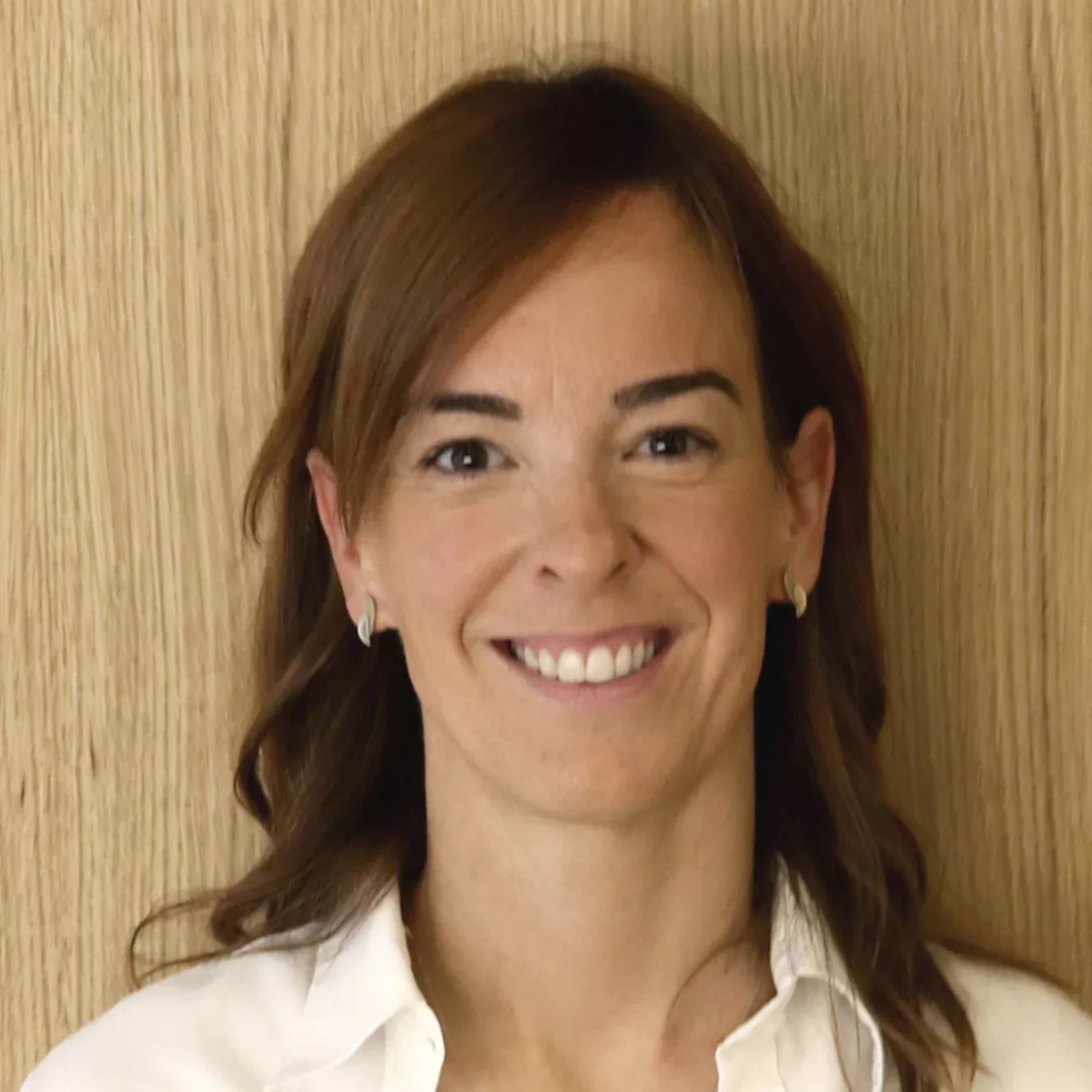

Eluska is Chief Investment Officer at Kutxa Fundazioa, a non-profit foundation dedicated to the progress and welfare of Gipuzkoa.
Before joining Kutxa Fundazioa in 2020, she was Head of the R&D Management Area and Technology Strategy Manager at CAF.
In addition to her role on the Board of VIVEbiotech, Eluska has held board seats at companies including Irisbond, Ezarri, Arastortz and Macarbox.
She holds a master’s degree in Telecommunications Engineering from the University of the Basque Country and an Executive MBA from Deusto Business School.



Dr. Carmen Palacios-Berraquero is the Founder and CEO of Nu Quantum, the category creator and leader in distributed quantum computing technology. Its Entanglement Fabric approach is a modular, interoperable networking layer that interconnects quantum processors into a more powerful distributed quantum computer. Through its technological advances and collaboration with industry partners, Nu Quantum is accelerating the path to fault tolerance to unlock breakthroughs and transform industries worldwide.

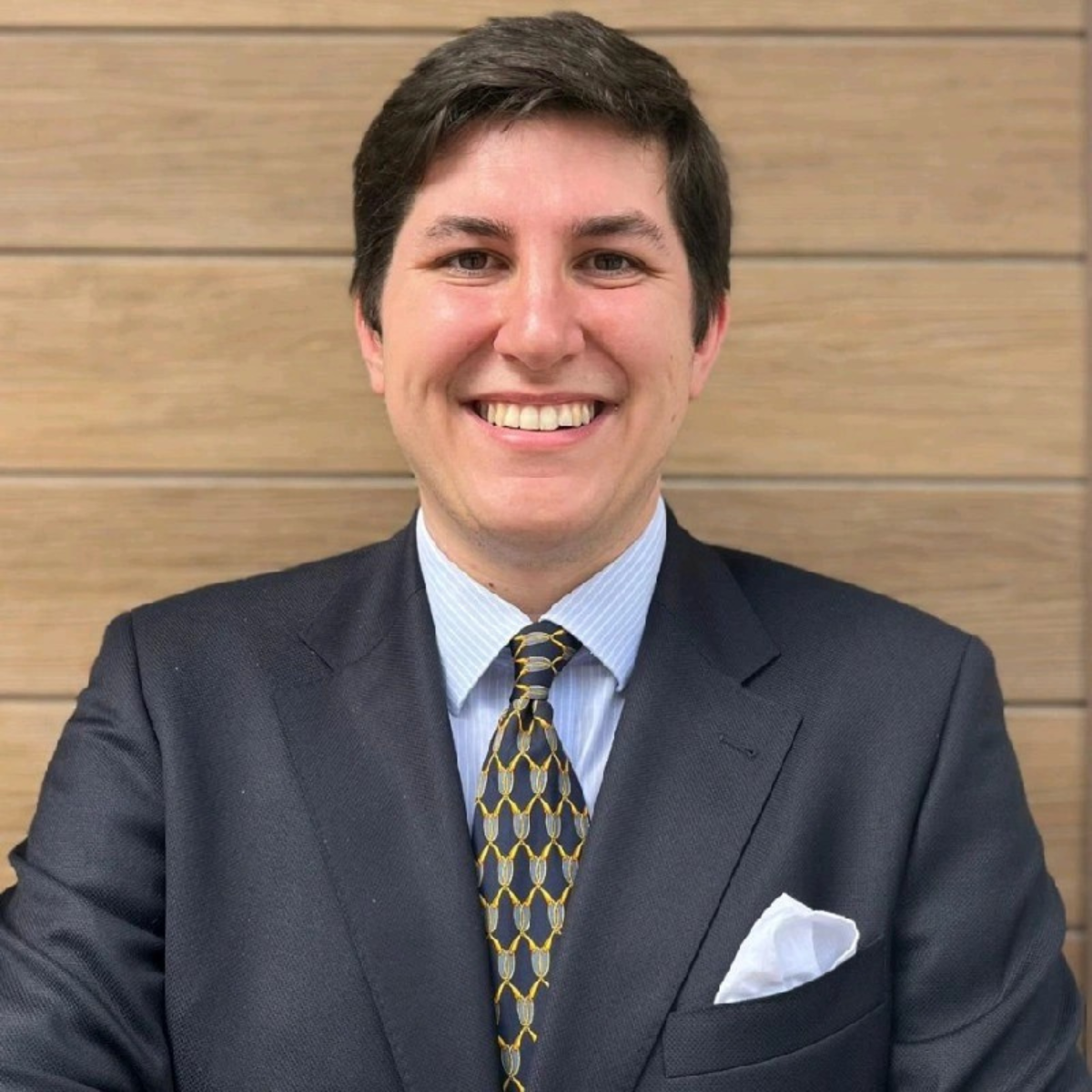

Passionate about the intersection of science and law, I combine my background in Biotechnology with my current studies in Law to offer a unique and multidisciplinary perspective.
Since 2023, I have worked at the Spanish Patent and Trademark Office (OEPM) as a Patent Examiner, where I am gaining solid experience in industrial property, technical and legal analysis, and the rigorous evaluation of inventions and technologies.
My time at the OEPM has allowed me to develop key skills such as critical thinking, attention to detail, and the ability to solve complex problems, always with an analytical and precise approach. This experience strengthens my commitment to innovation and the legal protection of disruptive technologies.
I am excited to continue growing professionally and contributing value in environments where science and law converge.

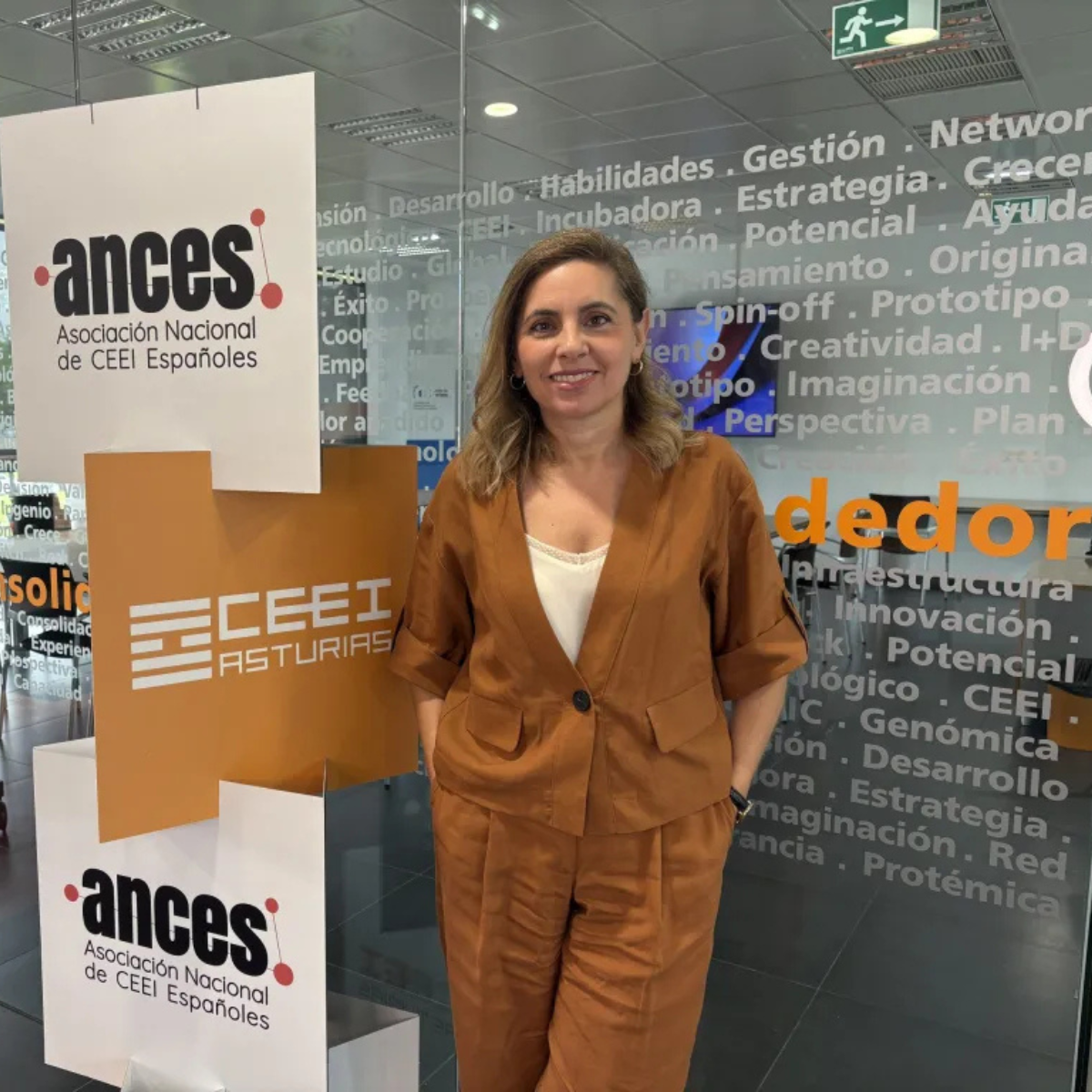

Director of Business Innovation Centre Asturias, leading support initiatives for startups and tech-based companies, including business modelling and validation, acceleration programmes, open innovation, investment readiness, and access to finance. Very involved in European strategies as member of the Board of EBN- European association of business innovation centres- and expert evaluator of European Innovation Council. President of ANCES, the Spanish chapter of EBN.



Virginia holds a degree in Geology and a PhD in Mineralogy and Mineral Deposits from the Complutense University of Madrid and has 14 years of experience in the energy sector internationally.
Since joining Repsol in 2010 as a researcher in its Technology Lab, she has been involved in the experimental areas of Exploration and Production. She has participated in numerous R&D projects related to the characterization of subsurface rocks associated with Repsol's wells.
Since 2021, Virginia has been part of the Open Innovation team, whose mission is to connect the innovation developed by Repsol scientists with startups, universities, research centers, and other corporations in the search for innovative solutions that will accelerate Repsol's internal projects in its decarbonization efforts.
Virginia has participated as a mentor in several networks and acceleration programs and also collaborates with the All4Zero industrial innovation hub, created by ArcelorMittal, Holcim Spain, Iberia, and Repsol. All4Zero aims to promote the development of disruptive technologies for decarbonization and the circular economy, accelerating the transformation of industry toward more sustainable models.
Virginia describes herself as passionate about open innovation and a firm believer that sharing and connecting with others is the best and fastest way to find new solutions to address challenges.

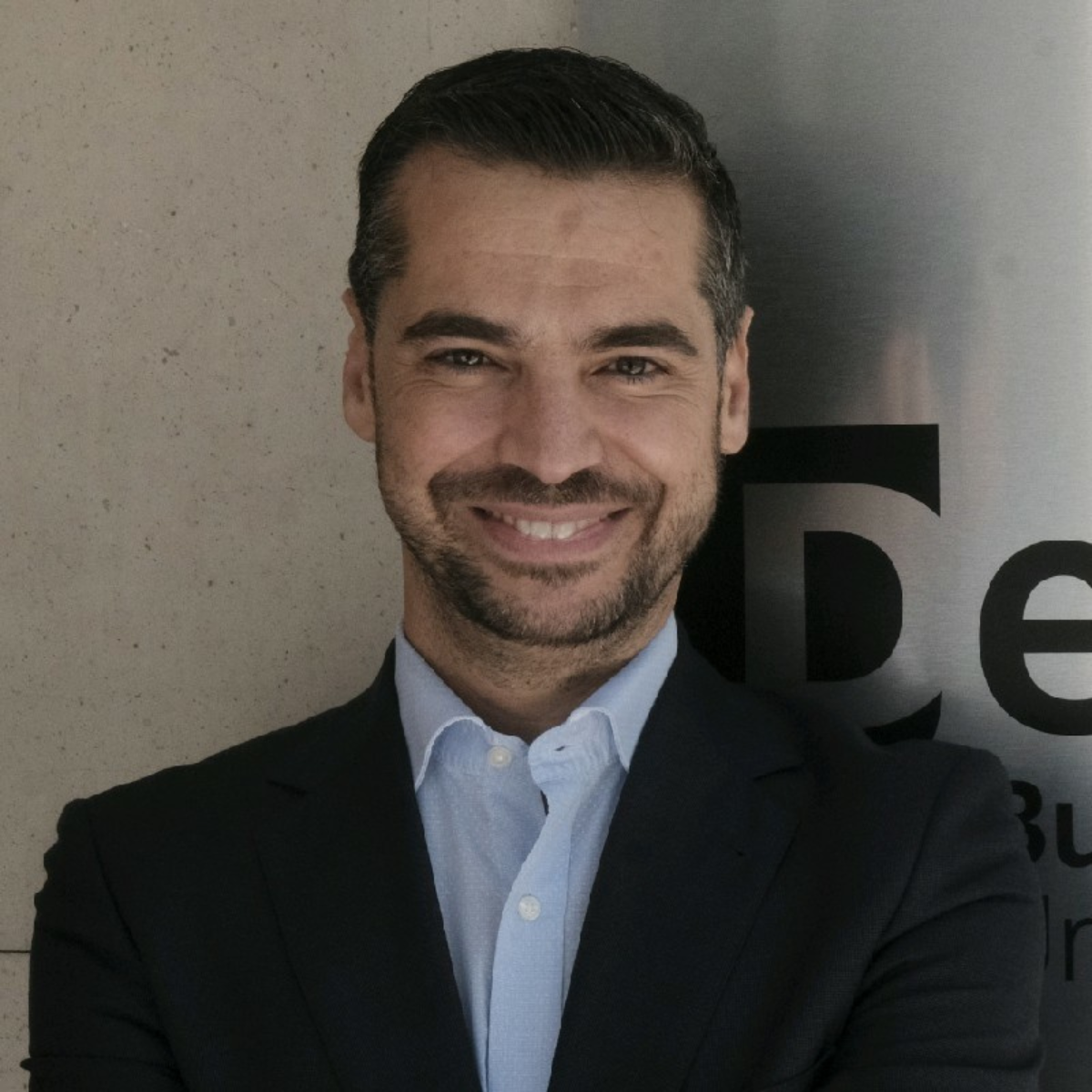

Entrepreneurship and openinnovation professional, startups mentor, usual suspect at Spanish Entrepreneurial Ecosystem, and always working in multinational and innovative environments. After leading several iniatives for entrepreneurs and startups I'm currently the Open Innovation and Entrepreneurship Director within a Spanish multinational in the Oil&Gas Sector, Enagás.
In the Executive Educational area, I´m also the Director of the reference program regarding Corporate Entrepreneurship, the "PLEI - Leadership Programme in Entrepreneurship and Innovation" by Deusto Business School and I´m also lecturer at EAE Business School and ISEMCO.
As executive, I have the PDD at IESE Business School and also PLCE at Deusto Business School.



Since 2018, innovation has been a part of my life, and I haven't wanted to leave it. I completed a Master's degree in Innovation Management from UNIR, a Scrum Master certification, and a Master's degree in Data Analytics and Data Science to continue growing and contributing to this path.

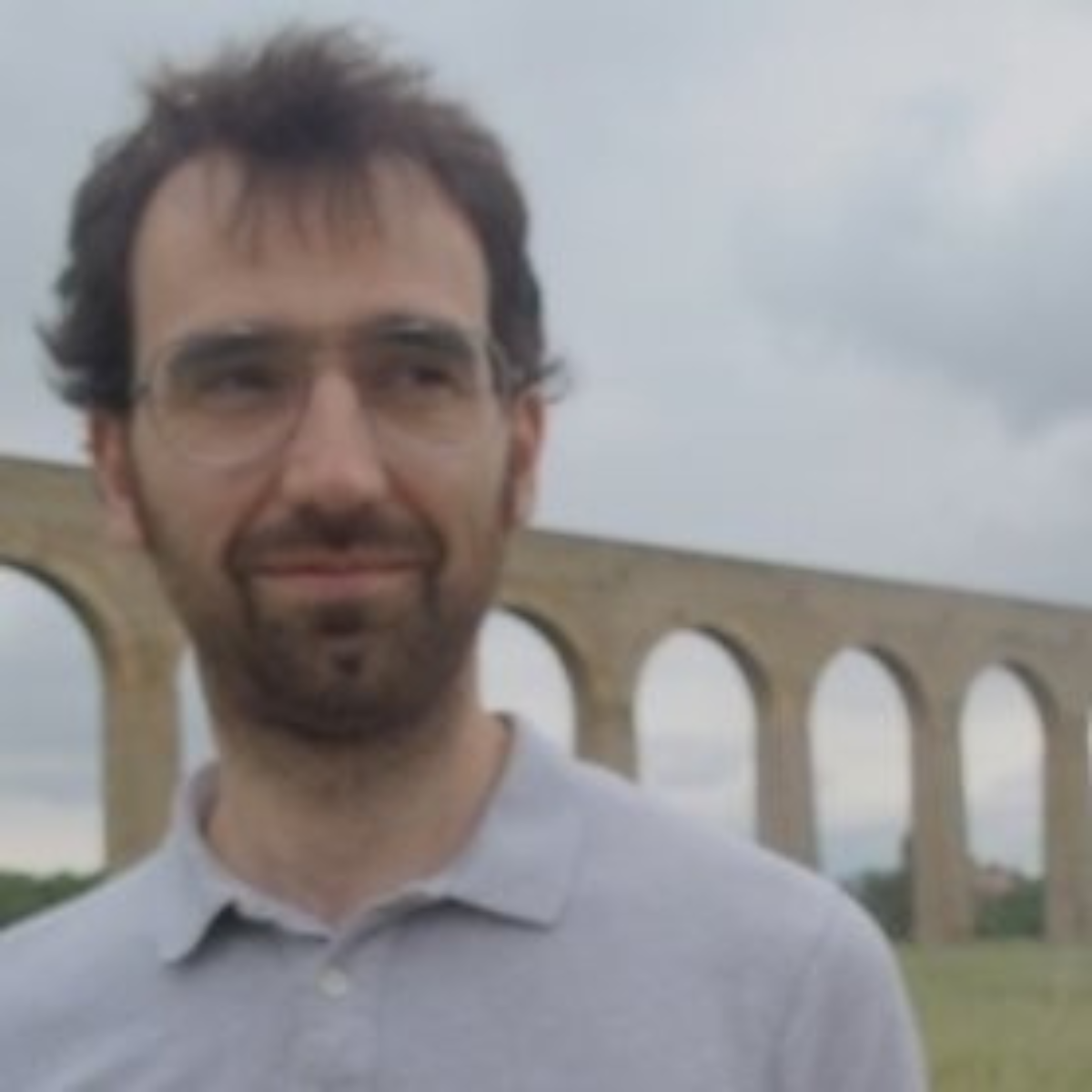

Experienced Agronomic Engineer with a demonstrated history of working in the higher education industry. Skilled in aerial imagery, drone development, agriculture, ArcGIS, creative entrepreneurship, and environmental awareness. Graduated from Public University of Navarra. Focused in new technologies such as autonomous autopilots for Rovers and Drones.

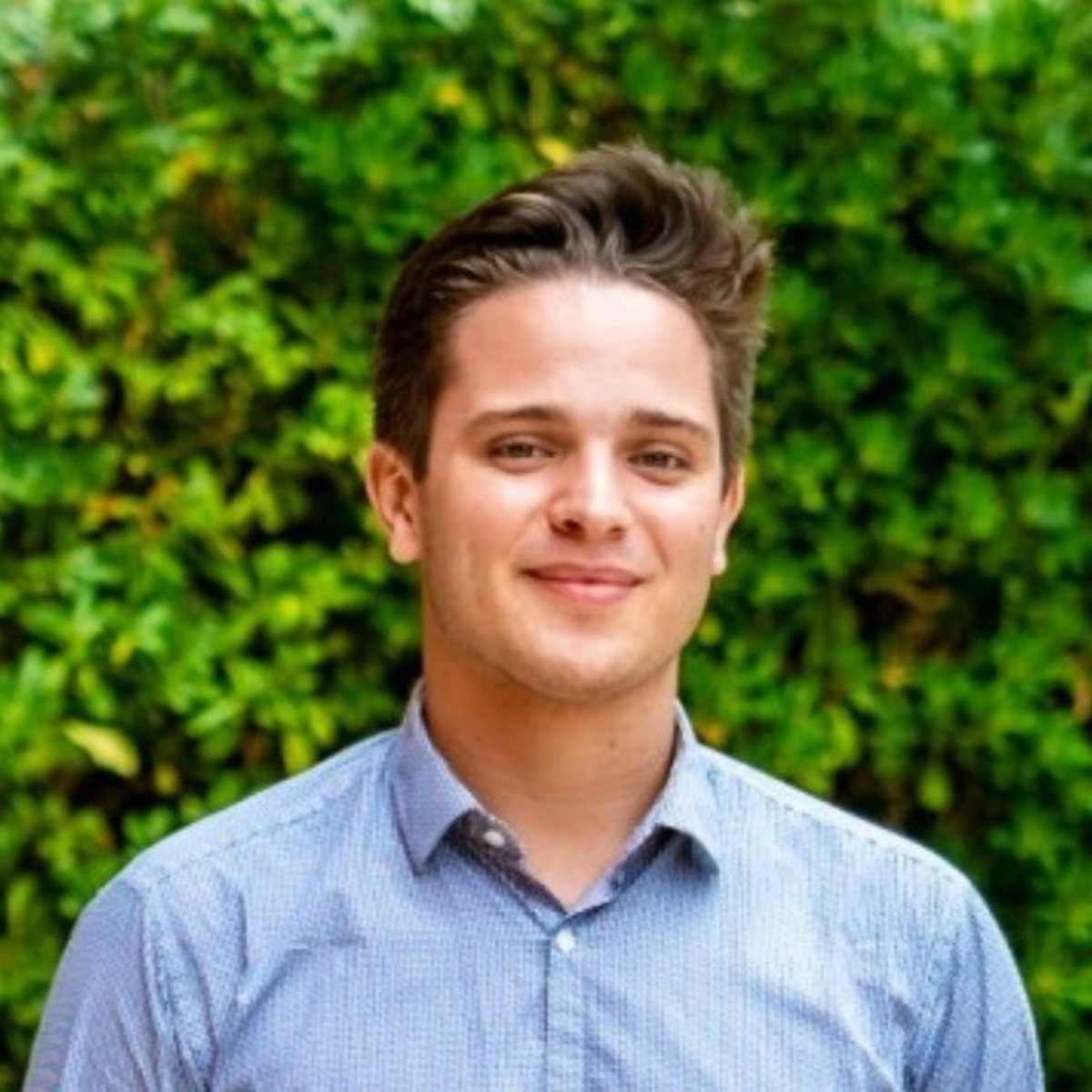

Titouan received a Bachelor of Engineering in honours electrical engineering from McGill University in 2021, with a concentration in power systems and control, and a Msc. from the EIT Innoenergy masters program in smart electrical networks and systems engineering (SENSE) between KTH University and Universitat Politecnica de Catalunya in 2023. During his time at McGill, he was a member of the McGill formula electric design team. He also worked in internships with SmartD in 2019 and as an undergraduate researcher at McGill in 2020. He joined eRoots in January 2023 first as a thesis intern, completing a project related to control development and sizing of a Unified Power Quality Conditioner, and then as a power systems engineer and business developer in September 2023. With eRoots, he has been involved in a long term consulting project with GE Vernova as a grid integration engineer. He is now leading the business development area of eRoots. His areas of interest are control systems and integration of renewables in the power grid.

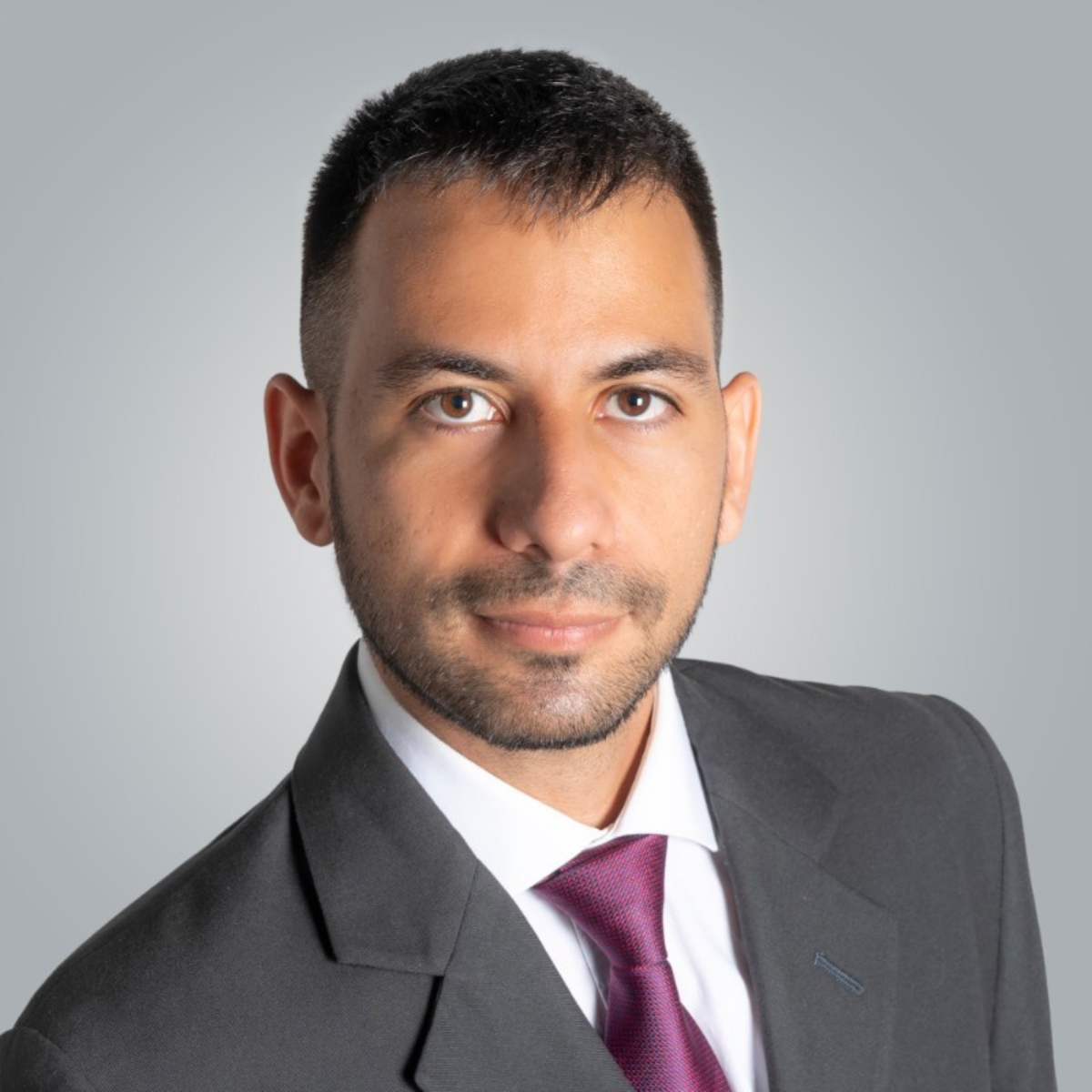

Currently working in the Computational Heterogeneous Catalysis group, lead by Prof. Núria López. I focus on biomass upgrade and CO2 reduction as part of international collaborations such as A-LEAF and FlowPhotoChem. User of MareNostrum 4. Enthusiast of the tremendous potential of automation, AI, statistics, and mathematical modelling to tackle the big challenges of the 21st century.

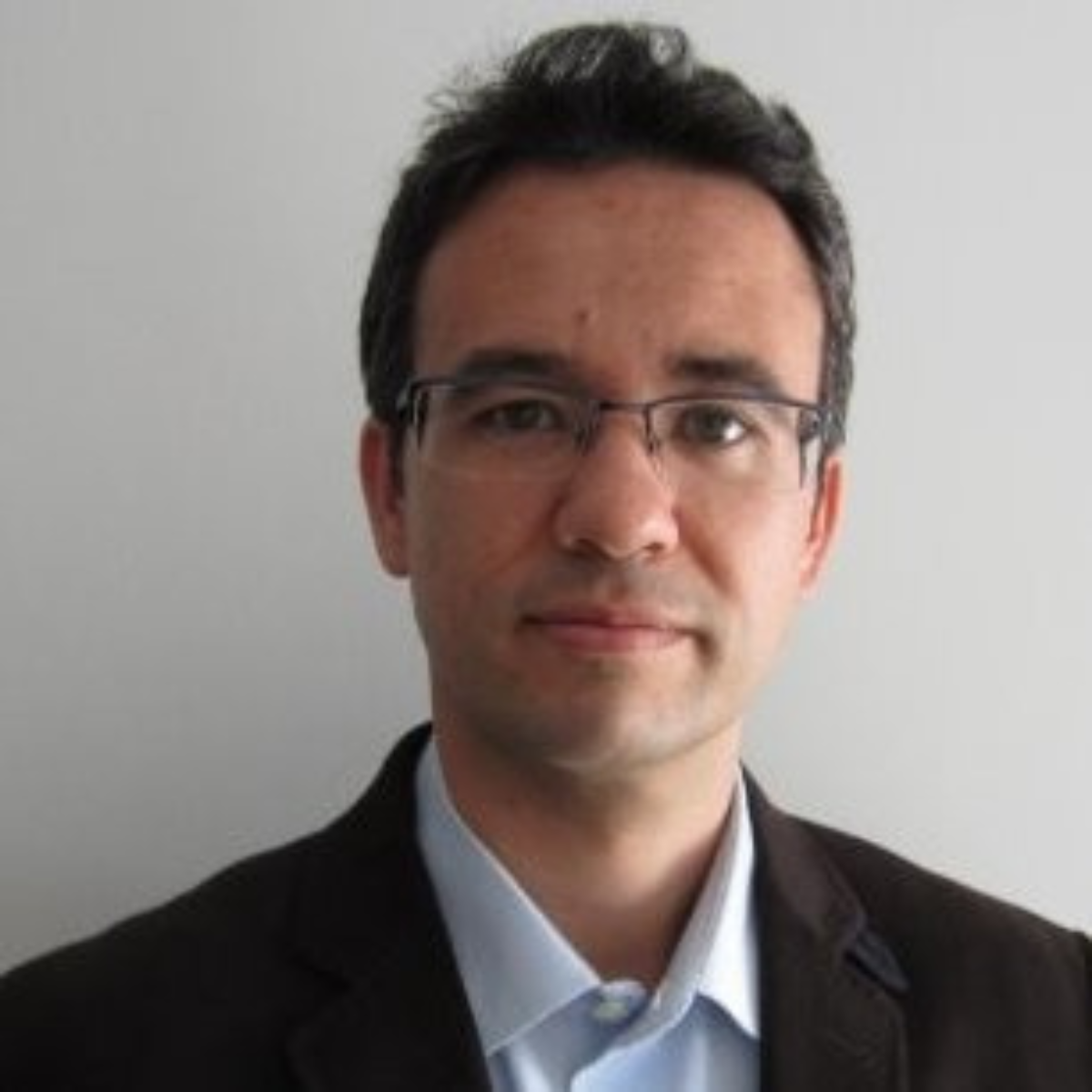

Chemical Engineer with 14 years of experience in R&D project managament, design and optimization of chemical processes. During this time I have led the management and coordination of projects based in circular economy and waste valorization.

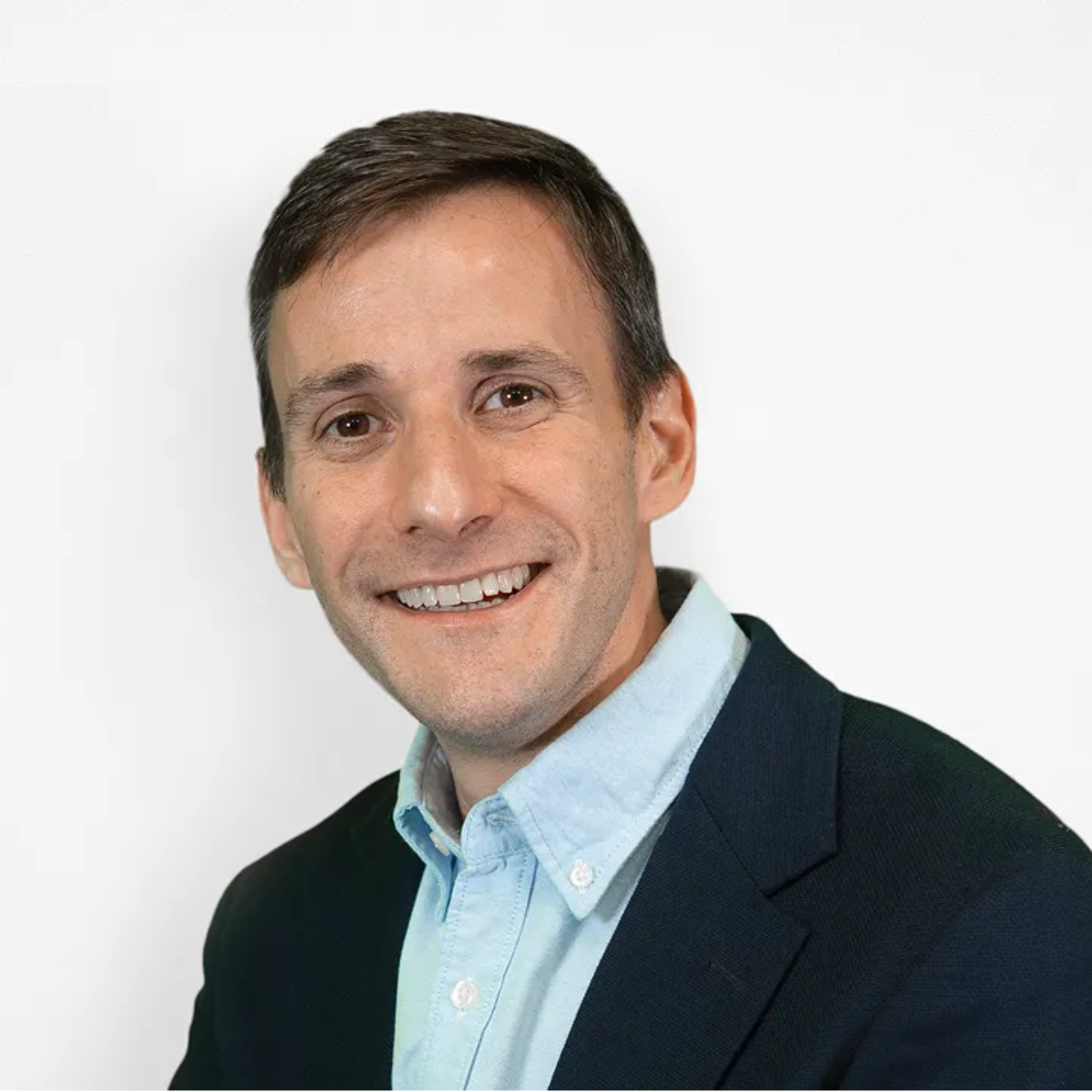

Professional with 15+ years of experience, beginning at PwC in auditing and advancing through leadership roles in finance, operations, and strategy.
Co-founded a Searchfund, gaining hands-on experience in sourcing, acquiring, and growing companies. Served as CFO & COO at a family holding in the chemical water treatment sector.
Most recently, led the development of Valion, an AI-powered business valuation platform within Orbyn, reporting directly to the Board of Directors.
Results-driven, adaptable, and passionate about building innovative solutions and driving impactful corporate transformations.

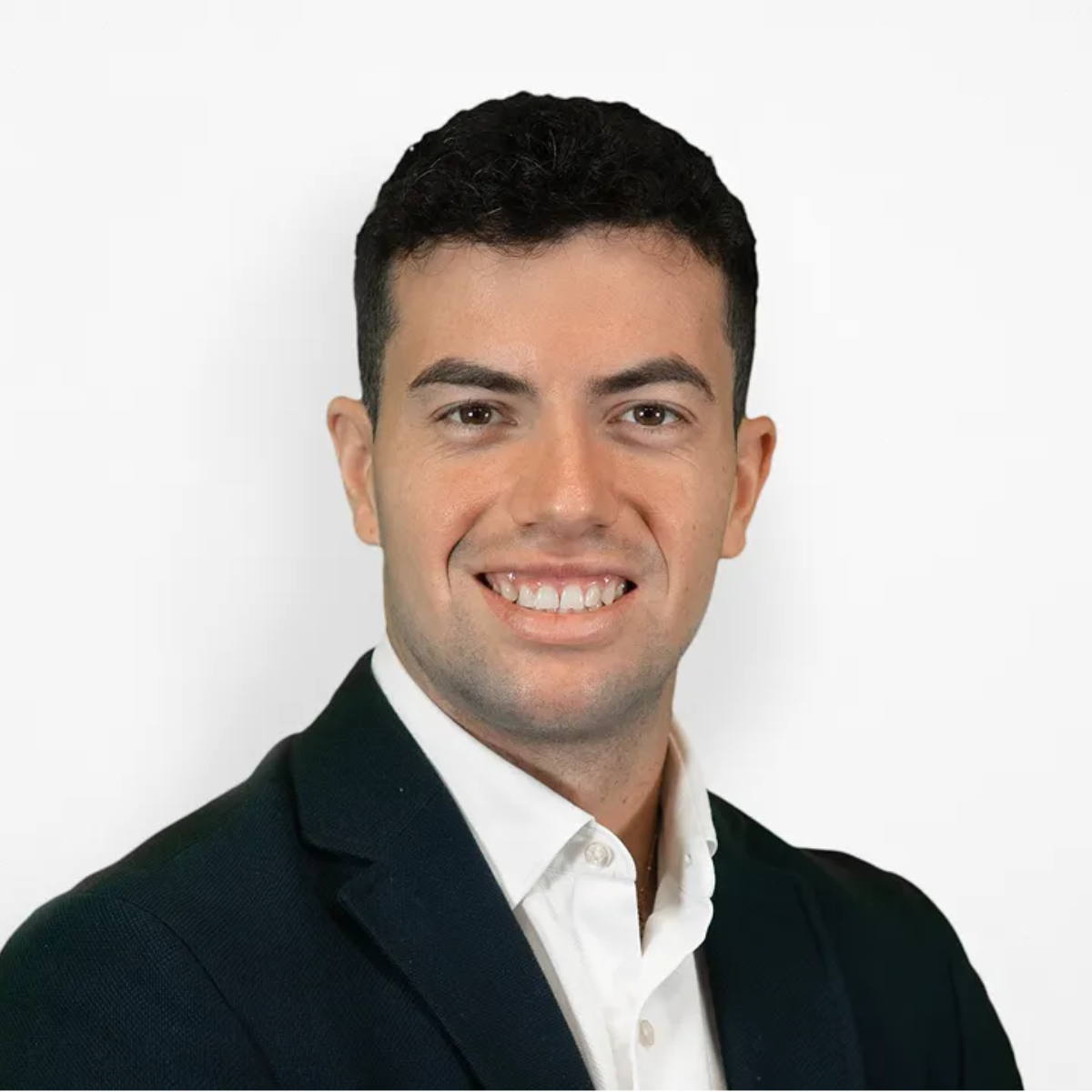

Business Valuation Manager, focused on transforming how companies are valued through the combination of corporate finance expertise and AI-driven innovation.
I work at the intersection of M&A, valuation, and strategy, delivering clear financial insights and supporting the development of an AI platform to make valuations faster, more transparent, and accessible.



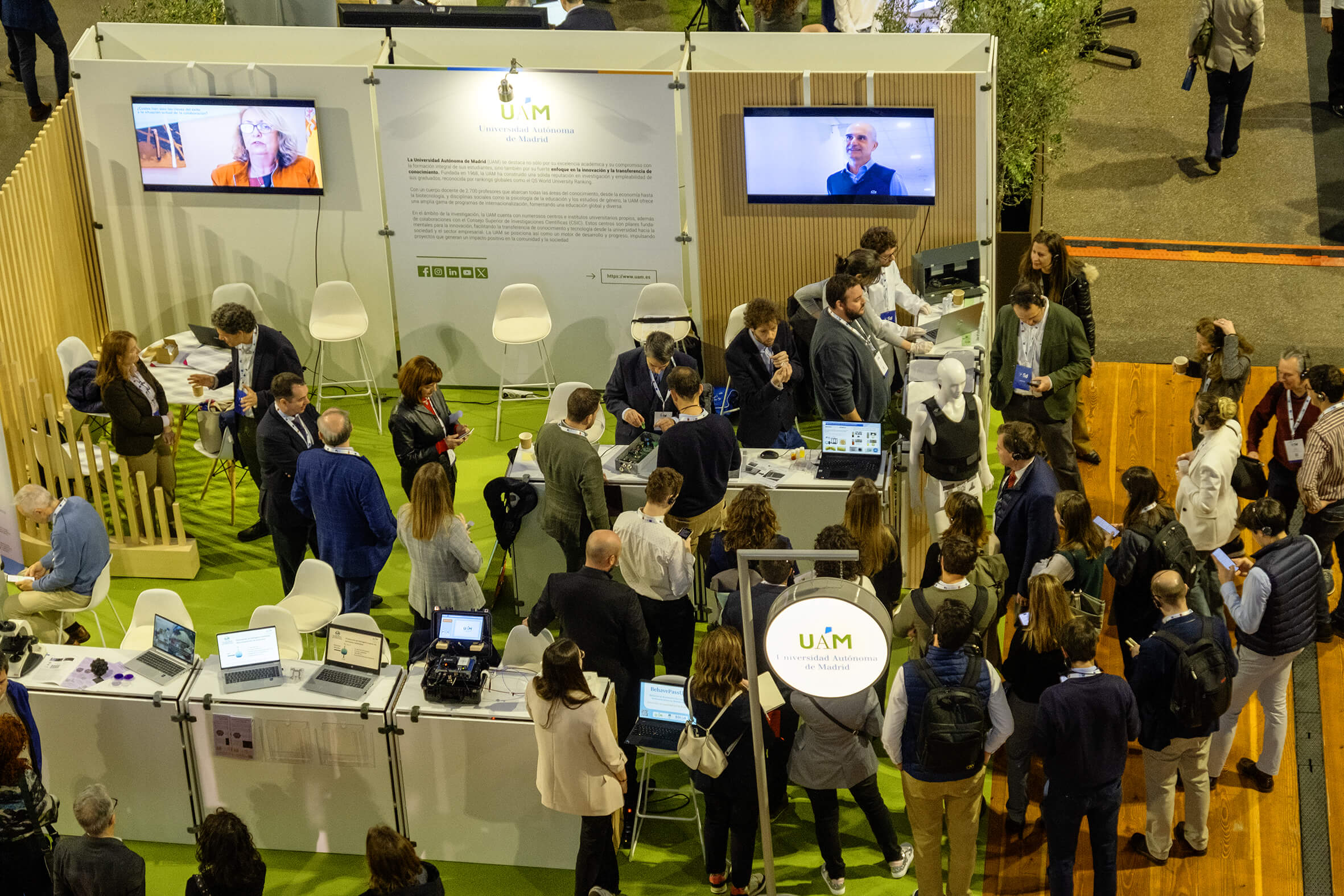
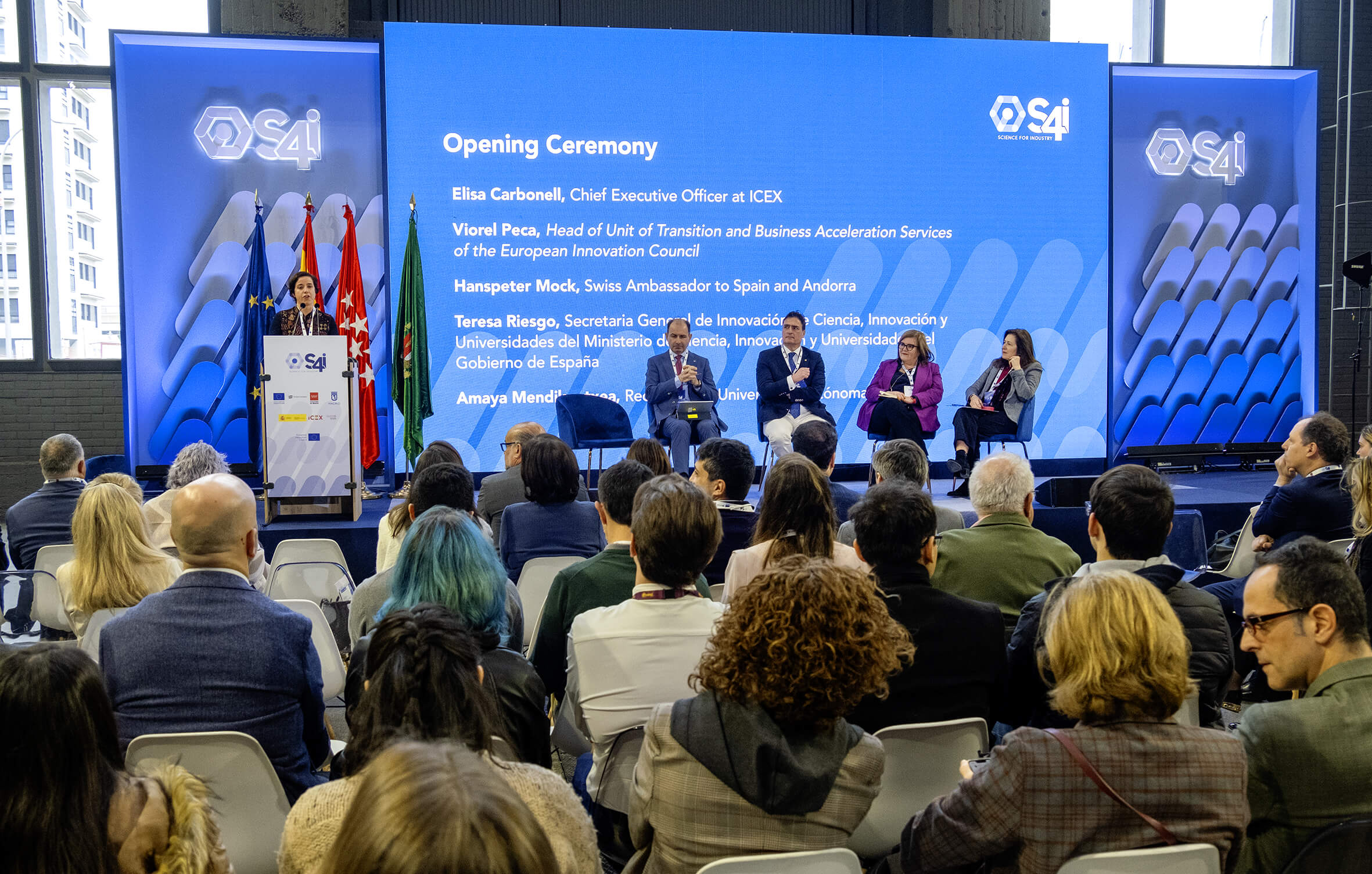
.jpg)





